It seems we can’t find what you’re looking for. Perhaps searching can help.
Sign Up for newsletter!
Subscribe to get the latest eBook!
Hotline


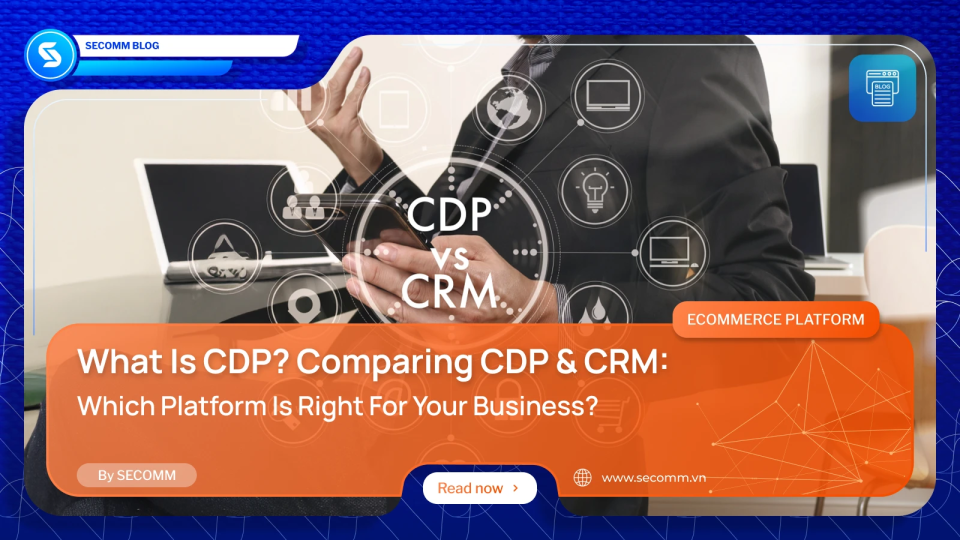
 57
57
 6,587
6,587
 1
1
 32
32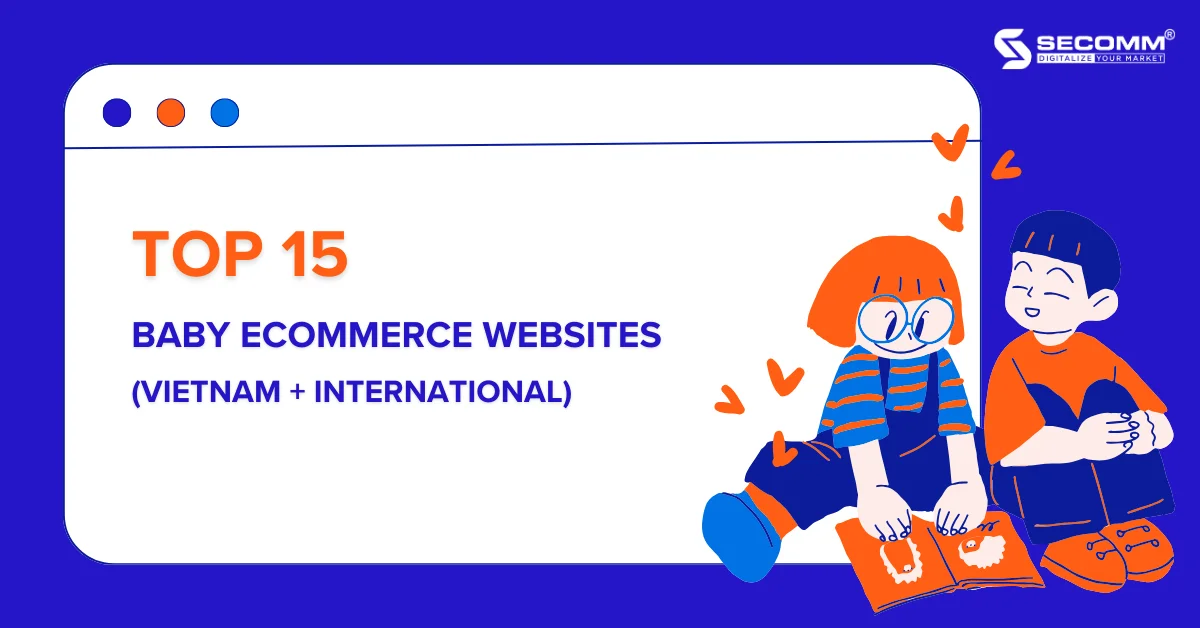
 2
2
 14,659
14,659
 0
0
 2
2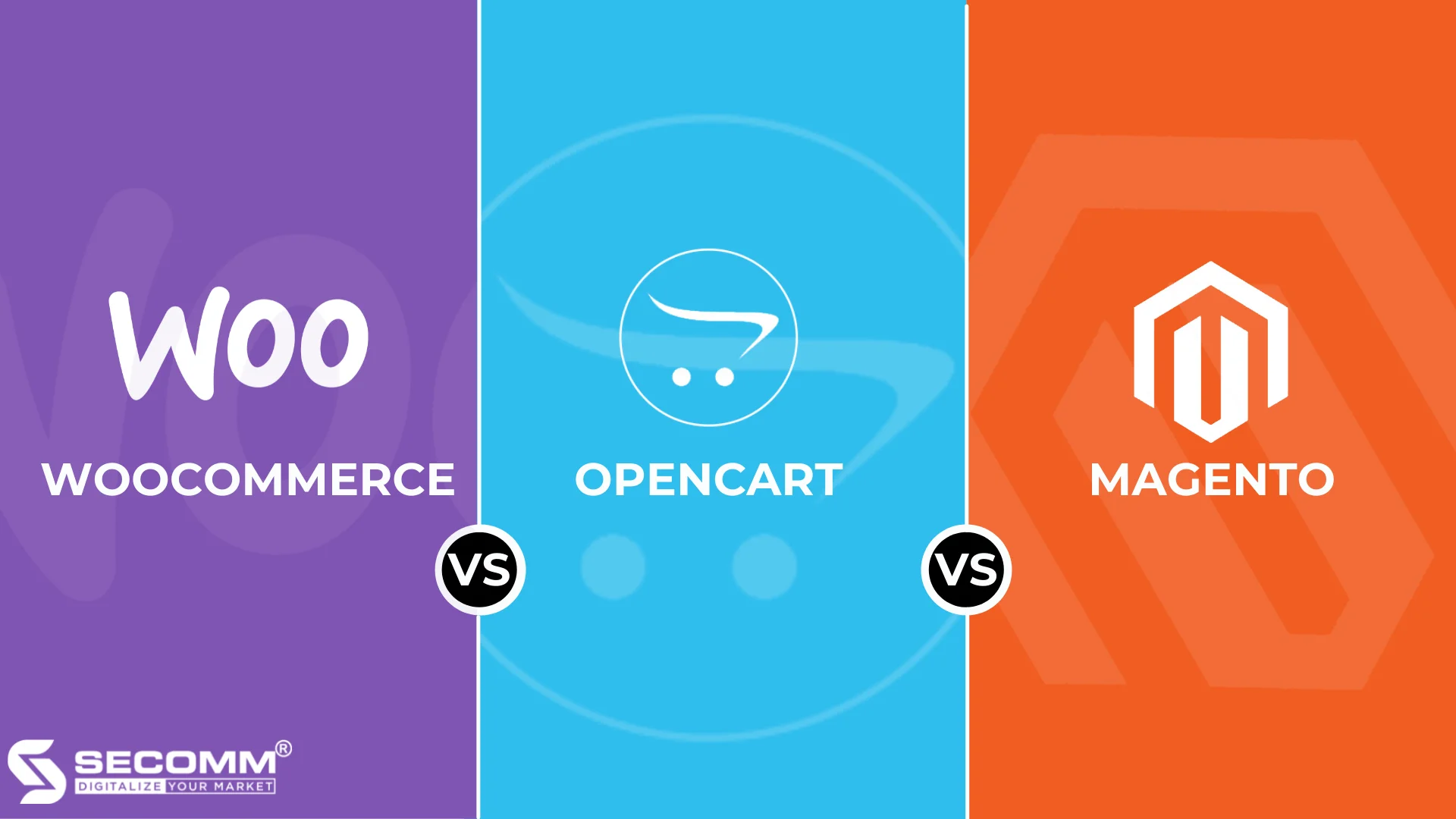
 2
2
 14,512
14,512
 0
0
 1
1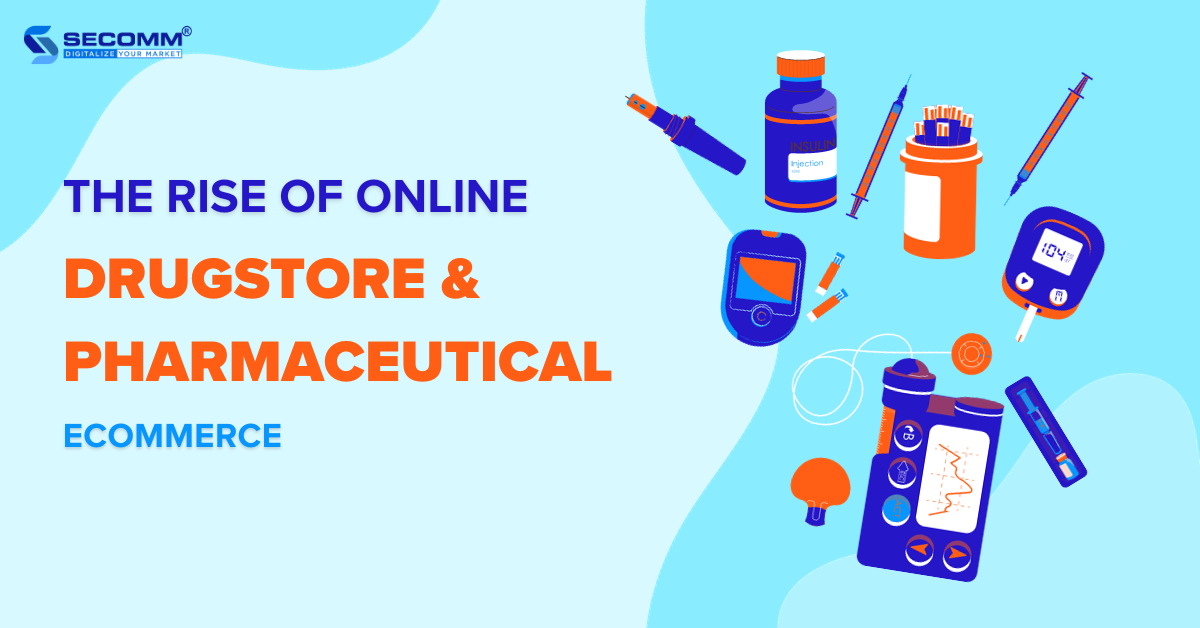
 2
2
 14,184
14,184
 0
0
 1
1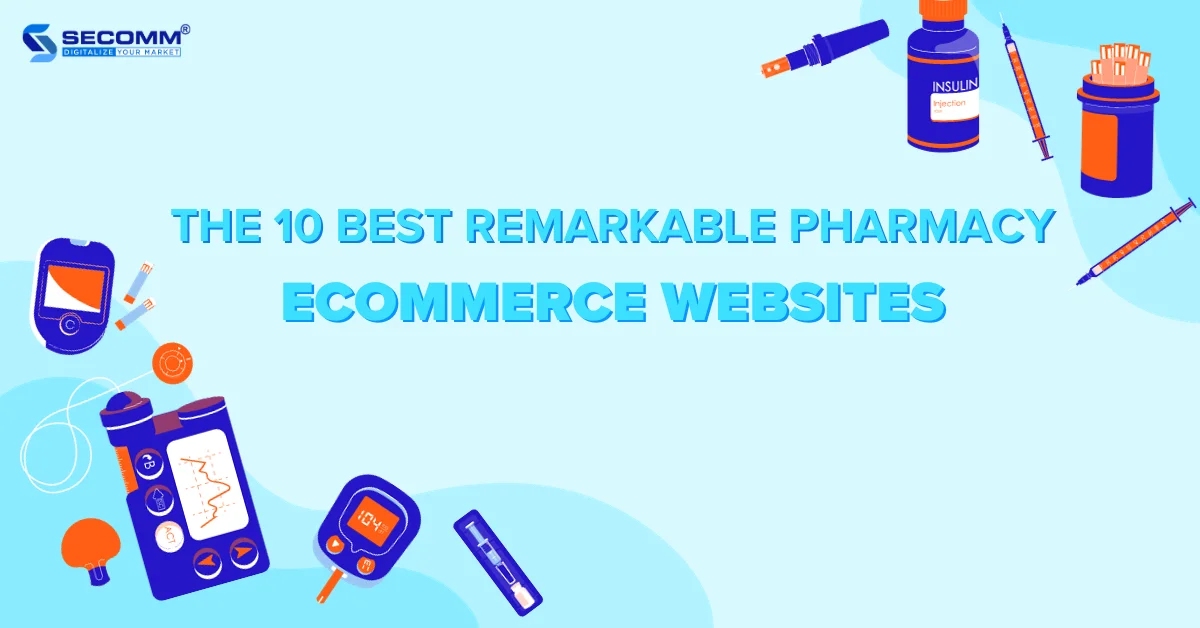
 2
2
 14,026
14,026
 0
0
 1
1



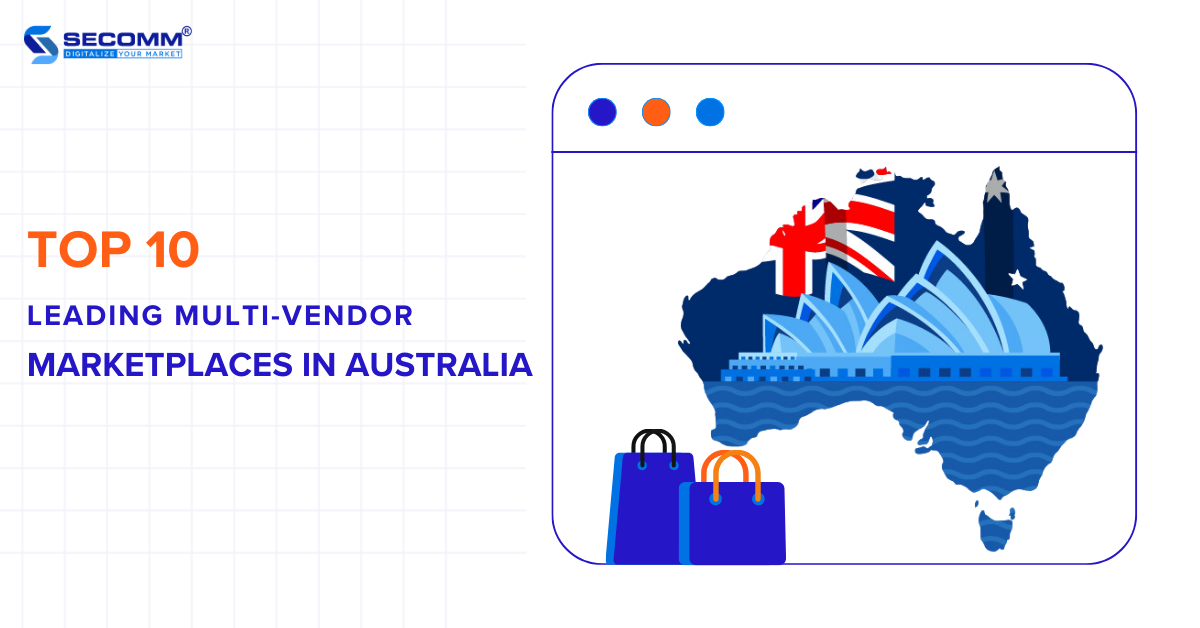
The eCommerce industry in Australia has experienced continual growth in recent years. Consumers are increasingly inclined to prioritize online shopping platforms for their diverse product offerings, convenience, and cost-effectiveness.
Here are 10 widely popular multi-vendor marketplaces that serve as favored shopping destinations for Australian consumers.
Learn more: Building your first multi-vendor marketplace with Marketplacer
In late 2017, Amazon officially launched its operations in Australia, marking the establishment of Amazon Australia. Much like in many other countries, Amazon Australia provides a diverse array of products, spanning fashion, electronics, home goods, books, toys, and electronic appliances sourced from various sellers.
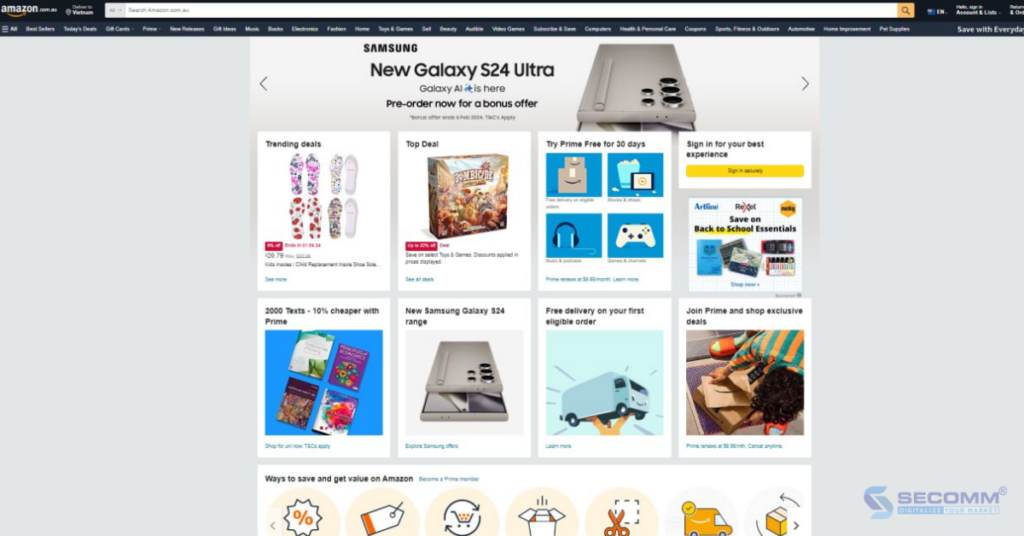
Beyond product sales, this retail behemoth also offers services such as Amazon Prime and Amazon Fresh, featuring expedited delivery policies and exclusive perks for members. Over the years, Amazon has solidified its position in the Australian eCommerce market, delivering a plethora of choices and a comprehensive online shopping experience for customers in the country.
Unlike Amazon, the retail giant eBay has been present in the Australian market since the early years of eBay’s global expansion. eBay has created an online marketplace that allows both individual sellers and businesses to sell their products. On this eCommerce platform, customers can find everything from fashion, electronics, and home goods to toys, decorations, and much more.
Currently, eBay is also a dominant player in the eCommerce market in the Australia and New Zealand region, alongside Amazon. This is due to offering customers an optimal shopping experience with various promotions and attractive deals throughout the year.
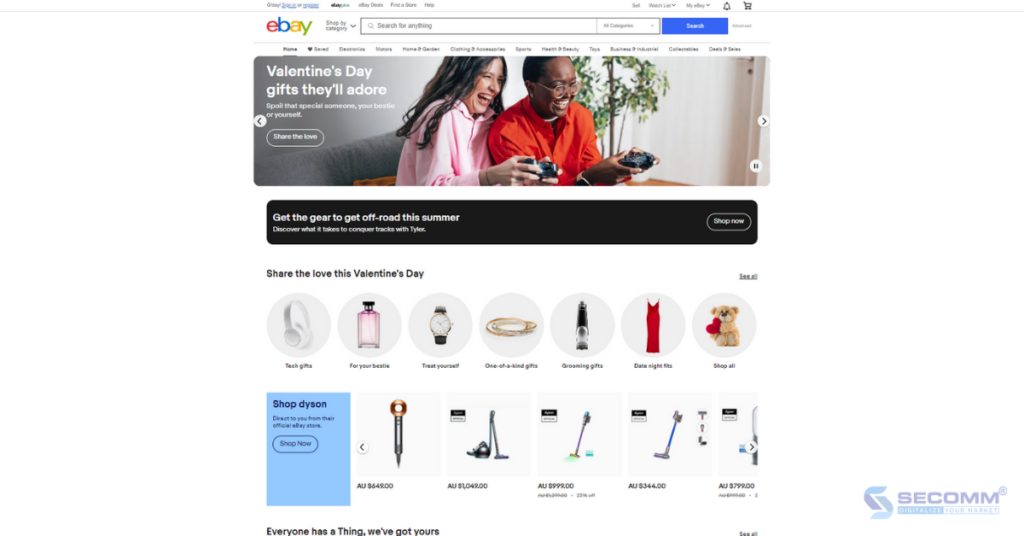
The Kmart multi-vendor marketplace started its operations in Australia in 1960 and has since evolved into one of the country’s most popular retail chains. The Kmart company is a part of the Wesfarmers group. The products offered by this Australian online marketplace are diverse, including electronics, household goods, furniture, cosmetics, and fashion.
Kmart is renowned for its cost-effective pricing strategy, making its products and services accessible and convenient for a diverse customer base. Alongside its website, Kmart provides a well-designed mobile app with features that facilitate convenient shopping for customers wherever and whenever they choose.
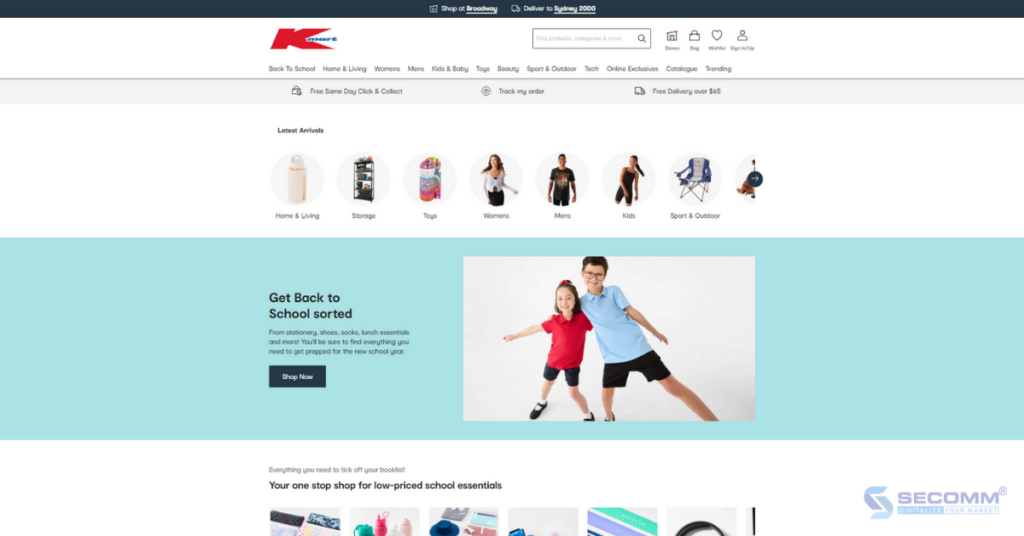
Myer has a long history, established in 1900 by Sidney Myer in Melbourne, Australia. Since then, Myer has grown into one of the major names in the retail industry in Australia. The Myer multi-vendor marketplace is built with modern technologies that make it easy to expand according to business needs. Additionally, advanced features can be developed and customized effectively to provide an exciting and optimal shopping experience for customers.
In addition to an extensive product portfolio, Myer has introduced a loyalty program called Myer One, allowing customers to collect points through shopping and redeem them for equivalent value rewards. This not only helps retain existing customers but also attracts more potential customers, making Myer one of the leading online marketplaces in the land Down Under.
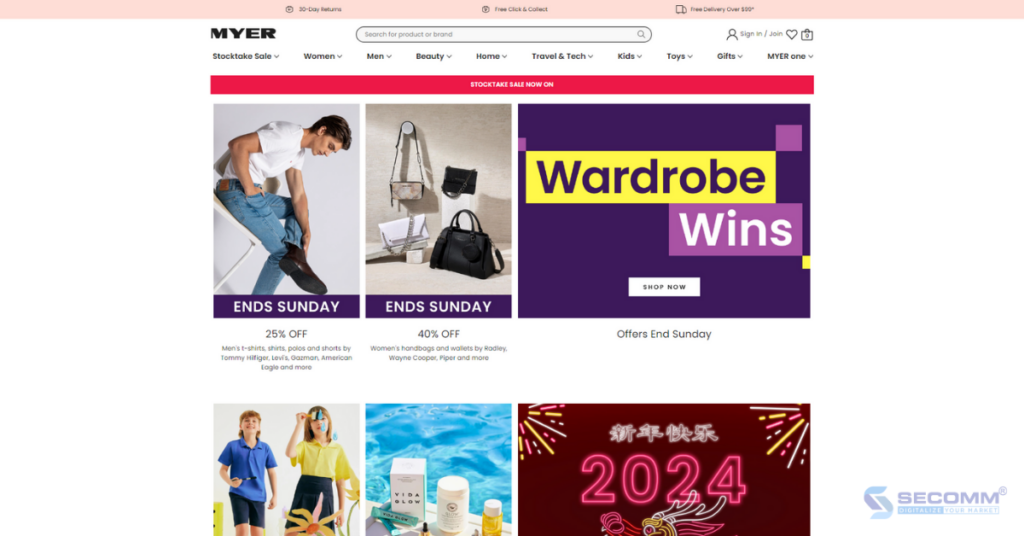
Big W is a part of the prominent retail group Wesfarmers, established in 1964. Over the years, Big W has evolved into one of Australia’s major and well-loved retail chains. In addition to showcasing products from renowned brands, Big W also offers a diverse range of in-house branded items, elevating its competitive edge and delivering significant value to customers.
Beyond its traditional brick-and-mortar stores scattered across Australia, Big W’s online marketplace features a user-friendly website and a mobile app for seamless online shopping at any time and from any location. Big W consistently rolls out enticing promotions and appealing deals, leveraging email marketing to engage with customers, ultimately driving up conversion rates and overall sales.
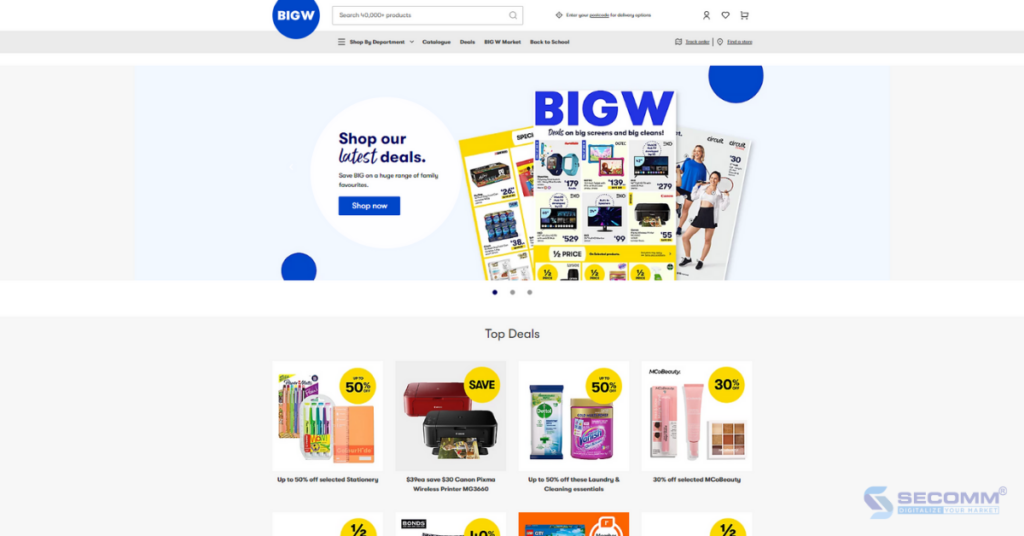
Target is known as the retail giant in the United States, specializing in providing products across various sectors. In the Australian market, Target is also popular and serves as a shopping destination for items such as fashion, furniture, gifts, and more.
Through monthly promotional programs and offers, Target has successfully attracted numerous new customers while maintaining relationships with its existing customer base.
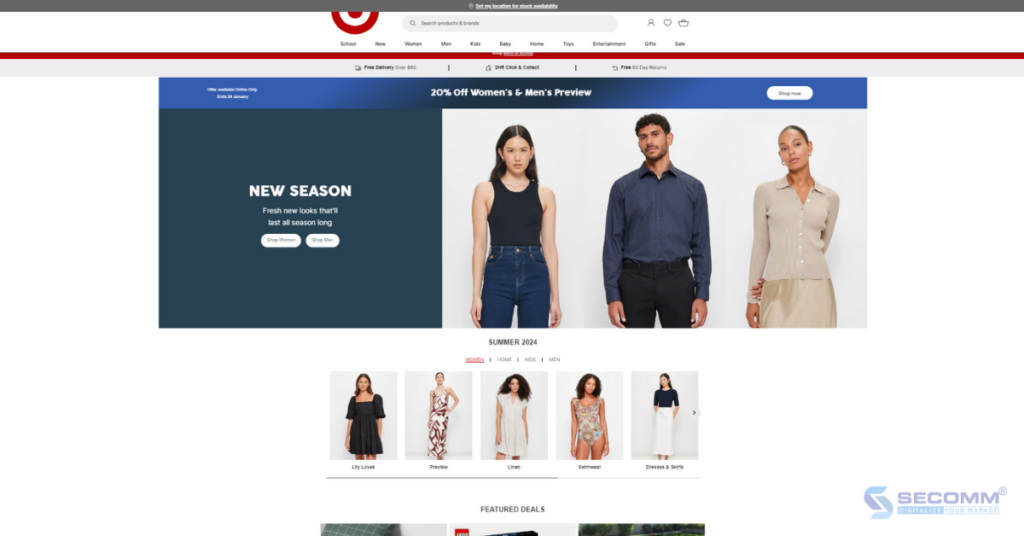
Catch, formerly known as Catch of the Day, is an Australian multi-vendor marketplace well-known for providing substantial deals and discounts across a diverse range of product categories. The online marketplace has introduced a loyalty program named Catch Club, offering members a points-based shopping system for exclusive rewards and special items.
In addition, Catch prioritizes customer service, offering various support channels such as chat, hotline, and email to ensure customers can easily access and seek prompt assistance.
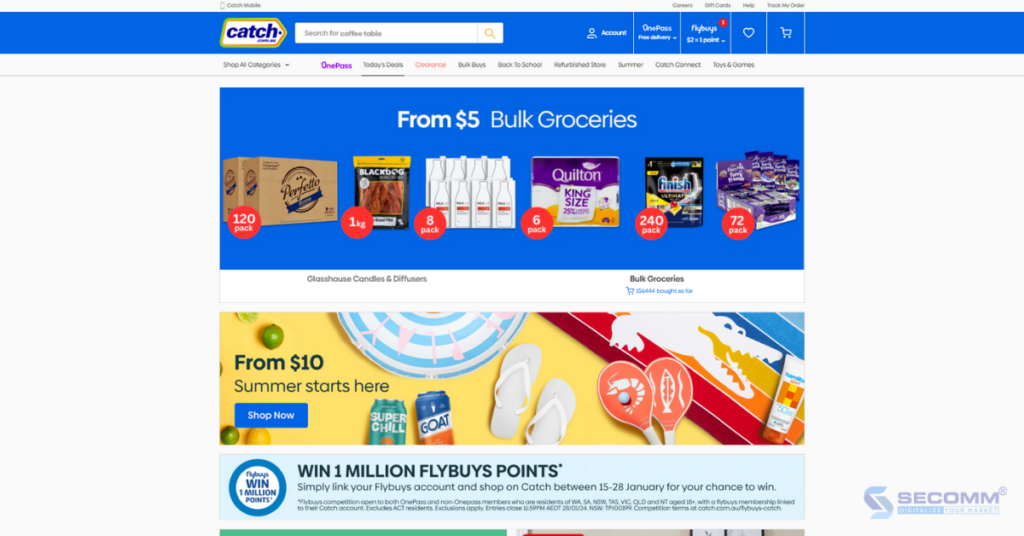
Kogan, headquartered in Australia, is well-known for delivering products and services at competitive prices. Established by Ruslan Kogan in 2006 in Melbourne, Australia, this multi-vendor marketplace initially focused on selling consumer electronics on its website, subsequently diversifying into multiple categories.
Through sensible policies, Kogan has established a fair online marketplace, enabling both businesses and individual sellers to engage in selling, offering buyers an extensive array of options.
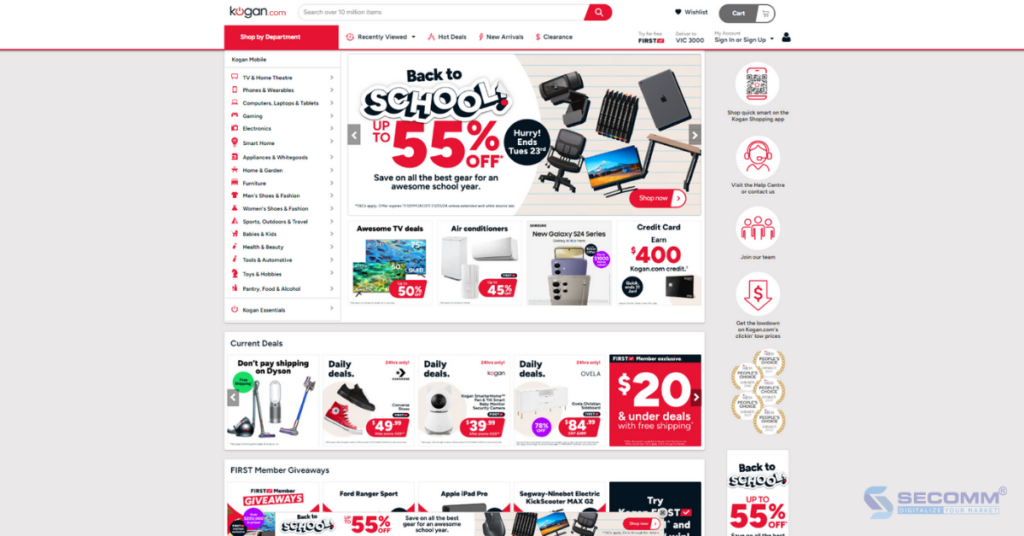
The multi-vendor marketplace MyDeal was established in 2011 in Melbourne, Australia. MyDeal originated as a website specializing in providing discount codes and shopping coupons.
MyDeal offers a diverse range of products, including fashion, household items, electronics, toys, furniture, and many other categories. They continually expand their product offerings to meet consumer needs.
MyDeal regularly creates flash sales, special discounts, and promotional programs to attract customers. With its diversity and attractive discounts, MyDeal has drawn in many consumers in Australia, becoming one of the most popular online marketplaces in the country.
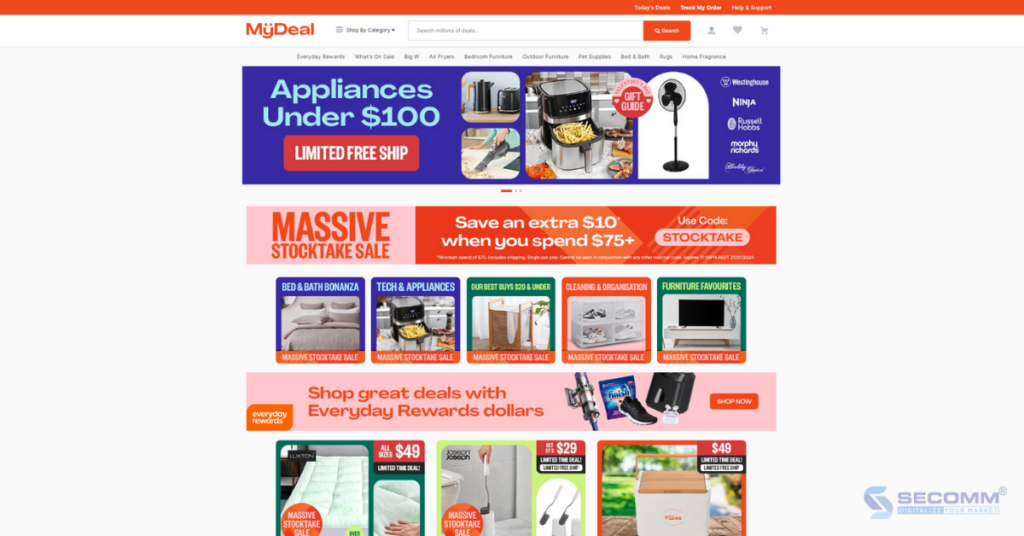
Formerly known as an Australian eCommerce website specializing in consumer electronics, Laybyland has transitioned its business model to become a multi-vendor marketplace. This shift allows numerous individual sellers and businesses to participate in selling their products on the platform, providing buyers with affordable pricing and diverse choices.
Laybyland and SECOMM have been partners for over 10 years, collaborating on various successful eCommerce projects, including the recent Laybyland multi-vendor marketplace. The project primarily utilizes two platforms, Marketplacer and Magento 2, to enhance operational efficiency and optimize the customer user experience.
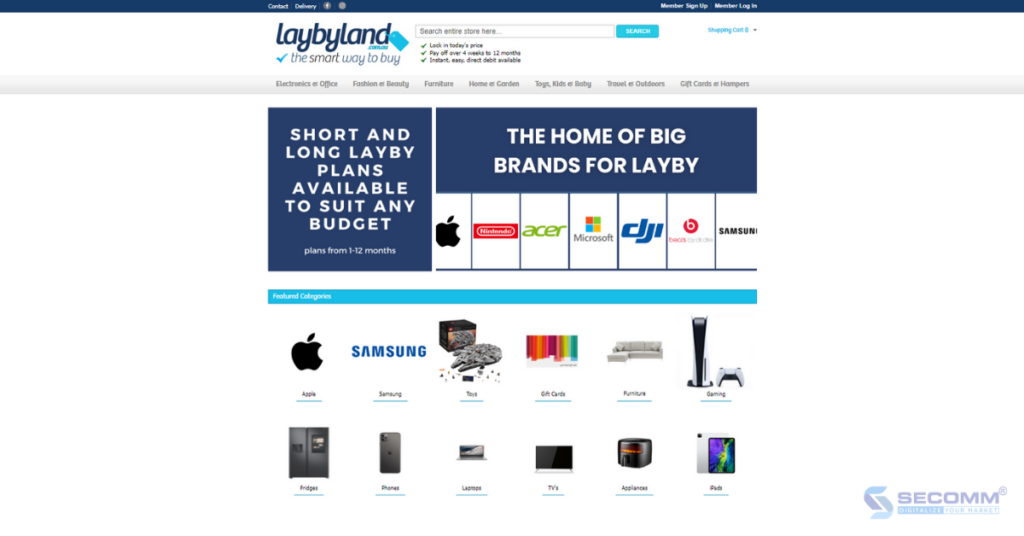
Learn more: The project of Laybyland
Above are the 10 most popular multi-vendor marketplaces in Australia, serving as the ideal online shopping destinations for local consumers.
The eCommerce industry in Australia has witnessed significant growth, with not just the mentioned 10 brands but also numerous other Australian businesses successfully implementing efficient platforms, attracting a wide customer base, and experiencing continuous growth.
If your business is still contemplating whether to establish a multi-vendor marketplace in Australia and how to go about it, feel free to contact or call our hotline at (+84)28 7108 9908 right now!
 2
2
 5,101
5,101
 0
0
 1
1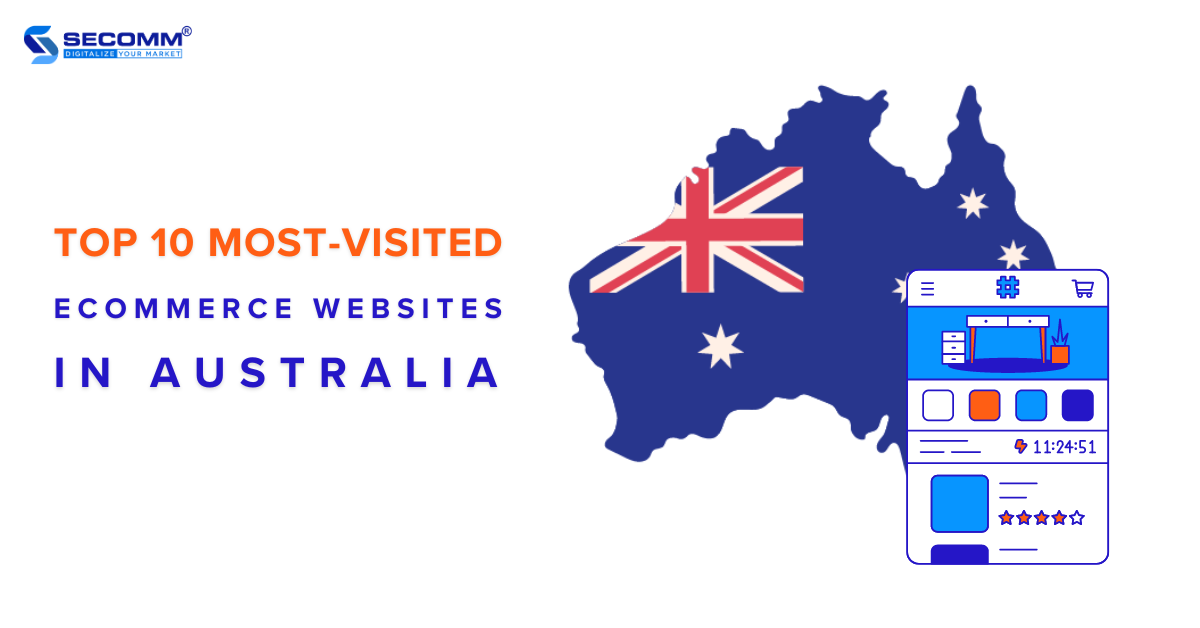
In Australia, shopping on eCommerce websites has become an essential trend. Over time, there has been a growing demand for an enhanced online shopping experience among Australian customers. This requires businesses to seek solutions to optimize their websites to provide a unique and efficient customer experience.
Here are 10 leading Australian brands dedicated meticulous efforts to refining the eCommerce experience, thereby gaining customer satisfaction and trust.
JB Hi-Fi is a retail chain headquartered in Australia, specializing in electronics, household goods, and entertainment products. It was founded in 1974 in Melbourne by John Barbuto (JB) and his wife, Judy Barbuto (the JB Hi-Fi name is a combination of the initials of John’s name and Judy’s name).
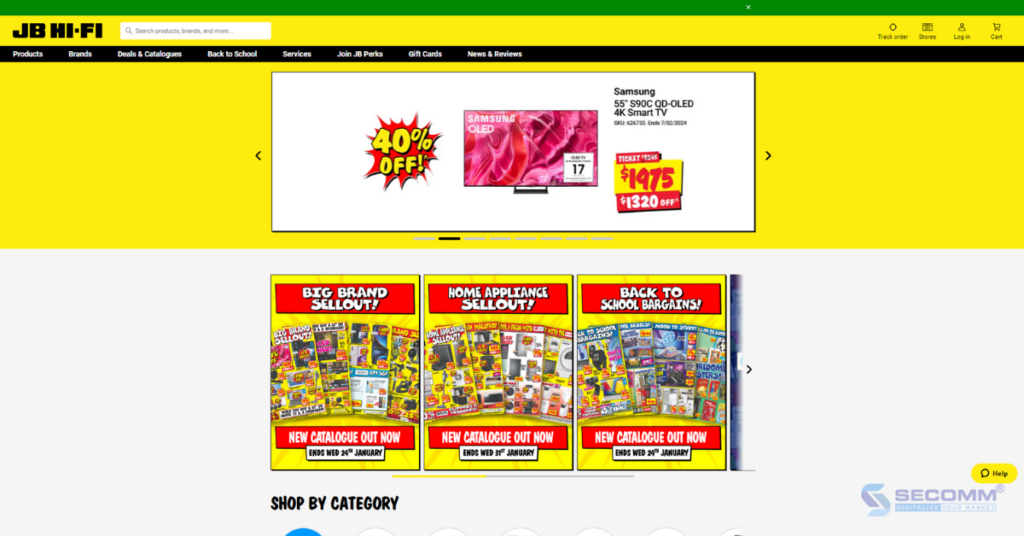
Alongside its brick-and-mortar stores in Australia and New Zealand, the brand also maintains an eCommerce website and a mobile app. These two primary channels enable customers to shop online and stay updated on various offers and promotions.
Beyond offering a diverse range of high-quality consumer electronics, JB Hi-Fi places a strong emphasis on providing customer support services both online and offline, aiming to deliver the optimal customer shopping experience.
Coles is a leading supermarket and retail chain in Australia. Established in 1914, the brand has since experienced impressive expansion and development, emerging as one of the major names in the Australian retail industry.
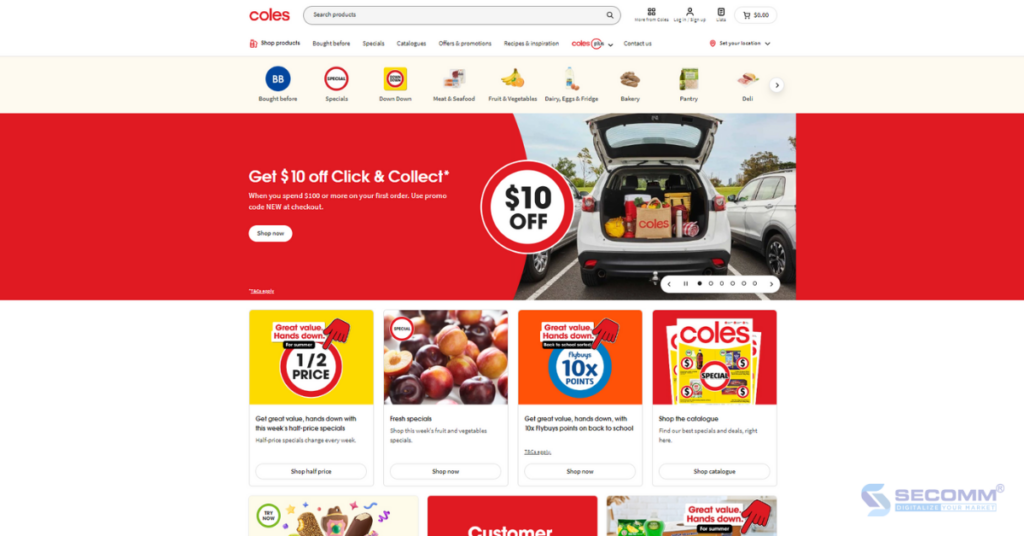
Coles offers online shopping services through its user-friendly eCommerce website and mobile app. The Australian brand also ensures competitive pricing and consistently introduces promotional initiatives, providing customers with a diverse array of options.
The ICONIC is an Australian eCommerce website specializing in fashion and footwear. Established in 2011, the brand swiftly captured attention, evolving into a premier online shopping destination for fashion enthusiasts in both Australia and New Zealand.
At The ICONIC, customers can easily discover their preferred products from a diverse selection of globally renowned brands, including Levi’s, Adidas, Lacoste, Polo Ralph Lauren, and more.
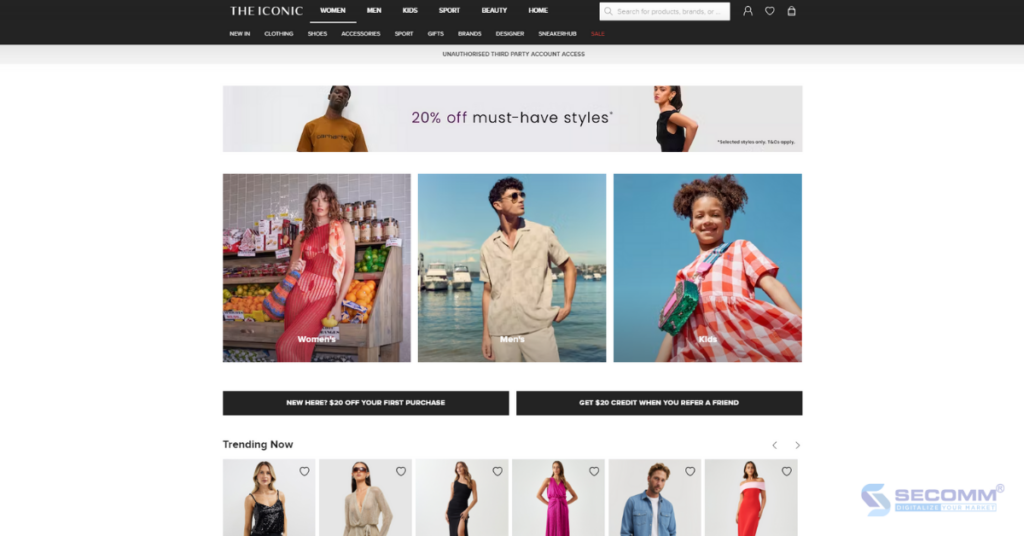
The ICONIC’s website is optimized to help customers browse products, place orders, and track their shipments effortlessly. Beyond providing a unique online shopping experience, The ICONIC regularly updates fashion trends and offers informative content for its customers.
Cotton On was established in 1991 by Nigel Austin in Geelong, Australia. The brand offers a wide range of fashion products, including clothing for men, women, and children, footwear, accessories, underwear, and even home goods and interior decorations in some stores.

Cotton On has an extensive network of stores worldwide, with a presence not only in Australia but also in many other countries such as the United States, Canada, the United Kingdom, and various Asian countries. Therefore, an eCommerce website system has been built and developed with Salesforce Commerce Cloud (SFCC) to cater to the specific needs of each customer segment in different markets.
Sephora is a leading global retail chain specializing in cosmetics and beauty products. The brand is headquartered in Paris, France, and has expanded rapidly, establishing its presence in numerous countries across Europe, North America, Asia, and the Middle East.
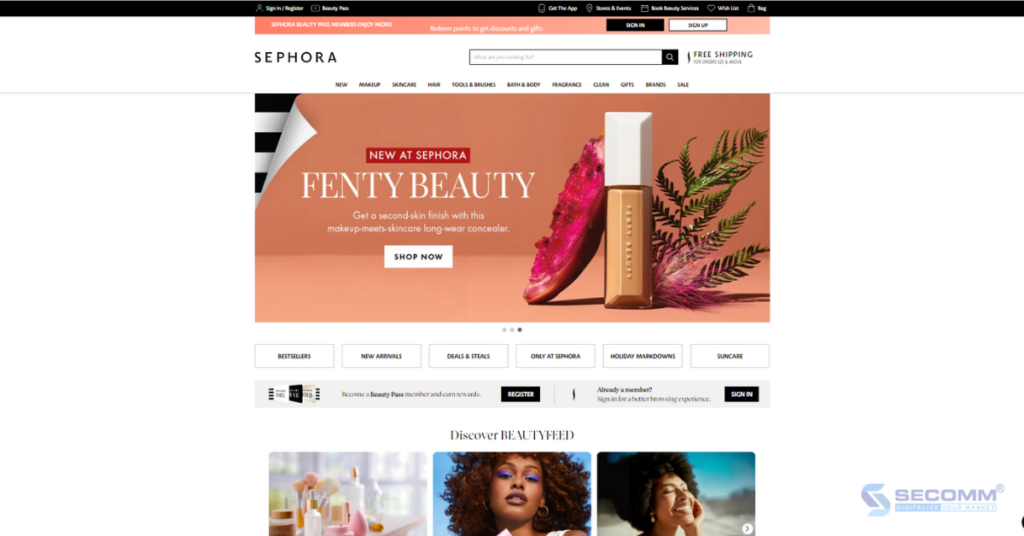
In Australia, Sephora is recognized as a go-to destination for purchasing cosmetics, both online and in-store. Sephora’s eCommerce website and mobile app boast various specialized features designed to elevate the customer experience. Moreover, the successful implementation of a loyalty program by Sephora across multiple markets serves as a valuable lesson for many other eCommerce enterprises.
Founded in Australia in 2006, Forever New is an international fashion brand that specializes in designing and manufacturing women’s fashion collections. The brand is renowned for offering customers products with a sophisticated and feminine style.
Since its inception, Forever New has experienced rapid growth and expanded its business not only in Australia but also in various other countries, including New Zealand, China, India, South Africa, and numerous European nations.
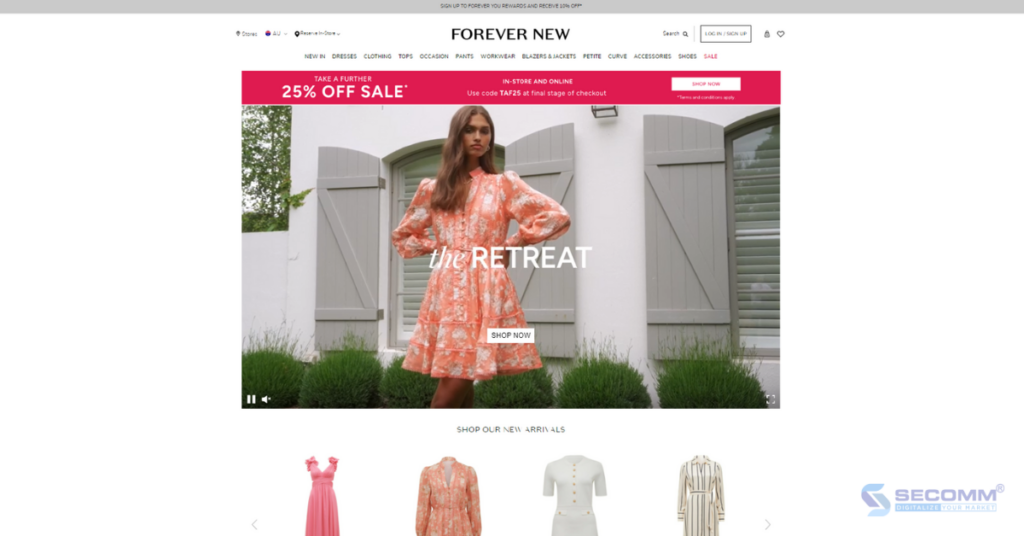
To meet the challenges of expansion and customization, Forever New opted for Magento Open Source to build its eCommerce system. Leveraging Magento, the brand has incorporated a range of advanced and specialized features alongside essential functionalities to enhance the online shopping experience for its customers.
Dick Smith is the name of a renowned Australian entrepreneur, Richard “Dick” Smith, who founded this brand in 1968. In its early years, Dick Smith focused on providing electronic products and components.
The brand quickly grew and expanded its product portfolio from electronic appliances, computers, mobile phones, cameras, and tech toys to other technology and entertainment-related products.
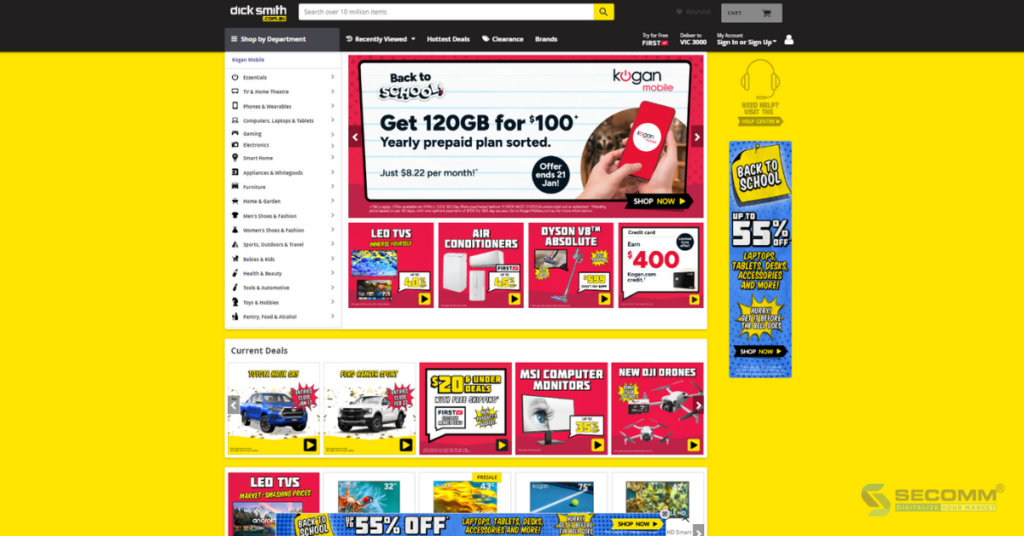
Dick Smith’s eCommerce website is built on the Magento platform. This has helped Dick Smith enhance its presence in both online retail and traditional retail stores, allowing the brand to reach a large audience through an optimized shopping experience.
Bed Bath N’ Table is a well-known brand specializing in furniture, home decor, and household items in Australia.
Its eCommerce website offers a diverse array of products for the living room, bathroom, dining area, and bedroom. Customers can easily discover items such as blankets, pillows, bedding sets, decorations, lamps, cookware, tableware, and numerous other products.
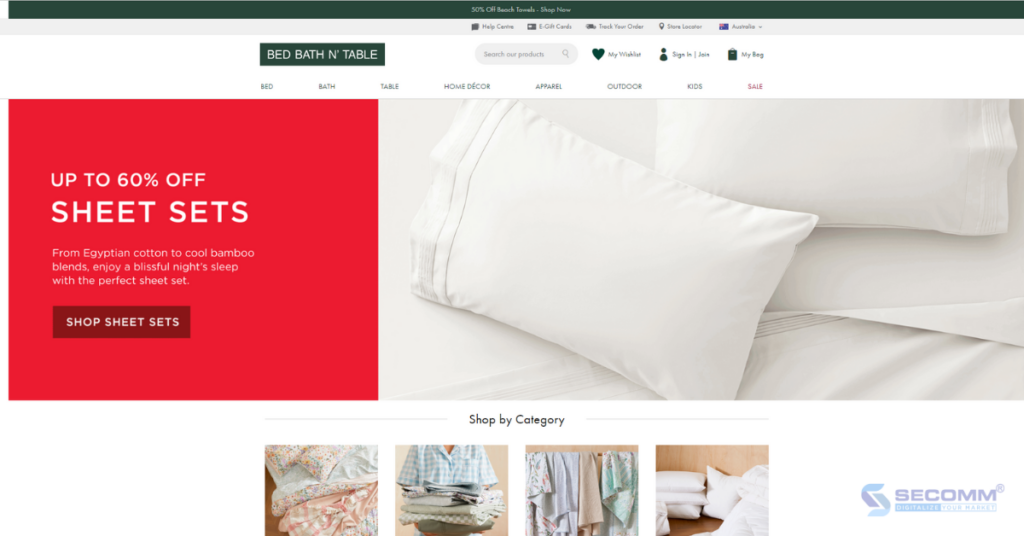
In addition, Bed Bath N’ Table provides various payment methods and implements a loyalty program to enhance the shopping experience for customers, ultimately boosting conversion rates and sales.
Over the years, through a commitment to professionalism and prioritizing customer experience, Bed Bath N’ Table has solidified its presence throughout the regions of Australia and New Zealand.
Established in 1990, Glue Store is an Australian fashion retail chain specializing in products from popular brands, especially those favored by the youth. Over the years, Glue Store has swiftly expanded to become a go-to fashion shopping destination in the Australia and New Zealand region.
Currently, Glue Store collaborates with a variety of renowned brands, including Adidas, Nike, Tommy Hilfiger, Calvin Klein, Puma, and various streetwear labels.
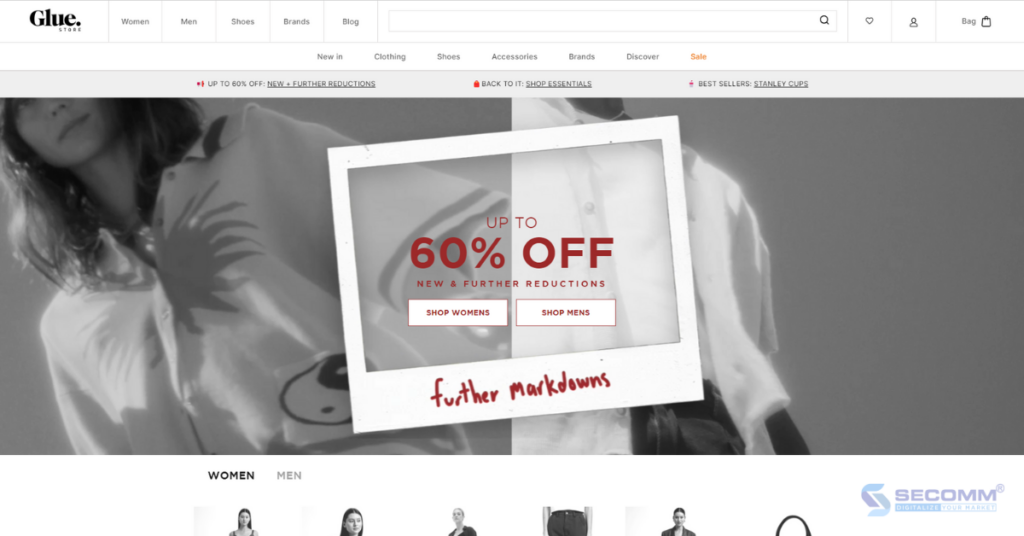
In addition to its traditional store chain, Glue Store offers customers an online shopping experience through an eCommerce website built on the Shopify platform. The website boasts a uniquely designed interface with advanced features, particularly enhancing the customer experience, notably during the checkout process.
Furthermore, Glue Store consistently introduces appealing promotional programs to attract and retain its customer base.
The eCommerce website Chemist Direct has become quite familiar to Australian consumers in recent years. It is a reliable destination for purchasing beauty products, personal care items, prescription and non-prescription medications, as well as medical equipment.
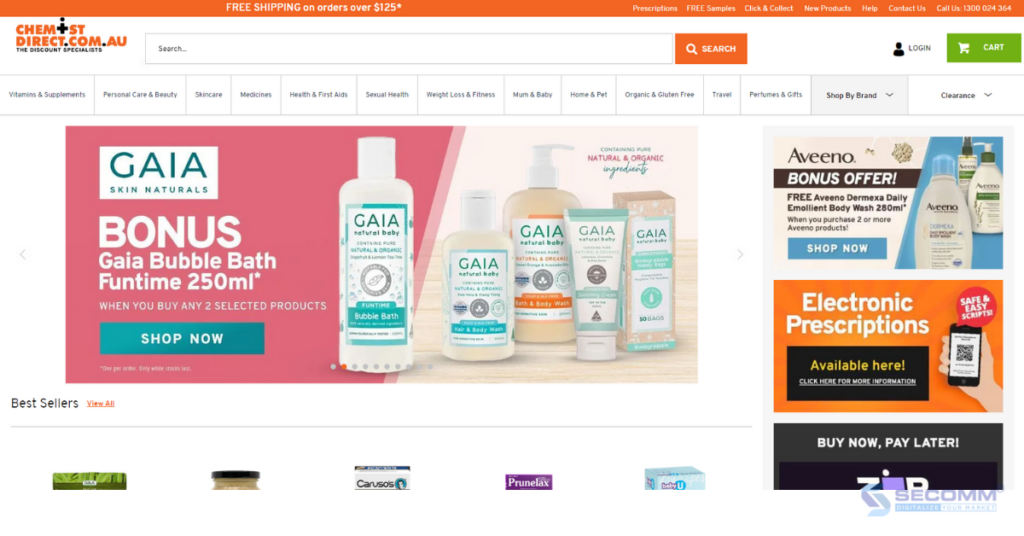
With a diverse and extensive product catalog, Chemist Direct has developed its eCommerce system on Magento to leverage the flexibility and easy scalability of this platform. Through Magento, the Chemist Direct team can easily develop and customize numerous advanced features, making searching, browsing, ordering, and payment more straightforward.
When it comes to payments, the brand implements Buy Now Pay Later with Afterpay and Zip, alongside traditional payment methods, allowing customers additional choices and flexibility when making purchases.
Here are the leading 10 eCommerce websites in Australia. Utilizing advanced platforms like Magento, Shopify, and SFCC, these brands have delivered an optimal online shopping experience, successfully attracting both local and international consumers.
Throughout years of growth, SECOMM, in collaboration with numerous Australian clients, has proudly contributed to the creation of exceptional eCommerce websites. Noteworthy projects include partnerships with Laybyland, Jasnor, Rod Shop, and others.
Contact SECOMM or call directly at the hotline (+84)28 7108 9908 to get started!
 2
2
 6,662
6,662
 0
0
 1
1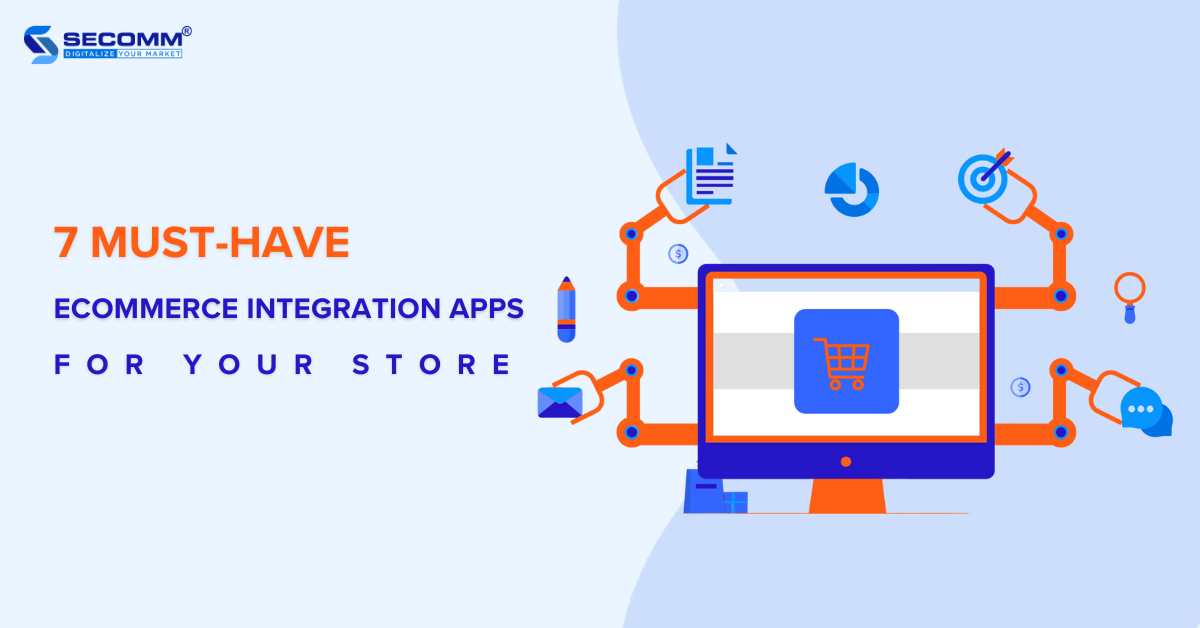
Several crucial factors impact the efficiency of running an online store. Among these, effectively implementing eCommerce integrations plays a key role in helping you streamline your operations and reduce risks.
Below are 7 essential integrations that you should include in your eCommerce website.
PIM (Product Information Management) is one of the common eCommerce integrations. The PIM system is used to collect, organize, and manage product information, including details such as product descriptions, images, prices, product attributes, customer reviews, and ratings.
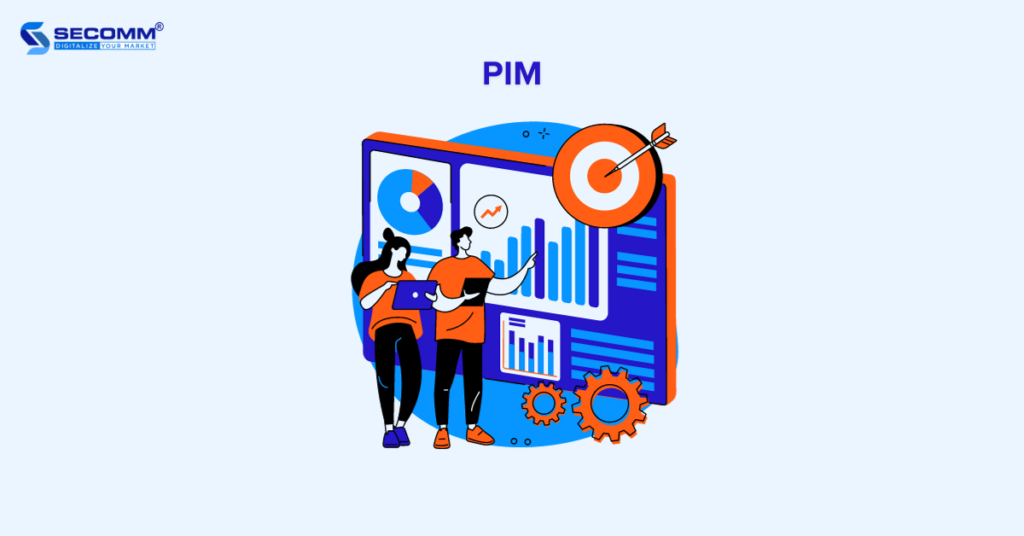
This tool helps you manage product information across diverse platforms, making it easier for customers to choose their desired products. Plus, PIM helps you save time compared to manual data entry, thereby reducing personnel costs.
Take Akeneo PIM, for instance; it is an open-source platform tailored for managing product information effectively. Akeneo is also flexible enough to seamlessly integrate with various systems such as ERP, CRM, POS, and popular eCommerce platforms like Magento, Shopify, and WooCommerce.
Currently, Akeneo offers three main PIM plans, including:
The Order Management System (OMS) helps you process orders in various channels.
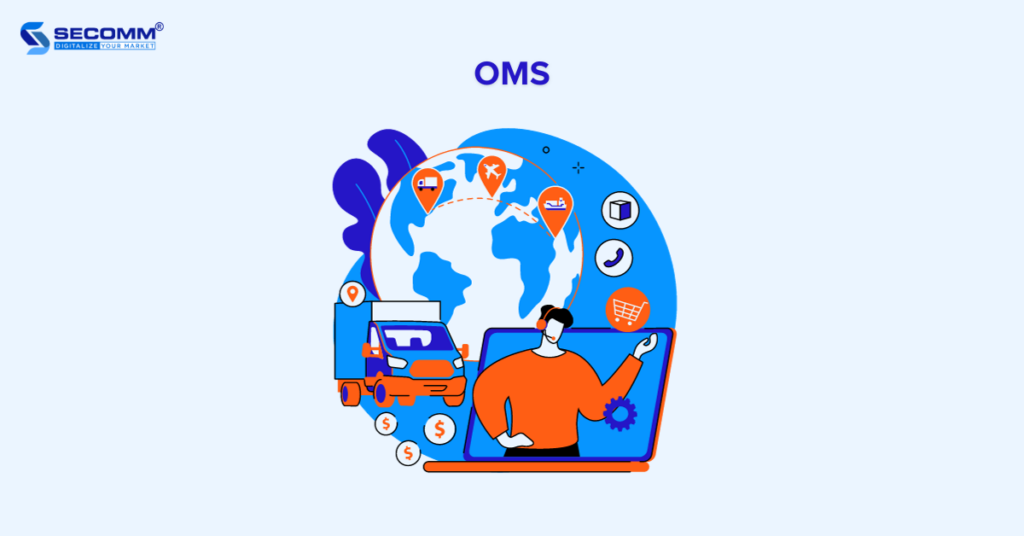
This eCommerce integration not only helps businesses efficiently manage orders, optimizing the customer experience, but also collects and analyzes data at peak and off-peak sales times, as well as for specific orders, top-selling items, and consumer behavior.
So, you’ll easily adjust their business strategies and manage inventory effectively.
For example, Fabric OMS is a Distributed Order Management (DOM) system designed to help you streamline the order processing process, including online purchases at the store (BOPIS), delivery to the store, and in-store order fulfillment.
Fabric’s order management solution helps you integrate and manage the entire order process on a single interface. You can optimize your order processing, minimize inventory discrepancies, and free up resources for other important tasks.
The Warehouse Management System (WMS) will help you manage the flow of goods, inventory, and shipping to facilitate sales and order fulfillment.
By automating order processing and optimizing the layout of goods in the warehouse, WMS accelerates order processing, reduces order preparation time, and enhances the ability to quickly respond to customer demands.
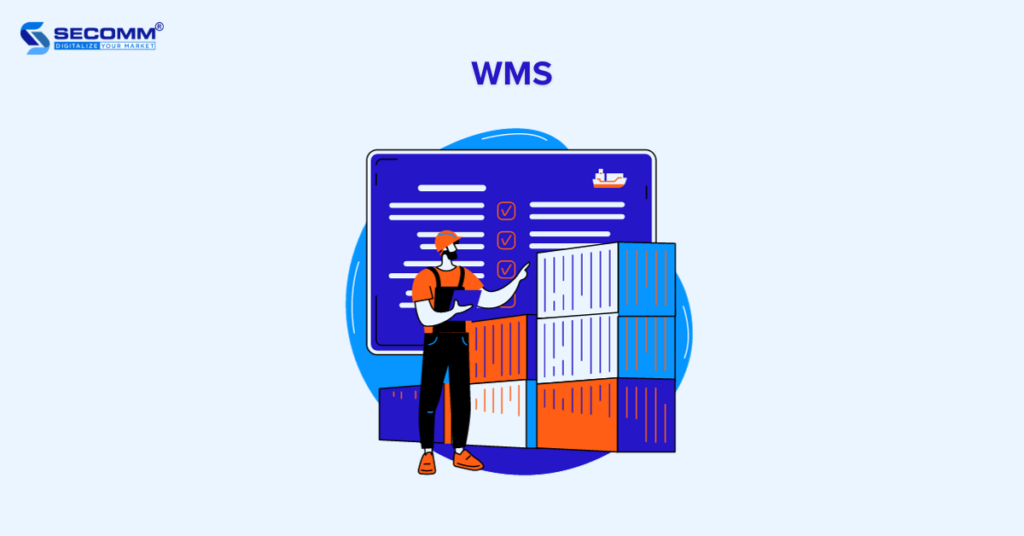
For example, Oracle Warehouse Management Cloud (WMS) is one of the eCommerce integrations that offers a cloud-based warehouse management system. It is well-suited if you’re looking for effective warehouse inventory management.
It automates warehouse processes such as receiving, storage, order processing, and shipping, particularly well-suited for a wide range of business scales. It also seamlessly integrates with ERP, CRM, and other supply chain solutions.
POS (Point of Sale) is a system that includes both hardware and software components, or it can be as straightforward as a point-of-sale device like a computer, tablet, smartphone, or receipt printer.
POS helps you manage and execute sales transactions, calculate payments, generate receipts, manage inventory, handle customer relations, and provide crucial sales-related information.
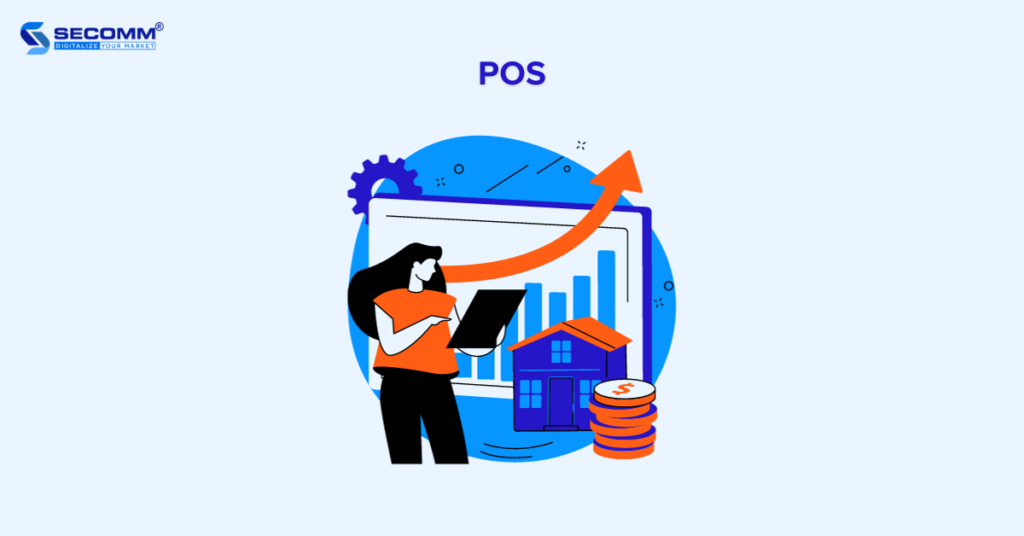
For instance, the Square POS system, developed by Square, has garnered the interest of numerous large businesses globally due to its free features. However, each transaction conducted through the POS incurs a fee of 2.6% and 10 cents for each tap, dip, or swipe.
For the “Buy Now Pay Later” model, the fee is 6% and 30 cents. Additionally, Square provides tailored POS packages for businesses with revenues surpassing $250,000.
Xem thêm:
CRM (Customer Relationship Management) helps you organize and manage customer information, including contact details, purchase history, and interactions. So, you’ll easily tap into customer needs and preferences, optimizing the shopping experience and increasing order conversion rates.
Moreover, CRM allows internal departments to interact and work on a unified and automated system, saving time and costs.
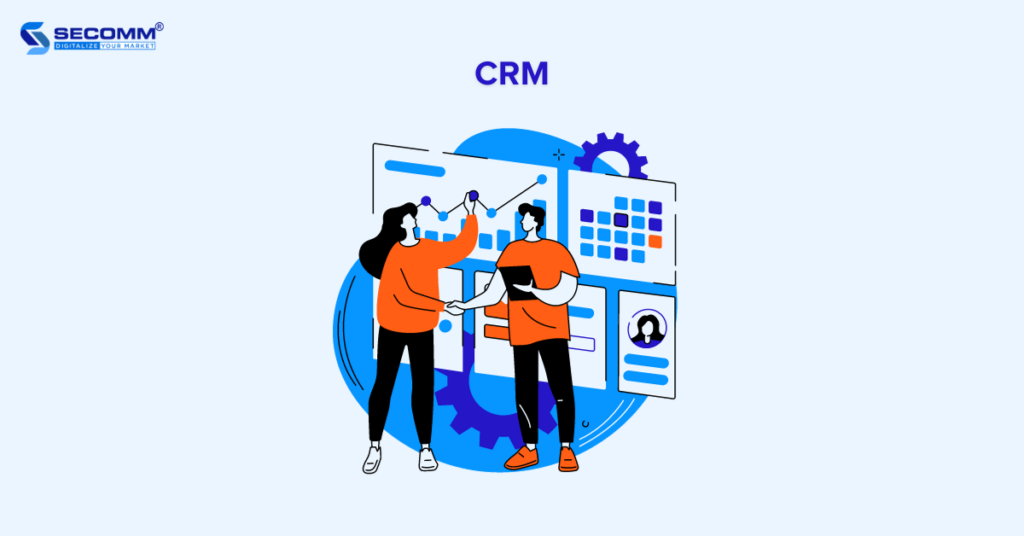
For example, Dynamics 365 Sales is one of the CRMs developed by Microsoft. With its intuitive interface, easy setup, and flexible customization capabilities, you can manage and enhance the efficiency of the sales process.
the system provides a “Real-time Insight” feature to deliver real-time insights from sales calls, such as customer emotions and sentiments. This helps businesses assess and strategize for their sales teams.
Currently, the system offers three plans:
Learn more:
Instead of relying on separate, isolated software systems lacking interdepartmental cohesion, ERP (Enterprise Resource Planning) integrates all software into a unified system.
The ERP eCommerce integration helps you manage all organizational activities, from inventory control and orders to financial planning and customer interactions.
You’ll maximize time efficiency, minimize costs, boost business productivity, and reduce unnecessary workforce.
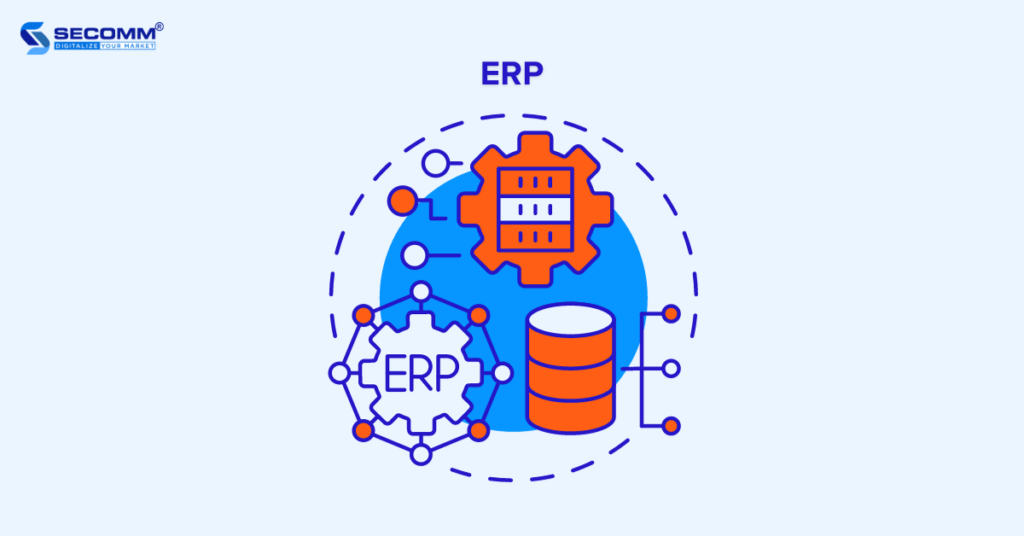
For example, Oracle ERP is one of the top global ERP software known for its outstanding features for operational efficiency.
Currently, Oracle provides three different plans tailored to specific needs:
Learn more: 6 best enterprise ERP software
Business Intelligence (BI) helps you analyze data from various sources such as eCommerce websites, POS systems, CRM, and other data sources. Plus, you’ll gain a deeper understanding of customer behavior, shopping trends, and factors influencing sales performance.
By using BI, you can also predict shopping trends to formulate specific strategies, while simultaneously monitoring financial performance, including forecasting sales figures, profits, and other financial indicators. This helps you allocate resources accurately.
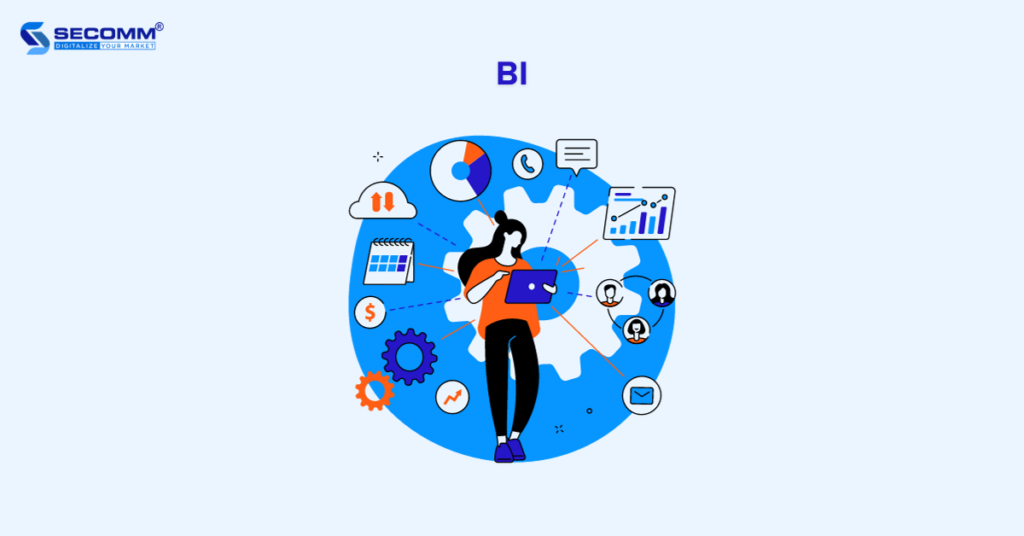
For example, Tableau is a widely used BI tool suitable for various individuals and organizations. With a user-friendly interface that requires minimal technical knowledge, Tableau allows users to easily create reports and visualize data.
The ability to connect and integrate data from various sources, including cloud data, and transform it into visually appealing charts and graphs, makes it easy for users to analyze trends and information
Deploy eCommerce integrations today!
Above are 7 popular eCommerce integrations to build your eCommerce website and enhance your online presence. You’ll choose your best-suited systems depending on the strategy, estimated budget, and business direction.
With profound knowledge of the eCommerce industry and experience in deploying integrations for all sizes of businesses, SECOMM is committed to proposing cost-effective solutions to develop your high-performing eCommerce system.
Contact or call directly on the SECOMM hotline (02871089908) to get started today!
 2
2
 4,601
4,601
 1
1
 1
1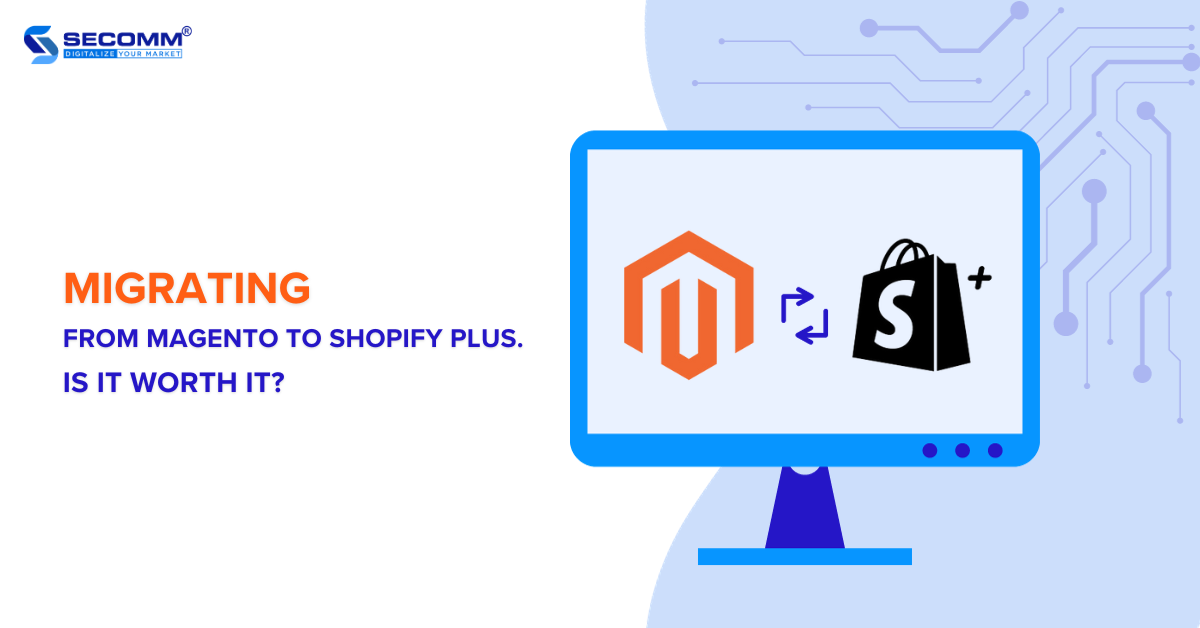
Migrating from Magento to Shopify Plus is a strategic decision that many businesses are considering. While Magento holds a prominent position in the eCommerce market, the ongoing trend of switching to Shopify Plus has raised questions about its reasons, prompting a comparison between the two platforms. Join us in exploring these aspects in this article.
Learn more: Adobe Commerce vs Shopify Plus
Magento is an open-source eCommerce platform with over 140,000 active websites and was acquired by Adobe in 2018. It offers many advanced features, allowing you to tailor your eCommerce websites.
It has two versions: Magento Open Source, a free option to download and install on your servers, and Adobe Commerce (formerly Magento Enterprise), a paid version with premium features such as Adobe’s hosting and security services.
Shopify Plus stands out as Shopify’s advanced SaaS eCommerce platform tailored for large and rapidly growing enterprises. With high scalability, it can handle surges in traffic and sales volumes reaching billions of dollars.
By leveraging Shopify Plus, you can benefit from a robust infrastructure that facilitates easy customization and centralized management of multiple stores, brands, languages, and currencies through a dashboard.
Also, the platform offers a range of superior solutions to enhance eCommerce operations, including Shop Pay, Shopify Flow, LaunchPad, Shopify Scripts, and more.
Many businesses opt to move away from the Magento platform in pursuit of a more optimal solution for their eCommerce websites. However, the following two reasons are widely regarded as the most prevalent.
After launching the Magento 2 (M2) version, the company has declared they’ll no longer support the Magento 1 (M1) version. This means that if you’re using the older version, you won’t receive security updates, bug fixes, and technical assistance.
So, the platform encourages their customers to upgrade to M2 to ensure continued technical support, enhanced security, and access to a variety of new and advanced features.
However, the upgrade process is complex, requiring significant investment in terms of cost and time for source code and interface customization. It may force you to halt your eCommerce operations.
In case you want to keep operating M1 alongside the update process, there’s a potential risk of disrupting system operations, causing significant disruptions to the customer experience, and ultimately affecting sales.
Moreover, there’s also a potential risk of compatibility issues, as some features and modules initially built on M1 may require significant customization to operate effectively on M2.
Faced with these risks, some businesses opt not to upgrade but rather switch to an alternative eCommerce platform. Frequently, these businesses turn to SaaS platforms that offer robust technical support and readily available solutions.
Learn more: M1 vs M2
Some businesses that have upgraded and used M2 for a while have realized that it may not be the best choice. Developing and maintaining a M2 website requires high technical expertise, especially if you want to integrate and customize specific features.
If you don’t have a sufficiently professional technical team or inefficiently collaborate with deployment partners, the customization process is even more complex.
Plus, while the open-source platform offers high scalability, it lacks flexibility. So, if you don’t set up and build your system properly, it may get issues during peak shopping times, leading to crashes and interruptions.
This, in turn, customers to be unable to access the website for purchases, causing significant harm to your brand.
Learn more: The costs of building a Magento eCommerce website
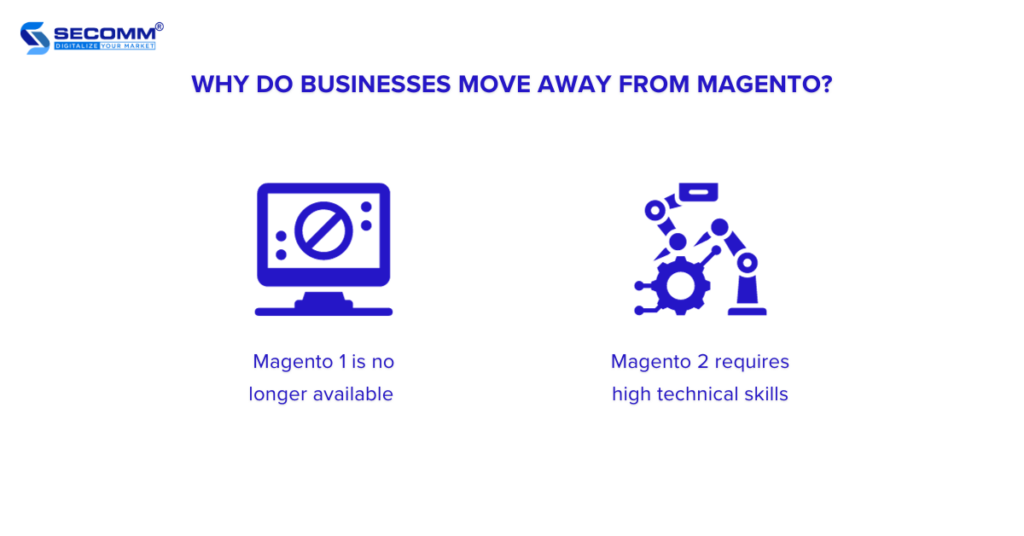
Learn more: 15 reasons why you should migrate to Shopify Plus
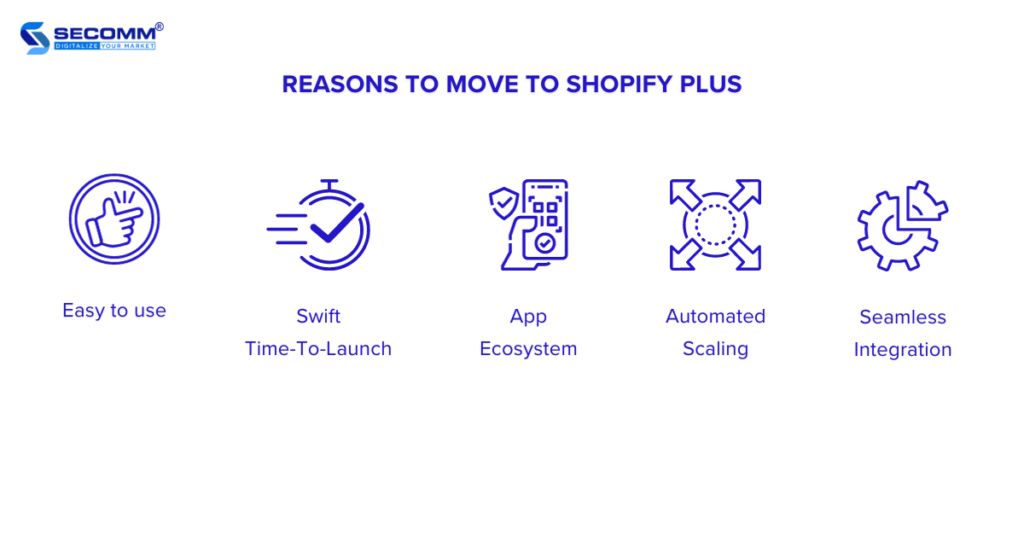
Below are some brands that have previously embraced eCommerce using Magento and switched to Shopify Plus to reduce technical complexities and costs.
Gymshark, a UK-based brand specializing in sportswear and fitness fashion, has emerged as a prominent and favored global sportswear brand since its inception in 2012.
Facing a website crash during the bustling Black Friday shopping season, Gymshark, previously on Magento, made the strategic decision to switch to Shopify Plus.
Despite time and financial investments in repairing and maintaining the system, there was no guarantee of long-term effectiveness.
Upon switching to Shopify Plus, Gymshark capitalized on available solutions such as Shopify POS to elevate both online and offline shopping experiences. The implementation of Shopify Scripts, an exclusive tool for the ‘Plus’ merchants, allowed them to customize and optimize the checkout process.
By using this advanced SaaS platform, Gymshark significantly boosted conversion rates and sales, particularly during major year-end shopping events. This success has firmly established Gymshark as one of the fastest-growing brands globally.

Founded in the United States in 2013, Bombas is a brand specializing in the manufacturing and retail of socks. Renowned for its “buy one, donate one” approach, Bombas pledges to donate a pair of socks to those in need for every pair sold.
Bombas faced website crashes on its previous Magento platform, occurring during Shark Tank program airings and major shopping events like Black Friday and Cyber Monday. These disruptions led to substantial financial losses and incurred significant fees for system repairs over an extended period.
To capitalize on the seamless scalability offered by Shopify Plus, Bombas moved away from the previous. The Bombas website remained resilient during significant year-end shopping events.
The brand not only recouped its investment quickly but also witnessed a remarkable 300% surge in sales compared to the same period the previous year.

Jack Rogers, an iconic American brand specializing in footwear and fashion accessories, has enjoyed widespread recognition globally for an extended period. The brand is not only distinguished for its use of the highest-quality materials in crafting sophisticated and luxurious footwear but also for its global prestige.
After running on the Magento platform for a while, Jack Roger’s eCommerce website started experiencing issues. Each minor update incurred significant time and costs, leading to the decision to switch to Shopify Plus. This move aimed to find a cost-effective solution for operations and maintain the overall stability of the system.
Jack Rogers implemented Shopify Flow to automate both operational and sales processes. The brand also integrated various third-party applications such as Smile, Gorgias, and more to augment the eCommerce efficiency.
Learn more:

Below are some notes to consider during the platform migration process.
There are several methods to migrate data to the Shopify Plus system, such as automated migration, manual migration, and data import/export. You can choose one of these methods or deploy all of them to streamline the migration process and enhance data accuracy.
Customer data
Product data
Transaction data
Switching an eCommerce platform in general and specifically migrating from Magento to Shopify Plus is a complex process that demands detailed planning, precision, and an investment in both budget and time, along with technical expertise.
Therefore, solution architects need to strategize to redesign the system, encompassing system architecture, infrastructure, technology, performance monitoring tools, etc.
When deciding to switch to Shopify Plus, there are some things related to website optimization you need to keep in mind. The URL structure of the two platforms differ, so you should check the navigation of all web pages to ensure the preservation of SEO value and user redirection to the correct pages.
During the platform migration process, a temporary decrease in rankings on search engines like Google or Bing is normal and not a cause for concern. These search engines may take a few days to process the new website and update essential indices.
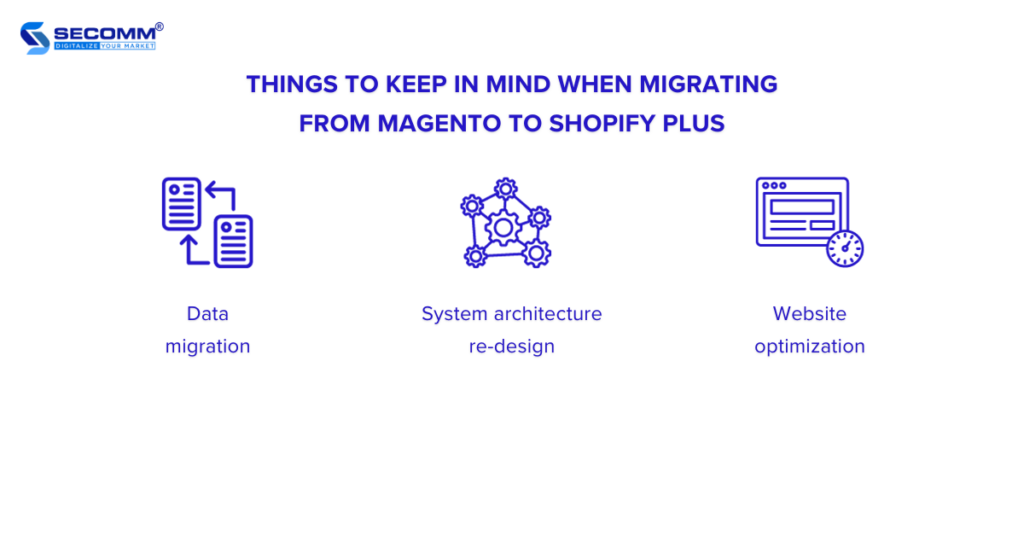
Lately, Shopify Plus has emerged as the preferred choice for businesses making the move from the Magento world.
Having extensive experience in developing eCommerce websites on both eCommerce platforms, and successfully executing the Shopify Plus migrations, SECOMM has become a reliable technology partner for many large enterprises such as Vinamilk and Suzuverse.
Contact SECOMM or call directly at the hotline (028 7108 9908) to start the project of the Magento to Shopify Plus platform migration process tailored to your business.
 2
2
 5,231
5,231
 0
0
 1
1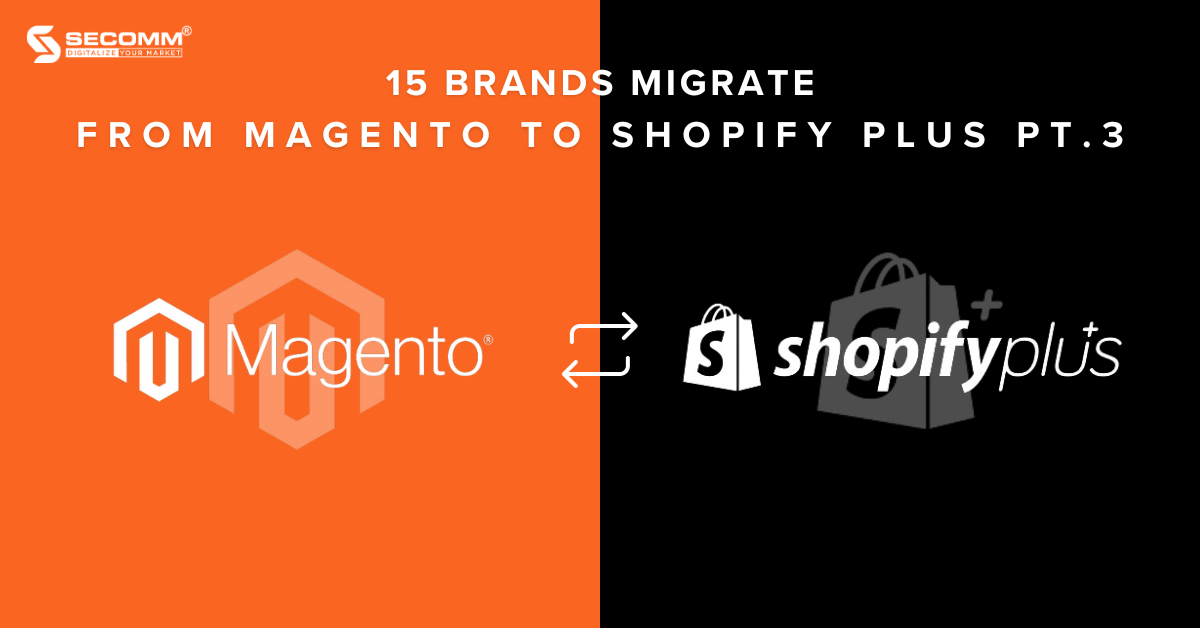
Building upon the narratives in parts 1 and 2, this third part invites you to delve into the stories of the remaining brands within the series of 15 that migrate from Magento to Shopify Plus. Explore how this strategic decision has led to their success in terms of sales and paved the way for sustainable growth in the future.
Learn more:
Beard & Blade is a wholesale business specializing in providing products for hair styling, beard care, and beauty and skincare for men. The brand is known for offering high-quality products tailored for men who aim to maintain their appearance and well-being.
Beard & Blade’s wholesale website was initially built and developed on the Magento eCommerce platform. However, according to the Beard & Blade team, operating the wholesale system on this platform proved to be challenging and required numerous manual tasks.
This resulted in time loss, and the overall cost for their wholesale system to operate on Magento was a considerable amount. Therefore, the brand decided to revamp its platform with Shopify Plus.
After considerable efforts, Beard & Blade’s Shopify Plus wholesale website for men’s products was officially launched.
By utilizing Shopify Plus’s dedicated solutions for wholesalers, Beard & Blade was able to automate inventory management, customize product pricing, and set discount levels based on the quantity of products ordered.
In contrast to the previous operational experience on Magento, wholesale orders on Shopify Plus are processed consistently, without interruptions, and without requiring manual tasks, thus avoiding disruptions to the customer experience.
Since the launch of the new website on Shopify Plus, Beard & Blade’s wholesale revenue has increased by 100%, and the average order value (AOV) for wholesale is five times higher than the retail AOV.

Milligram is a fashion and stationery brand headquartered in Melbourne, Australia. The brand primarily focuses on producing and providing stationery products, including notebooks, pens, and bags made from premium materials with unique designs.
Initially, Milligram built its eCommerce website on the Shopify platform, and later, in pursuit of brand growth, switched to using the Magento platform. After a while, as Milligram expanded its scale with more offline stores, the Magento website system started to operate slowly, and the backend database was overloaded.
Errors and delays occurred during updates, causing disruptions beyond the normal timeframe. Therefore, Milligram returned to Shopify, but this time opting for the advanced version – Shopify Plus.
Leveraging the available solutions of Shopify Plus, Milligram built and customized advanced features, such as an enhanced search function, to provide an optimal shopping experience for customers.
The platform transition from Magento to Shopify Plus was swift and smooth. Milligram easily executes promotional campaigns, uploads products without requiring technical skills, and finds managing and operating the Shopify Plus system more straightforward compared to Magento.
This allows Milligram to focus wholeheartedly on sales, marketing, and enhancing customer relationships.

Eden Park is a prestigious fashion brand originating from France, renowned for its high-end sportswear and fashion products. The brand specializes in providing premium sports and fashion items, with their collections often combining a blend of comfortable and luxurious styles.
In 2021, Eden Park turned its attention to Shopify when contemplating entry into the U.S. market. Moreover, at that time, Eden Park’s eCommerce website faced numerous operational issues.
Bastien Borget, the eCommerce Director of Eden Park, admitted that the business spent approximately 80% of its time operating the Magento website, yet the system consistently experienced errors, and the maintenance incurred substantial costs.
During Black Friday, the Magento website crashed due to overload from a sudden surge in traffic. At that point, Eden Park decided to revamp its platform with Shopify Plus, utilizing solutions within the Shopify ecosystem such as Shopify Payment and Shopify Flow.
Additionally, the superior integration capabilities of Shopify Plus allowed Eden Park to seamlessly integrate with third-party applications like Klaviyo, Gorgias, and Babak.
Eden Park’s Shopify Plus eCommerce website took less than 2 months to launch. One year after the introduction of the new website, Eden Park’s revenue increased by 30%, and the conversion rate rose by 48%.
The solutions provided by Shopify Plus alleviated the operational burden for Eden Park, allowing the business to allocate more time to marketing and sales rather than website maintenance, contributing to impressive business results.

Jack Rogers is a renowned footwear and fashion accessories brand headquartered in New York, USA. The brand is known for producing stylish sandals with traditional designs and premium materials, making Jack Rogers an icon of aristocratic fashion.
For a prominent fashion brand like Jack Rogers, utilizing a website as a potential sales channel remains crucial. However, the Jack Rogers website operating on the Magento platform began experiencing errors after a certain period.
Tasks such as repairs, changes, system operations, or running marketing campaigns consumed a significant amount of time for the technical team, leading to higher costs for Jack Rogers.
Moreover, inventory management posed challenges, with overselling issues occurring, and inaccuracies in the system’s quantity calculations resulting in revenue loss and a suboptimal customer experience.
Therefore, the Jack Rogers team sought to simplify their system, implement automation processes, and reduce technical burdens to focus on more critical business tasks.
The migration from the Magento platform to Shopify Plus helped Jack Rogers address these challenges. The new Jack Rogers website leveraged Shopify Flow solutions to automate operational, marketing, and sales processes, saving considerable time and labor compared to the manual processes of the previous Magento website.
Jack Rogers also utilized Shopify Plus Certified App applications to enhance the customer experience, including Returnly, Smile, Gorgias, and others.
During the Covid-19 social distancing period, Jack Rogers’ Shopify Plus website became the primary sales channel for the brand, experiencing a 60% increase in website traffic and a 30% increase in conversion rates.

Skin Inc is a skincare brand based in Singapore, specializing in providing personalized skincare products based on scientific principles and advanced technology. The brand is renowned for creating diverse and high-quality skincare products, particularly serums and unique skincare items.
With pride in their personalized products, Skin Inc also aimed to build an optimal online shopping experience with a high degree of personalization for customers. However, the business lacked the tools to achieve this.
Each time the technical team made a few changes, the website system immediately slowed down, lagged, and sometimes even had to temporarily suspend operations, causing disruptions to customer shopping.
This issue occurred frequently, especially during major year-end shopping seasons, resulting in substantial losses for Skin Inc, amounting to thousands of dollars.
Therefore, Skin Inc needed an alternative eCommerce solution that could be easily customized to deliver the best customer experience. Skin Inc transitioned from Magento to Shopify Plus and swiftly found solutions to enhance the customer experience.
With multi-store management features, Skin Inc could create multiple versions of eCommerce websites to tailor the experience for different customer segments in various markets.
In addition, Skin Inc implemented Shopify Flow and LaunchPad solutions to automate operational and sales processes. The seamless integration capabilities of Shopify Plus enabled Skin Inc to easily integrate with third-party applications to enhance marketing campaigns and customer loyalty programs.
As a result, this renowned beauty brand was able to reduce operational time by 50% and increase conversion rates by 200%.

So, SECOMM has gathered insights from 15 representative brands that courageously stepped out of the “Magento world” to revamp their eCommerce websites with Shopify Plus. These brands prioritize customer experience and streamlined processes, inspiring others to confidently opt for platform migration.
Contact SECOMM or call directly at (+84)28 7108 9908 for advice and implementation of the eCommerce migration process from Magento to Shopify Plus today!
 25
25
 4,955
4,955
 0
0
 1
1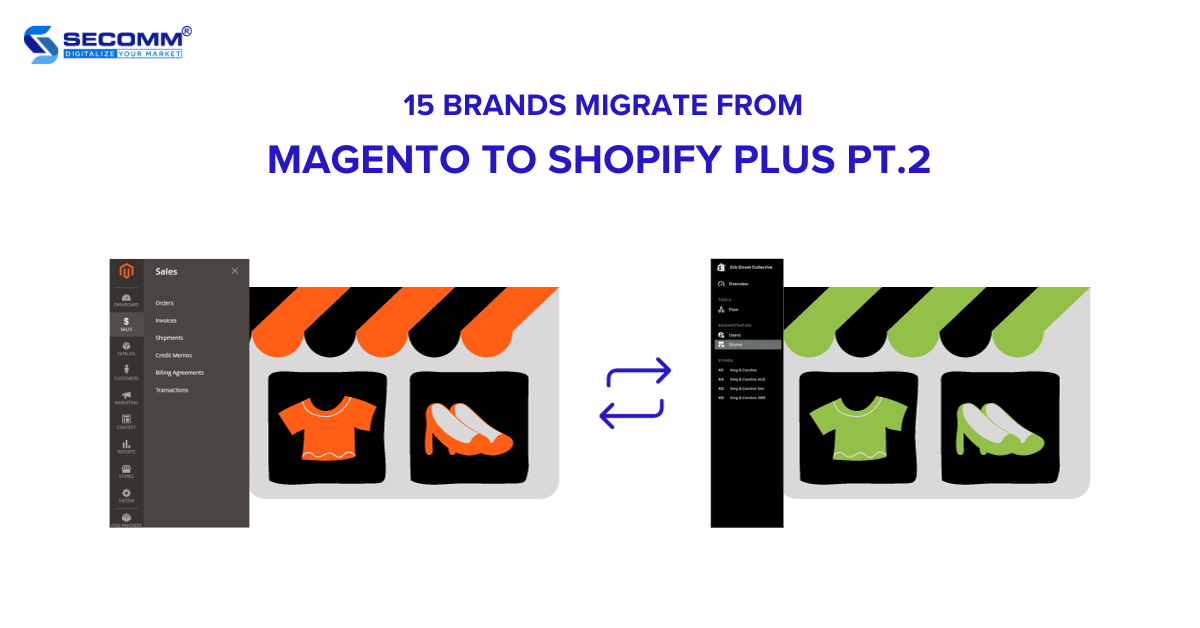
When it comes to brands that migrate from Magento to Shopify Plus, it’s good to read their success stories in sales behind. In the second part of this series, let’s continue to delve into more brands that chose to migrate their eCommerce platforms from Magento to Shopify Plus, and explore how this decision paved the way for boundless success.
Originally established as a wholesaler distributing high-quality underwear through pharmacies, Boody later identified new growth opportunities by venturing into online sales for environmentally conscious fashion enthusiasts.
Boody initially deployed an eCommerce website on the Magento platform, but the absence of a dedicated technology team severely limited management, operations, and customization capabilities.
Also, inconsistencies between the frontend on mobile devices and laptops, utilizing different technological solutions, resulted in a non-uniform user experience and inefficient use of system resources.
To address these challenges and pursue goals of international expansion, Boody sought a platform that could alleviate the burden of management and operations while providing a consistent customer experience.
The fashion brand switched from Magento to Shopify Plus, promptly implementing automated solutions for processes such as email and security checks using Shopify Flow. Boody also adopted Shopify Payments to facilitate online transactions without the need for integration with third-party payment service providers.
The platform overhaul with Shopify Plus significantly enhanced the operations. Leveraging the robust integration capabilities of Shopify Plus, Boody seamlessly integrated with third-party systems to strengthen customer relationships, including platforms like Klaviyo, Gorgias, and Odoo.
Benefiting from the flexibility and solutions offered by Shopify Plus, Boody developed a customized eCommerce website without requiring extensive technical expertise. This allowed the Boody team to focus on multi-channel sales strategies and international expansion.
Shortly after the platform transition, Boody rapidly expanded into 10 international stores, witnessing a 70% increase in online sales and a 5% rise in conversion rates. With Shopify Plus, Boody is realizing its mission to become the world’s most beloved sustainable underwear brand.
Learn more: 15 brands migrate from Magento to Shopify Plus Pt.1

Alessi is a renowned Italian brand specializing in the design and manufacturing of high-quality household and interior decoration products. The brand was established in 1921 and has since become one of the icons of Italian art and design.
Alessi pays attention to every detail in product design while relying on third-party units to enhance the aesthetics of its website design.
However, the Magento eCommerce platform, which Alessi had been using for a long time, suddenly announced the end of support for older versions, obliging merchants to upgrade to a higher version.
Faced with the complex and time-consuming upgrade process, Alessi decided to seek an alternative solution.
Moreover, the outbreak of the Covid-19 pandemic in Italy and across Europe prompted Alessi to make necessary changes to maximize online sales. The business executives aimed to re-establish the platform within just 12 weeks.
In reality, Boody achieved the goal in less than 3 months by completing the e-commerce platform transition from Magento to Shopify Plus.
Since implementing Shopify Plus, Alessi has seen a 233% increase in page views, a 109% increase in conversion rates, a 222% increase in transaction volume, and a 210% increase in total online revenue.
Alessi can now rest assured that customers will have an engaging shopping experience on the website, reflecting the true brand image that the business has spent a century building.

Rebecca Minkoff, a renowned high-end fashion brand from the United States, is well-known for its handbags, footwear, and fashion accessories. The brand’s products often embody a blend of alluring, practical, and creative styles.
Rebecca Minkoff not only focuses on creating aesthetically pleasing fashion items but also consistently leverages technology to provide customers with novel shopping experiences over the past decade.
In addition to this, the customer’s online shopping experience on the brand’s eCommerce website is a particular area of emphasis. The migration from the Magento eCommerce platform to the Shopify Plus platform is also part of Rebecca Minkoff’s strategy.
Utilizing solutions available within the Shopify Plus ecosystem, coupled with robust and seamless integration capabilities, has enabled this fashion brand to implement 3D and AR (Augmented Reality) technologies.
These technologies aim to enhance customers’ unique, detailed, and realistic views of products, ranging from styles to materials.
According to the company, individuals interacting with 3D models are 44% more likely to add that model to their shopping carts compared to those who do not interact. Among visitors who engage with 3D models, they have a 27% higher likelihood of placing an order compared to non-interacting individuals.
Rebecca Minkoff notes that when customers view a product in AR, their likelihood of making a purchase increases by 65%.
This positive step in eCommerce has significantly contributed to business growth. According to Rebecca Minkoff, 65% of customers interacting with AR products tend to make purchasing decisions swiftly, and with 3D technology, this figure is 27%.

Established in 2012 in the United Kingdom, Blakely is a unisex fashion brand known for its youthful and dynamic style. Blakely’s product range includes t-shirts, hoodies, sweaters, leggings, jeans, and fashion accessories. The brand aims to provide high-quality, beautifully designed, durable products that align with current fashion trends.
Blakely’s eCommerce website was initially built on the Magento platform. However, the system frequently experienced crashes, especially during peak shopping periods like Black Friday, affecting customer shopping experiences and the brand’s revenue.
Another concern for Blakely with the previous platform was its limitations in integrating with third-party applications, posing challenges in reaching target customers and efficiently managing customer data to drive real growth. Furthermore, the lack of tools for data management led to issues in the personalization and localization of the customer experience.
Therefore, after careful consideration, Blakely decided to migrate from the Magento platform to Shopify Plus. With the implementation of Shopify Plus, Blakely successfully launched two additional eCommerce websites specifically catering to EU and U.S. customers, enabling the brand to sell more efficiently in international markets.
Blakely also utilized Shopify Plus’s available themes and seamlessly integrated with third-party tools to not only provide an optimal shopping experience for customers but also support effective data management.
Switching to Shopify Plus brought about significant positive changes for Blakely in terms of sales. Specifically, the conversion rate increased from 1.4% to 2.6%, and the EU store witnessed an impressive 30% growth since its launch. Global sales increased by 49%, with a 130% increase in sales in the U.S. and a 60% increase in sales in the EU.

Peepers is a fashion brand specializing in reading glasses and sunglasses with its main headquarters located in Michigan, USA. The brand is known for blending modern design with quality, offering high-quality products at affordable prices.
Despite several redesigns that consumed considerable time and budget, Peepers’ Magento website failed to meet expectations.
The brand aimed to enhance page loading speed and provide customer-centric features, but the costs associated with each change or system update on Magento proved to be a significant expense for Peepers.
Therefore, Peepers made the switch to Shopify Plus to leverage the platform’s flexible customization capabilities with a more cost-effective approach than Magento.
Furthermore, offering a customized payment experience enhances the security of customers’ personal and payment information, thereby increasing customer trust when shopping on the Peepers website.
Since transitioning from the Magento platform to Shopify Plus, this fashion brand has witnessed a 30% increase in conversion rates and a 20% increase in the average order value (AOV).

Here are the next 5 brands in the series re-platform from Magento to Shopify Plus. While Boody’s motivation for the switch is to ease the burdens of management and operations, Alessi, in contrast, seeks to avoid the expenses and time involved in upgrading to a higher platform version.
Rebecca Minkoff, however, aims to capitalize on the existing ecosystem of Shopify to implement 3D and AR technology solutions for their eCommerce website.
Similarly, Blakely and Peepers overhauled their platforms to streamline operational time and costs, leveraging the advanced integration capabilities of Shopify Plus to deliver a distinctive customer experience.
Throughout SECOMM’s process of executing platform migration, the pivotal factor determining success is a detailed and well-structured conversion plan.
Contact SECOMM or directly call the hotline at (028 7108 9908) to collaborate on devising the optimal plan for the platform migration.
 2
2
 5,522
5,522
 0
0
 1
1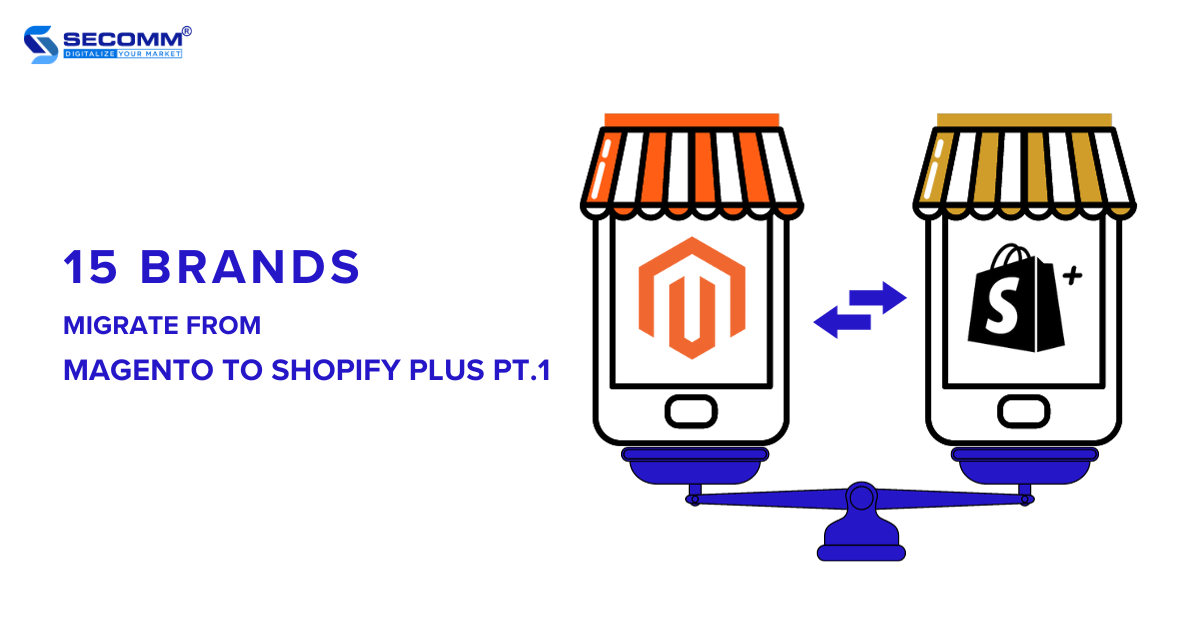
Magento is known as the ‘golden standard’ for many eCommerce businesses. With its scalability and flexible customization, Magento can provide a unique shopping experience.
However, the complexity of deploying, managing, and maintaining the system has led many brands to step out of the ‘Magento world’ in search of more optimal solutions. Shopify Plus is one of the popular choices today for streamlining the migration.
Let’s delve into why the following five brands opted to migrate from the Magento platform to Shopify Plus for their eCommerce websites, and how this strategic decision has contributed to increased conversion rates and sales.
Learn more: 15 Reasons You Should Migrate to Shopify Plus
Established in 2012, Gymshark, a renowned athletic wear retail brand, adopted Shopify Plus. However, before making the switch, the brand had built and developed its eCommerce website using Magento.
For a fashion retailer, year-end shopping seasons, especially Black Friday, represent opportunities for sales growth. Simultaneously, Gymshark’s rapid expansion since its inception required more from a platform capable of managing spikes in traffic and consistently scaling with its business objectives.
Dissatisfied with the existing system, the Gymshark team faced not only the time-consuming setup and operation but also significant costs – amounting to thousands of dollars – for repairing and maintaining the system that crashed precisely during the Black Friday event.
According to Ben Francis, the founder of Gymshark, the eCommerce website was down for about 8 hours, resulting in an estimated damage of over £100,000.
Therefore, Gymshark overhauled its platform with Plus, leveraging Shopify POS and Shopify Script solutions to bridge the gap between offline and online shopping experiences. They enhanced these shopping experiences with custom code snippets at the checkout page.
With these tools, Gymshark only needed to customize based on its specific needs and goals. In contrast, developing such features on Magento could have consumed considerable time and budget.
The platform switch to Shopify Plus helped Gymshark achieve a retail turnover of £41 million and garner over 5.1 million social media followers in 2017, propelling the business to become one of the fastest-growing brands globally.

Arising from an inspiring founding narrative, Bombas, a U.S.-based sock manufacturer and retailer, committed to donating a pair of socks for each pair sold to those facing homelessness. The company garnered successful funding on Shark Tank in 2013, capturing the interest of both investors and American consumers.
However, the joy quickly turned to dismay when Bombas secured a deal with investor Daymond John, and their Magento eCommerce website suffered not one but two crashes—first during the initial airing and then during the subsequent rerun of the episode.
Compounding the issue, the most disastrous moment for Bombas occurred when their Magento website collapsed amid the peak shopping season of Black Friday and Cyber Monday (BFCM).
The system failure hindered customers from completing transactions, resulting in Bombas incurring significant financial losses, additional expenses, and extended downtime for system repairs.
Therefore, Bombas needed a more reliable eCommerce platform that could effectively address the issues they encountered, leading them to choose Shopify Plus.
The infrastructure of Shopify Plus facilitated Bombas in effortlessly and seamlessly expanding their system. Moreover, the eCommerce website system consistently withstood the demands of major shopping events like BFCM and reruns of the Shark Tank program.
Despite the substantial cost of migrating from Magento to Shopify Plus, Bombas swiftly recovered the investment, generating $17.2 million in revenue during the first year of Shopify Plus deployment—a 300% increase compared to the same period the previous year.
The positive outcomes of transitioning to the Shopify Plus platform are evident not only in financial metrics but also in how Bombas has bolstered its reputation and image in the eyes of customers, delivering a premium shopping experience.

In 2010, from the beaches of Costa Rica, two young entrepreneurs, Griffin Thall, and Paul Goodman, started Puravida Bracelets with a mission to collaborate and provide better income opportunities for bracelet artisans in Costa Rica and around the world.
The Puravida Bracelets story gained attention on social media as customers became curious about the close-to-nature lifestyle in South America, particularly in Costa Rica. Over time, the brand expanded its product portfolio to include necklaces, anklets, earrings, and hair ties.
Similar to many other businesses, Puravida Bracelets began its eCommerce journey with the Magento platform.
However, both Thall and Goodman were ambitious young entrepreneurs who desired rapid growth and development for their bracelet brand. Therefore, the challenge was to scale the eCommerce website system while ensuring the most optimal deployment costs.
This led Thall and Goodman to deploy Shopify Plus to find a solution to seamlessly integrate and combine various tools and applications to manage business operations more efficiently, provide a more engaging shopping experience, and increase sales.
The decision to switch from the Magento platform to Shopify Plus helped Puravida Bracelets increase retail revenue by 50% compared to the same period the previous year. Email sign-ups increased by 350%, and email revenue quadrupled compared to before the platform revamp.

PittaRosso is a renowned footwear retail brand from Italy with over 150 retail stores across Europe. The brand’s goal is to provide customers with an omnichannel shopping experience and implement several enhancements for its eCommerce website.
However, issues related to poor website performance, leading to suboptimal product pages on search engines, made PittaRosso hesitate before deciding to pursue the next goal with Magento. The complexity, time, and budget associated with Magento led PittaRosso to revamp its platform with Shopify Plus.
Simultaneously, they implemented a headless architecture for the eCommerce system and redesigned the SEO architecture and content strategy.
The footwear brand customized the frontend and integrated the CMS platform into the Shopify Plus backend to improve page loading speed, user experience, and SEO results. PittaRosso’s strategic shift coincided with the significant growth of eCommerce spurred by the Covid-19 pandemic, boosting the business’s eCommerce sales in 2021.
By 2022, the sales figures even surpassed expectations, with a 37% increase in net profit compared to the same period the previous year.
Building on this success, PittaRosso implemented payment integrations and automation to optimize multichannel sales operations and the overall shopping experience.
Re-platforming from Magento to Shopify Plus helped the business maintain a steady annual increase in conversion rates, sales, and notably, Black Friday Cyber Monday (BFCM) sales.
Learn more: What is Headless Shopify?

After six years of using Magento, the world’s largest retailer of military surplus and collectibles, IMA, fell victim to a hacker attack that resulted in the theft of a considerable amount of customer credit card information.
This incident led to IMA facing substantial fines from VISA, and Alex Cranmer, the Vice President of IMA, criticized Magento for its delayed notification to merchants about this security vulnerability.
IMA spent over $50,000 and three months rectifying security flaws in its system. Shortly after, Magento announced the discontinuation of support for older versions, implying that IMA needed to upgrade to a higher version, incurring potentially tens to hundreds of thousands of dollars in expenses and an extended timeline for completion.
In response, IMA decided to replatform from Magento to Shopify Plus, seeking a more secure solution for IMA’s system and enhancing the customer experience. Besides security and customization, some unique solutions such as Shopify Flow and LaunchPad significantly boosted IMA’s profit margins.
The costs associated with platform usage, maintenance, operations, and updates were notably reduced compared to deploying Magento.
Cranmer admitted to being complacent, thinking that Shopify was only suitable for individuals selling a small volume of products.
However, the Plus version surprised him with its specialized solutions and features designed explicitly for large, unlimited-growth businesses on their journey.

Here are five brands that have witnessed a remarkable change in sales by migrating to Shopify Plus. An important point to note is that while Magento provides high scalability and customization, the process demands a substantial budget and an extended deployment timeline.
Additionally, there is a need for technical expertise to determine when and how the system should expand. Sometimes, businesses may even face security vulnerabilities, as in the case of IMA.
On the other hand, Plus provides flexible customization with optimized costs, a faster time to market, and simplified maintenance and updates, following the platform’s rules.
Through accumulated experience in numerous eCommerce platform migrations, SECOMM is not only a solution provider but also a reliable partner for every business on its eCommerce journey.
Contact SECOMM or call directly on the hotline (028 7108 9908) for professional advice on planning the migration from Magento to Shopify Plus, unlocking unlimited development opportunities in the digital age.
 2
2
 6,007
6,007
 0
0
 1
1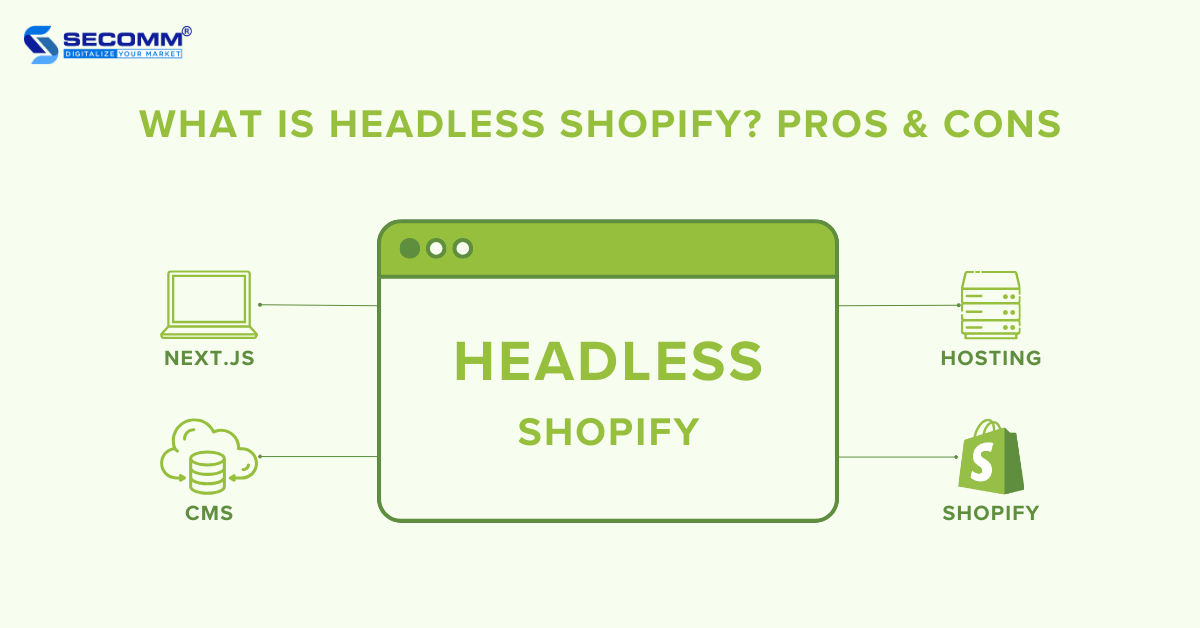
eCommerce is undergoing a revolution, where businesses no longer need to strictly bind to traditional eCommerce models like Monolithic Commerce. Instead, they can create distinctive and adaptable customer experiences across a variety of digital channels through a methodology known as Headless Commerce.
Headless Commerce involves the separation of the frontend and backend of an eCommerce website. This allows the backend to transmit content through APIs to diverse frontends, including websites, mobile apps, IoT, POS, and more. Headless Commerce also gives you greater flexibility in customizing frontends compared to monolithic systems.
Learn more: Monolithic, Headless, Composable or MACH artchitecture
Among the prominent eCommerce platforms today, Shopify stands out with numerous effective solutions for headless deployment. This article on Headless Shopify delves into the concept, advantages and disadvantages, and solutions, and offers insights to help determine whether it is a suitable fit for every business.
It is a way to build an eCommerce website using Shopify but separate the frontend (user interface) and backend (product management, order processing, payment system).
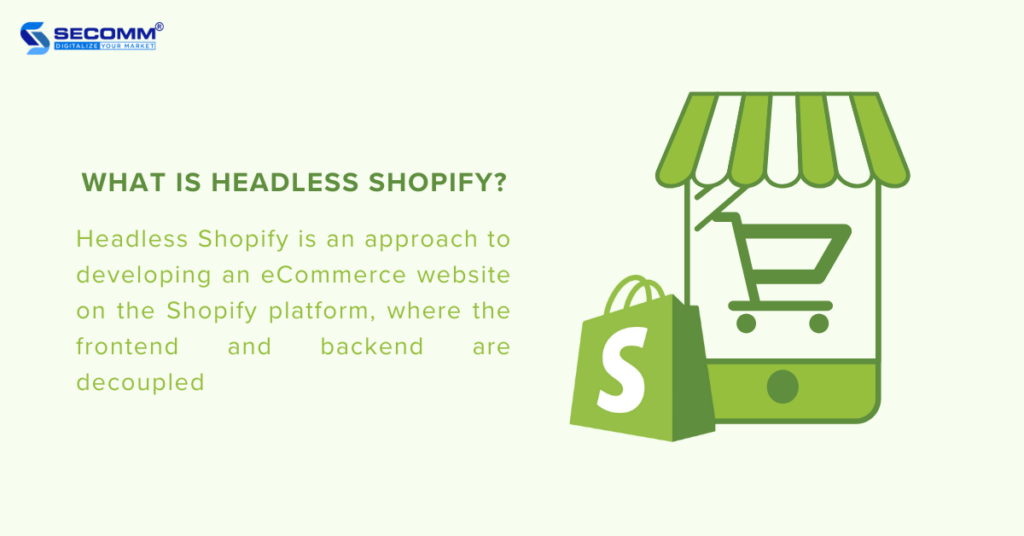
With this headless solution, businesses have the flexibility to use their preferred content management system (CMS) or frontend technology and then connect it to Shopify’s backend through the Storefront API.
Key features of a Headless Shopify store include:
Learn more:
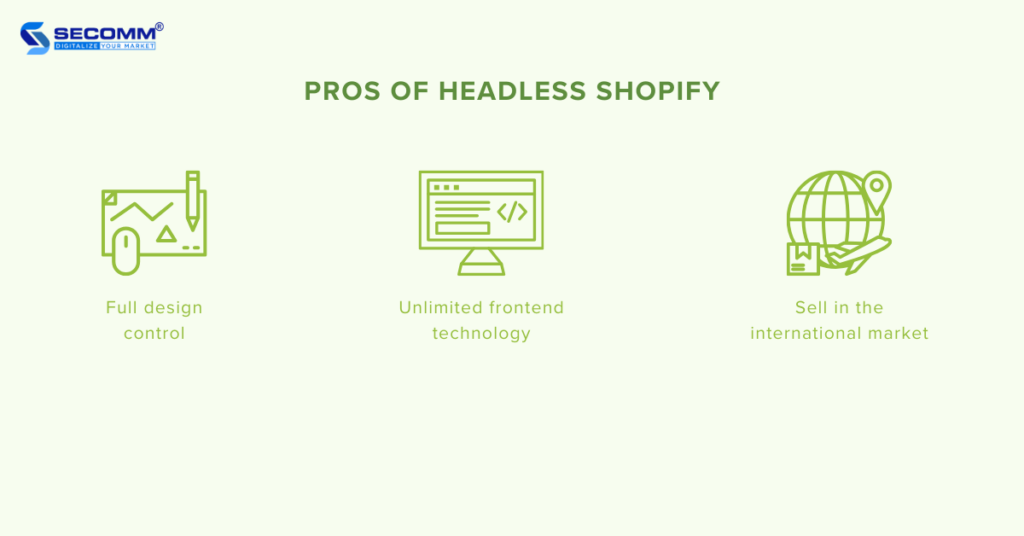
Headless Shopify provides extensive customization for interface design and personalized user experiences. While the themes, including both free and premium options, boast attractive and modern designs with diverse choices for various business niches, these themes still come with constraints in terms of customization and features.
By using it, you can maximize customization for both interface design and user experience, creating a unique identity and enhancing your competitive edge.
It imposes no limitations on the type of devices or platforms that can display content. Content created and managed on the backend system can be displayed on any device or platform that the business desires.
In other words, content data from the Headless Shopify system is distributed in API format to various modern frontend technologies, such as websites, mobile apps, IoT, POS, etc. This facilitates the distribution of user-tailored content across different devices and platforms, ensuring seamless and optimized multichannel selling.
With Headless Shopify, you can customize frontend interfaces, integrate Headless CMS, and incorporate local payment systems to distribute content and provide a shopping experience tailored to users in each market. This customization includes aspects such as domain, language, currency, payment gateways, and local payment methods.
Plus, you can leverage the Shopify Markets solution, which offers a full range of features, both basic and advanced, enabling you to expand your reach globally.
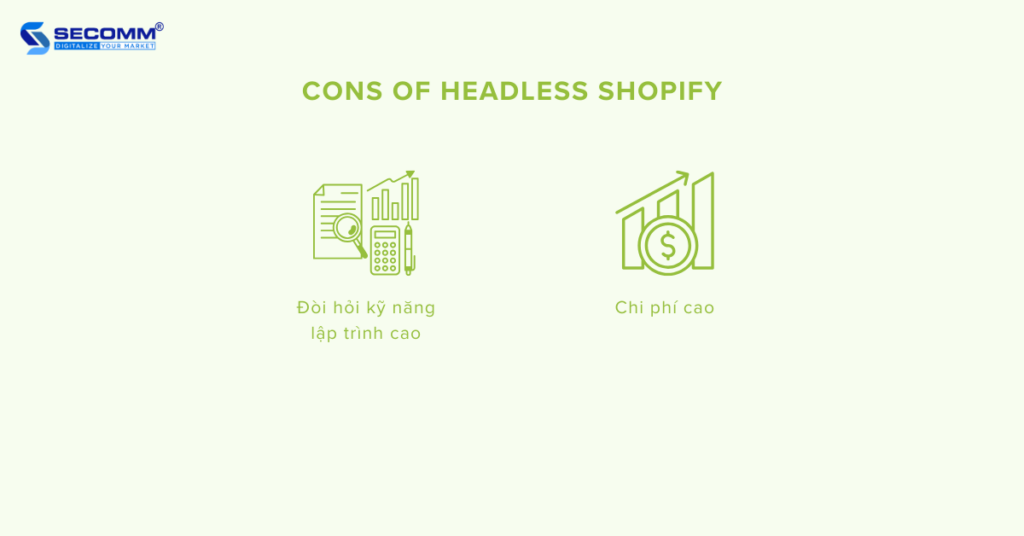
Traditionally, Shopify has provided businesses with a ‘Plug-and-play’ solution, meaning that applications or utilities can be integrated into an online store and activated for easy use without the need for complex programming.
However, The headless solution provides you with advanced customization and scalability, requiring a higher level of technical expertise and complexity.
To address this challenge, you can partner with specialized developers like SECOMM for tailored guidance throughout deployment. These experts can provide insights on the recommended customizations to enhance system performance and user experience.
When deploying Headless architecture, there are three types of fees to consider: platform fees, development fees, and maintenance fees.
As deploying Headless Commerce requires high technical expertise, the development cost will be significantly higher than implementing a Monolithic Commerce model.
Moreover, going Headless with SaaS platforms such as Shopify or CMS, ERP, PIM, and CRM requires monthly payment fees, making cash flow management challenging due to the potential fluctuations in platform usage, affecting monthly expenses.
Learn more:
Throughout the evolution of eCommerce technology, Shopify has accurately anticipated and provided solutions to meet the deployment needs of businesses worldwide.
Notably, the trend of adopting Headless Commerce has been shaping the global landscape for several years, and Shopify has offered outstanding solutions for businesses to implement Headless based on its platform infrastructure.
The beauty brand Victoria Beckham Beauty was launched in 2019, aiming to provide an optimal user experience across multiple global markets with high performance. To achieve this, the company deployed Headless Shopify Plus to manage products, orders, and payments.
It integrated Contentful as a Headless CMS to store and distribute content data to frontends, including the website and mobile app, through the Storefront API.
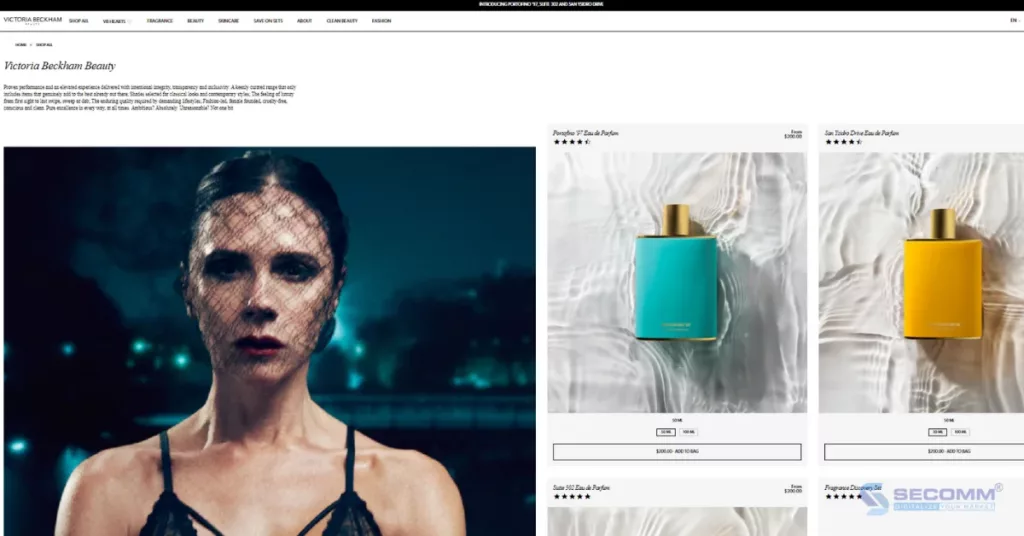
Since its establishment in 2015, Paul Valentine has become a major global jewelry brand with over 12 local stores, each with its dedicated sub-domain, to cater to diverse user demographics.
To streamline content management for these 12 stores within a centralized system, Paul Valentine has developed a Headless eCommerce website using the Vue.js framework on the Shopify Plus platform for backend management.
The Headless CMS platform, Contentful, is seamlessly integrated into the Shopify Plus backend system, enhancing the efficiency of content management and distribution across the interfaces of the 12 local stores, spanning both the website and mobile app through the Storefront API layer.

To meet the requirement of integrating an eCommerce website and a corporate information website into a unified user experience, SECOMM has supported Vinamilk in restructuring the system with a Headless architecture. Shopify Plus manages the ‘eCommerce’ aspect, while a Headless CMS platform is utilized for storing, managing, and delivering content to user interfaces. This results in a comprehensive custom Headless Commerce + Headless CMS model.
Learn more: 15 brands deploy Headless Commerce with Shopify Plus

The answer is no.
While both the core and the Plus can implement Headless Commerce, the high flexibility of Shopify Plus makes the process easier, especially when utilizing the Headless solutions.
In essence, headless architecture is better suited for businesses with high demands for flexibility, customization, and scalability, as well as a desire for uniqueness to craft a diverse and seamless customer experience. If your business simply wishes to engage in straightforward online selling, core Shopify is sufficient.
On the other hand, for those seeking a balance between flexibility and stability, Plus is a viable option.
With a wealth of experience going headless for major enterprises like Vinamilk and Suzuverse, SECOMM boasts a highly skilled technical team with deep expertise in Shopify and the execution of Headless solutions on this platform.
Contact or call SECOMM’s hotline directly at (028 7108 9908) to receive advice on deploying Headless Shopify that is suitable for each business model. The team will also provide a detailed development roadmap divided into different stages.
 2
2
 7,571
7,571
 0
0
 1
1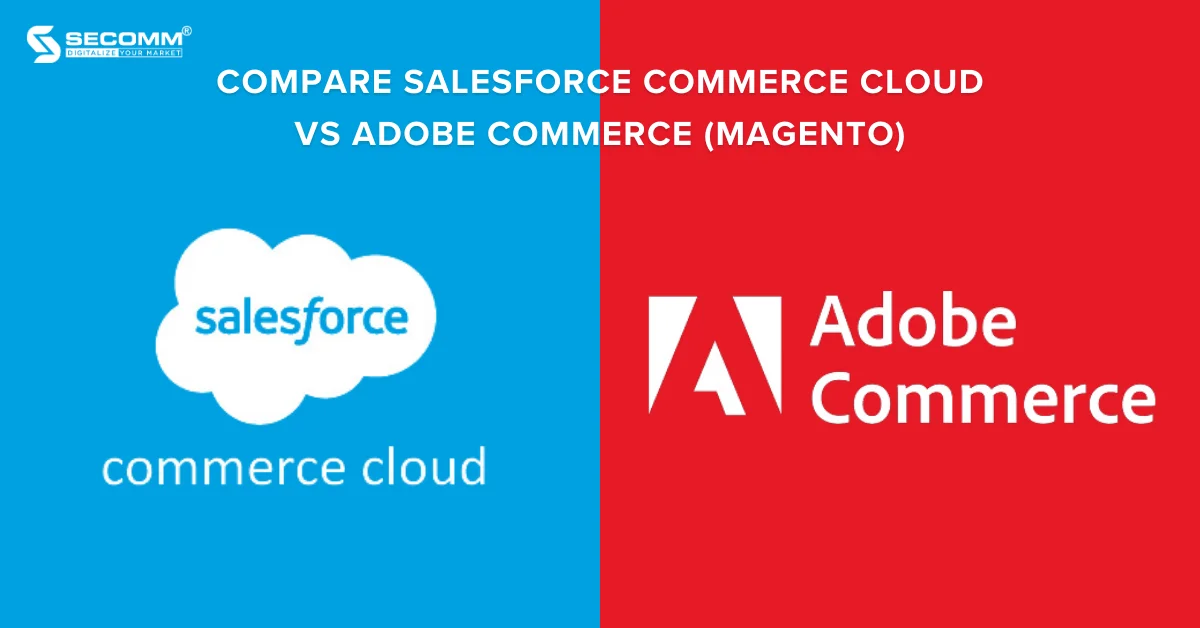
Salesforce Commerce Cloud and Adobe Commerce (Magento) are two leading platforms in the field of eCommerce, trusted by many large enterprises. However, both of these platforms have significant differences.
Let’s explore the important aspects of both with SECOMM to help businesses decide which platform is suitable for the brand’s business needs.
Salesforce Commerce Cloud, formerly known as Demandware, is a cloud-based eCommerce platform. Salesforce Commerce Cloud operates on the SaaS (Software-as-a-Service) model, providing high scalability and a range of features and capabilities to help businesses create a seamless and effective shopping experience for their customers.
Within Salesforce Commerce Cloud, there are three main editions for building eCommerce websites: Salesforce B2C Commerce, Salesforce B2B Commerce, and most recently, Salesforce B2B2C Commerce.
In the B2C model, there are three solution packages:

Similarly, the B2B model is also divided into 2 solution packages, including:
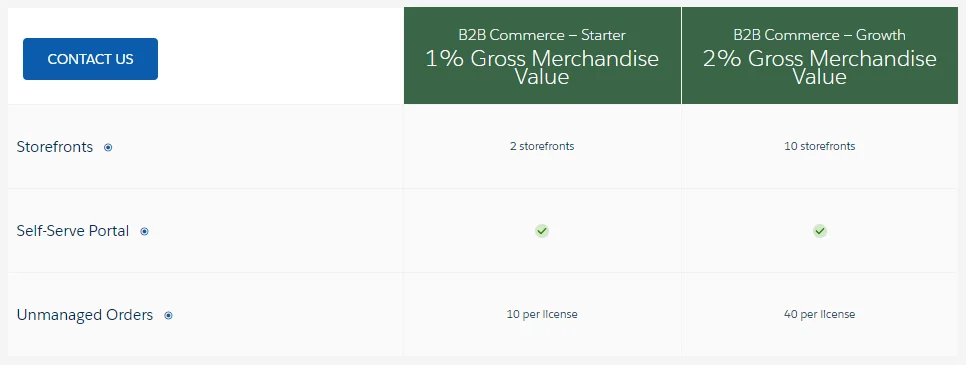
For the B2B2C model, it will be calculated based on 1% Gross Merchandise Value (GMV).
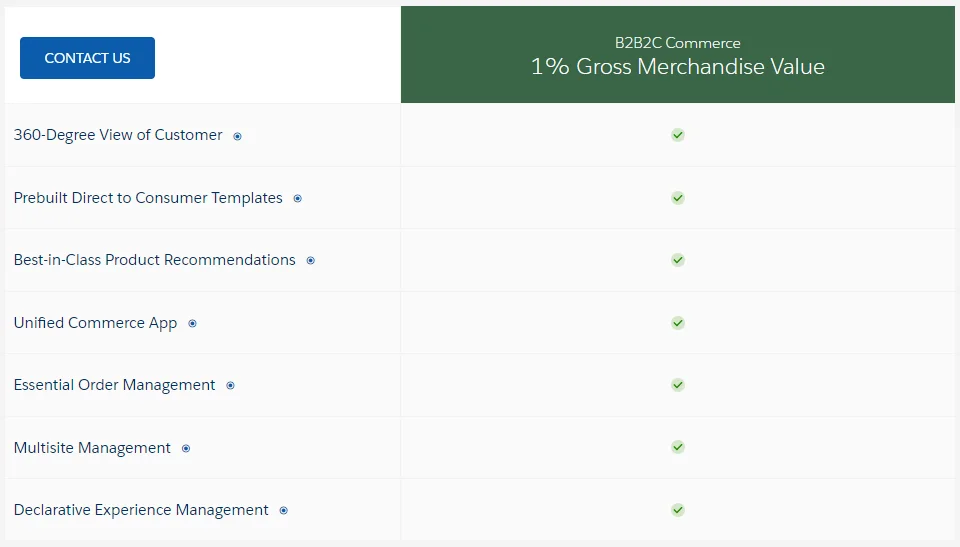
Related article: Top 10 Websites Built On Salesforce Commerce Cloud
Adobe Commerce (formerly known as Magento) is an open-source eCommerce platform designed under the PaaS (Platform-as-a-Service) model, assisting businesses in constructing professional eCommerce websites.
Adobe Commerce can be categorized into two main types:
Additionally, Adobe Commerce still supports the Magento Open Source version – a free version that can be downloaded and used by anyone.
Related article: Top 20 eCommerce Websites Using Adobe Commerce (Magento)
In summary, Salesforce Commerce Cloud and Adobe Commerce are two leading eCommerce platforms with significant differences.
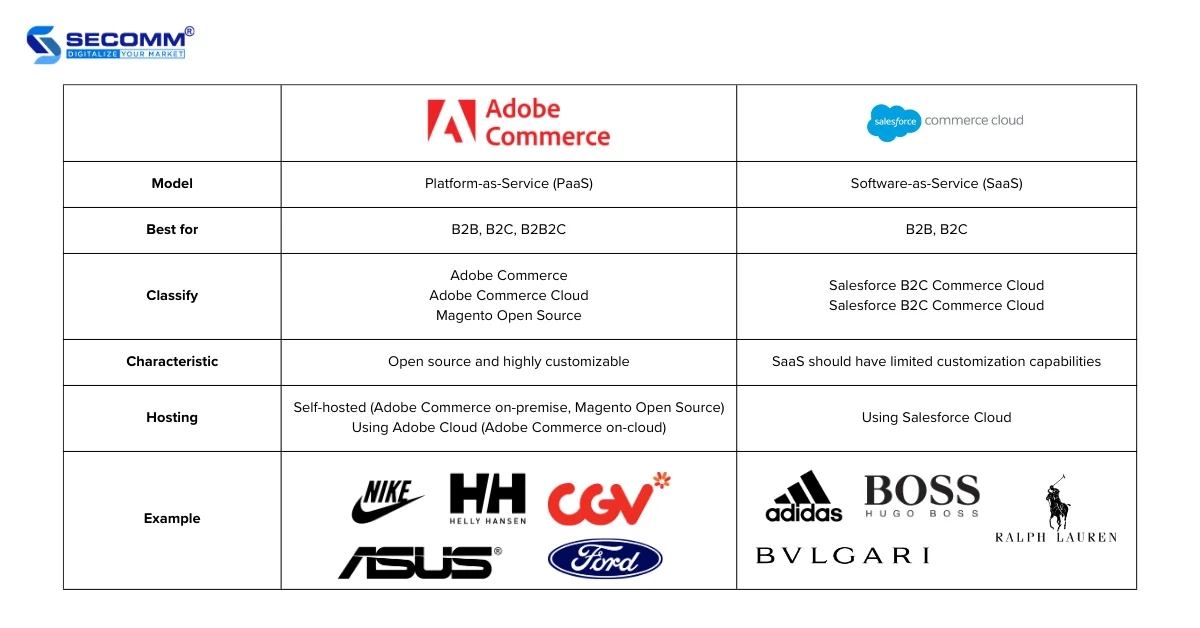
The cost of Salesforce Commerce Cloud depends on various factors but largely hinges on the scale of the business.
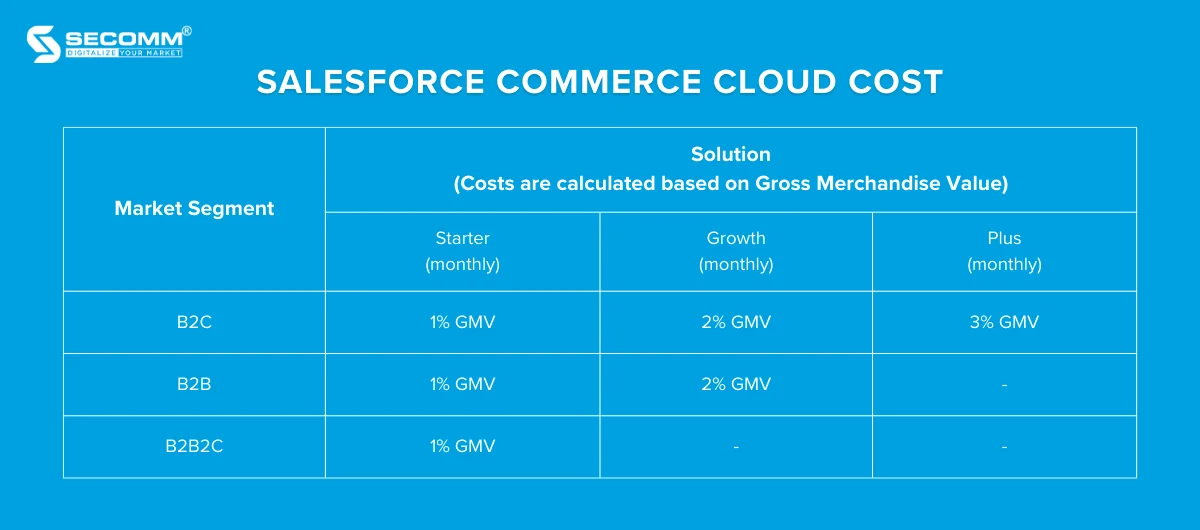
Operating as a SaaS solution, businesses pay a monthly fee based on the number of users and the revenue generated by the website. Costs start from depending on the GMV, averaging around $2,500 per month and can increase to tens of thousands of dollars for larger enterprises.
The cost of Adobe Commerce (Magento) also depends on various factors, including the chosen version and the monthly revenue of the business.
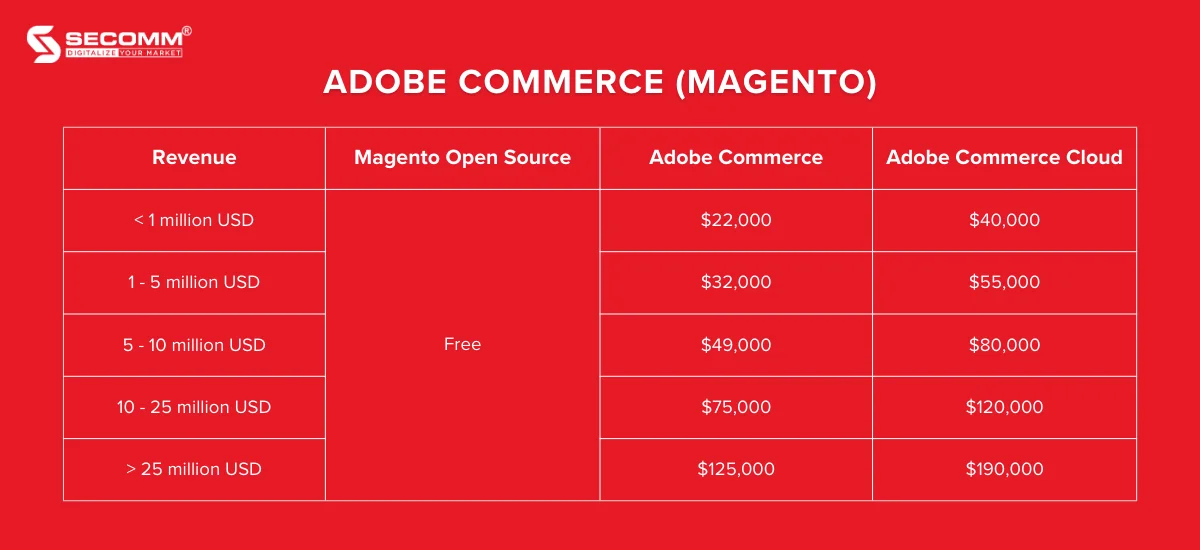
Adobe Commerce is a PaaS solution, meaning businesses must purchase software licenses annually and then pay a monthly fee for hosting and support if needed. License costs start from around $22,000, and hosting costs start from approximately $3,000 per year.
It can be observed that the costs of Salesforce Commerce Cloud and Adobe Commerce (Magento) may vary depending on the business scale, specific requirements, and customization levels.
For instance, for a business with a GMV of $25 million, the platform usage cost for Salesforce Commerce Cloud might be around $250,000/month, whereas for Adobe Commerce Cloud, it could be approximately $120,000/month.
In general, Salesforce Commerce Cloud tends to have higher costs compared to Adobe Commerce.
Related article: The Cost Of Building An Adobe Commerce (Magento) Website
Adobe Commerce (Magento) is built on an open-source architecture, allowing high customization and flexibility. Users can modify a significant amount of source code, making this platform suitable for complex eCommerce needs.
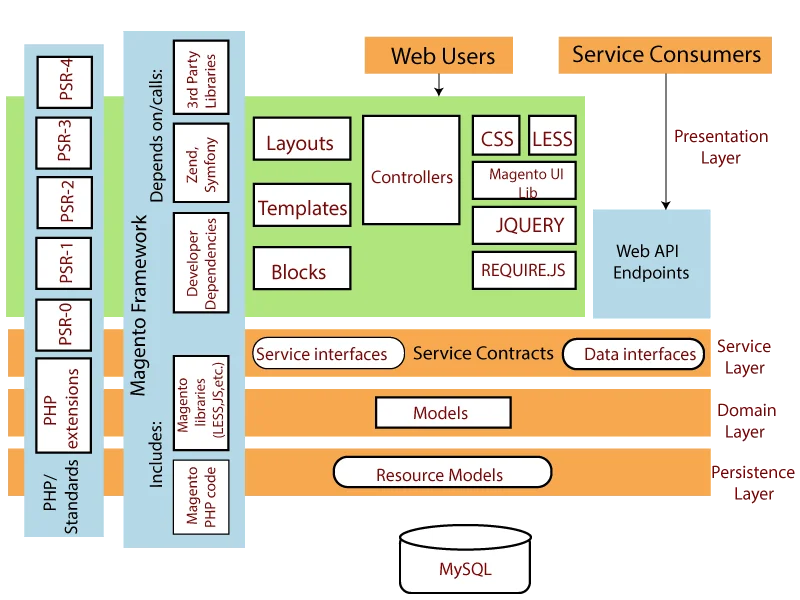
Salesforce Commerce Cloud utilizes a cloud-native, multi-tenant architecture. While this architecture provides significant customization capabilities, it is less flexible for modifying deep code segments compared to open-source architectures like Adobe Commerce (Magento).
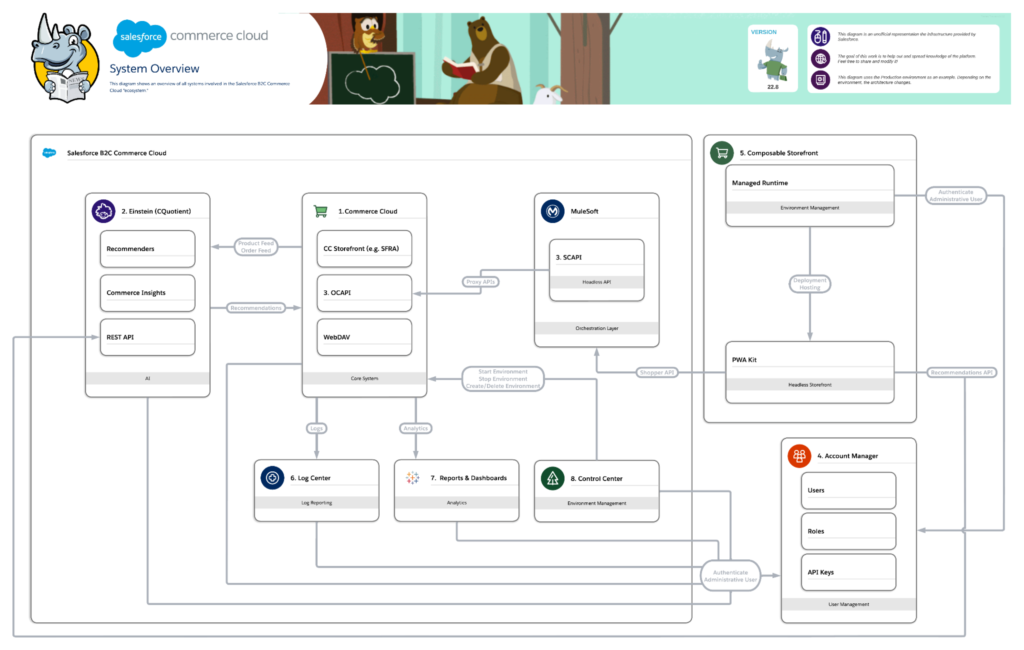
Salesforce Commerce Cloud is part of Salesforce, the leading Customer Relationship Management (CRM) platform today. Salesforce is renowned for its CRM services, including sales, customer, and marketing management.
Consequently, Salesforce Commerce Cloud seamlessly integrates with Salesforce CRM, providing a unified platform for managing and interacting with customers. This tight integration can be a significant advantage for companies heavily reliant on Salesforce for customer management.
Additionally, Salesforce Commerce Cloud seamlessly integrates with the Customer 360 ecosystem, including business management software like data, AI, or third-party utilities partnered with Salesforce.

On the other hand, Adobe Commerce Cloud is part of the Adobe Experience Cloud, a comprehensive set of solutions for marketing and customer experience.
Thus, Adobe Commerce Cloud integrates with other Adobe tools to support seamless multi-channel customer experience and marketing.
Some commonly used utilities in Adobe Experience Cloud include:
Moreover, Adobe Commerce Cloud offers various integration options and supports third-party extensions and plugins. This means Adobe Commerce can integrate with a wide range of systems such as CRM, POS, WMS, OMS, ERP, etc.
Salesforce Commerce Cloud and Adobe Commerce (Magento) are two widely used leading eCommerce platforms in the market, partially due to their incredibly powerful and diverse feature sets.
Below is a comparison of features between Salesforce Commerce Cloud and Adobe Commerce:
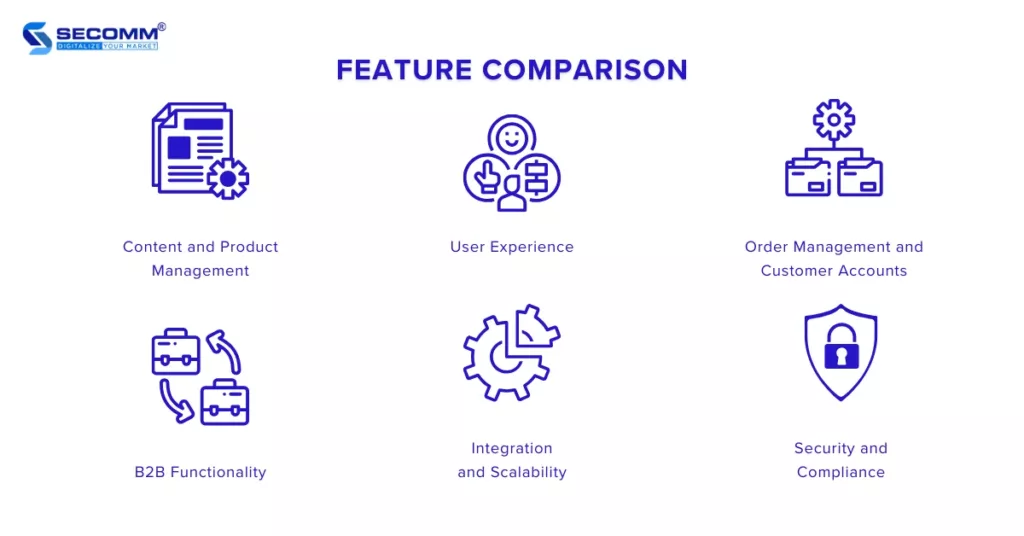
Content and Product Management:
User Experience:
Order Management and Customer Accounts:
B2B Functionality:
Integration and Scalability:
Security and Compliance:
Salesforce Commerce Cloud and Adobe Commerce (Magento) are both powerful eCommerce platforms. However, Salesforce Commerce Cloud is suitable for large enterprises seeking a tightly integrated eCommerce solution with their CRM system.
On the other hand, Adobe Commerce would be a better choice for businesses with high customization needs and a desire for more control over the eCommerce platform.
The selection of the most suitable eCommerce platform for each business will depend heavily on the core needs of the brand.
With deep expertise and the development of complex eCommerce systems for clients such as Changi Airport Group (Singapore), Trentham Estate (Australia), and The Warehouse (Vietnam), SECOMM understands the challenges in choosing a platform and deploying eCommerce that businesses are facing.
Contact SECOMM now or call directly at the hotline number (028 7108 9908) for free advice on the eCommerce website building roadmap!
 2
2
 5,065
5,065
 0
0
 1
1
The jewelry world always holds mystical and captivating beauty. Capitalizing the eCommerce development, many jewelry brands have embraced the opportunity to connect with users worldwide and establish a distinctive presence through their eCommerce websites.
Shopify, renowned for its versatility, is a favored platform for crafting unique and dynamic interfaces and user experiences, captivating millions of jewelry enthusiasts across the globe.
Below is a list of the top 10 most prominent Shopify eCommerce jewelry websites, where creativity meets technological solutions to create unique art pieces that have won the hearts of jewelry enthusiasts everywhere.
Learn more: What opportunities are open to Jewelry eCommerce?
Originating from New York, USA, ANA LUISA is a prominent jewelry brand with a beauty-centric vision, offering unique and elegant jewelry pieces. ANA LUISA carefully selects premium materials such as 14k gold, 925 silver, lab-grown diamonds, and cultured pearls to craft diverse jewelry collections suitable for every style and personality.
By leveraging Shopify, the ANA LUISA jewelry website has streamlined its development process, swiftly bringing products to market.
The website features a simple and elegant design with a white color scheme, well-suited to the accessories and jewelry industry. ANNA LUISA focuses on developing advanced features to provide the best online shopping experience for customers.
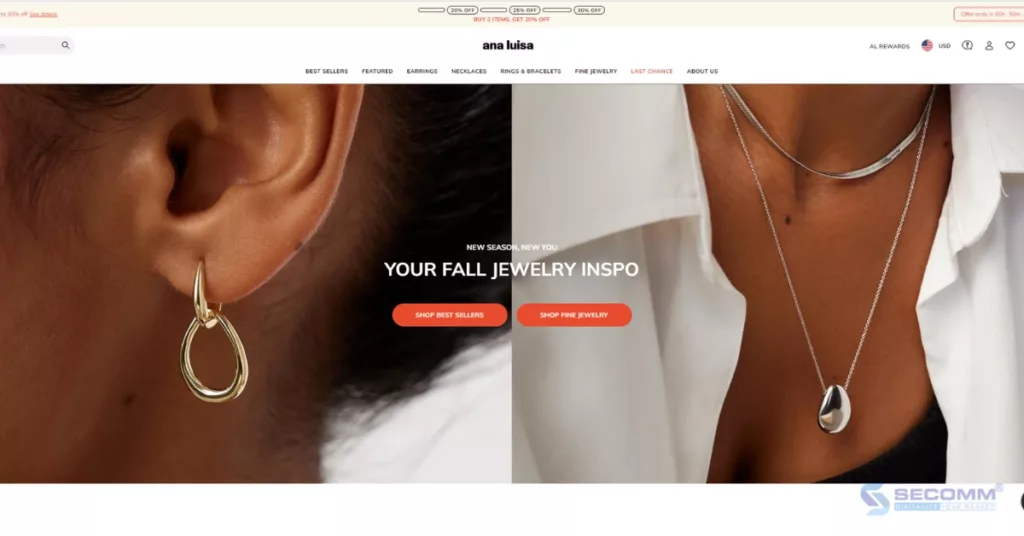
Notable features include Order Tracking by order number and zip code; Quick View of products; Pre-order with notification alerts; Product recommendations based on viewing history, and displaying the quantity of products sold in the last 24 hours.
PD Paola is a famous jewelry brand from Spain, drawing inspiration from the blend of modern and refined designs with classical lines. PD Paola often presents diverse jewelry collections, including necklaces, rings, earrings, and more.
The brand is committed to ensuring sustainability in the production process, making its products beautiful and environmentally friendly.

PD PaolaPD Paola has built a Shopify website to showcase its products to a large potential customer base on the internet. Through the eCommerce website, PD Paola has incorporated several unique features to enhance the online shopping experience, including Image Zoom, Cross-sell product recommendations, and Recently viewed product display.
Or, Product size options, Payment options with credit cards and PayPal, Intelligent search suggestions with popular, recent, and trending keywords, and Scheduling appointments at offline stores.
Learn more: The Journey of Building a Jewelry eCommerce Website
Missoma is a jewelry brand based in London, UK, specializing in gold and silver recycled jewelry with modern, sophisticated, and distinctive designs. The brand features several outstanding jewelry collections, such as Lucy Williams, Harris Reed, Savi, Zenyu, Molten, and many more.
The design of Missoma’s eCommerce website reflects the elegance and minimalism of the jewelry industry. The decision to deploy a Shopify website has brought the ability to integrate diverse and user-friendly third-party apps, providing customers with a more enriching and high-quality shopping experience.

MissomaSome advanced features of Missoma include Diverse payment methods integration, including Buy Now Pay Later with Klarna; Automatic multi-currency feature that converts currencies based on the user’s IP; Product filtering based on material, and size; Integration of The Rewards Stack loyalty program.
Founded by Michael Saiger in 2008, Miansai is a leading American jewelry brand. Miansai specializes in creating simple, elegant, and unique men’s and women’s jewelry, using carefully selected and handcrafted raw materials.
The brand offers various jewelry collections, including necklaces, bracelets, rings, earrings, keychains, and many other accessories.

MiansaiMiansai has also built and developed a Shopify jewelry website to provide customers with industry-specific features, including Product size selection; Filtering and searching for products and collections; Automatic currency conversion based on the user’s IP. Or, Search suggestions; Integration with social media platforms such as Facebook, Pinterest, Instagram.
Astrid & Miyu, a London-based fashion jewelry brand, has long been a familiar name in the international jewelry industry. One of the notable features of Astrid & Miyu is the ability to flexibly combine their jewelry products.
The brand focuses on creating designs that can layer and combine creatively. This allows users to create unique jewelry experiences and express their style.

Astrid & MiyuAstrid & Miyu’s jewelry website is built on the Shopify platform to provide an optimal shopping experience for customers with unique features. Among these features are Zoom product view; Product color options; and In-store product availability check.
Or, Search suggestions; Loyalty points accumulation; Gift options; Payment options (Amazon Pay, Shop Pay, Google Pay); and Scheduling appointments at any store.
QALO is a special jewelry brand that focuses on producing silicone rings, especially those that combine a variety of designs and purposes. The name “QALO” stands for “Quality, Athletics, Love, Outdoors,” indicating that the brand emphasizes quality, athletic features, family love, and readiness for outdoor adventures.
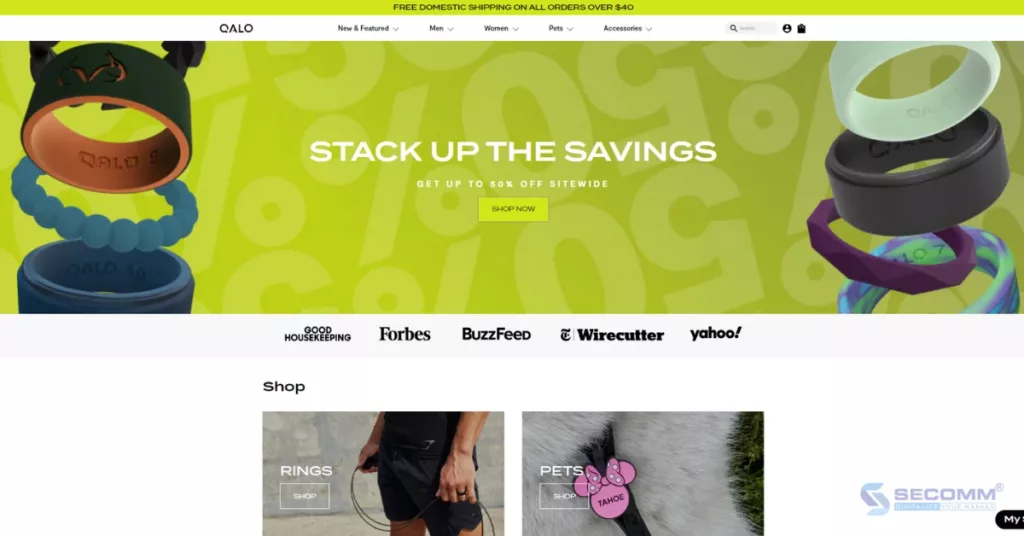
QALOQALO also built their eCommerce website with Shopify, a platform chosen by many leading jewelry brands. Some unique features of the QALO jewelry website include displaying products by category, showcasing popular products, color and size options for products, and the option of Buy Now Pay Later (BNPL) with Shop Pay.
Additionally, QALO allows order tracking, reviewing product viewing history, and shopping on “My Shop.”
Daisy Jewellery is a famous jewelry brand with origins in the United Kingdom. The brand stands out with unique jewelry designs that often incorporate natural elements, honoring the natural beauty of flowers, leaves, and gemstones.
Daisy Jewellery focuses on using natural gemstones, including rose quartz, pearls, and sunstone. Their products are often made from sterling silver 925 or thin layers of gold, ensuring quality and durability.
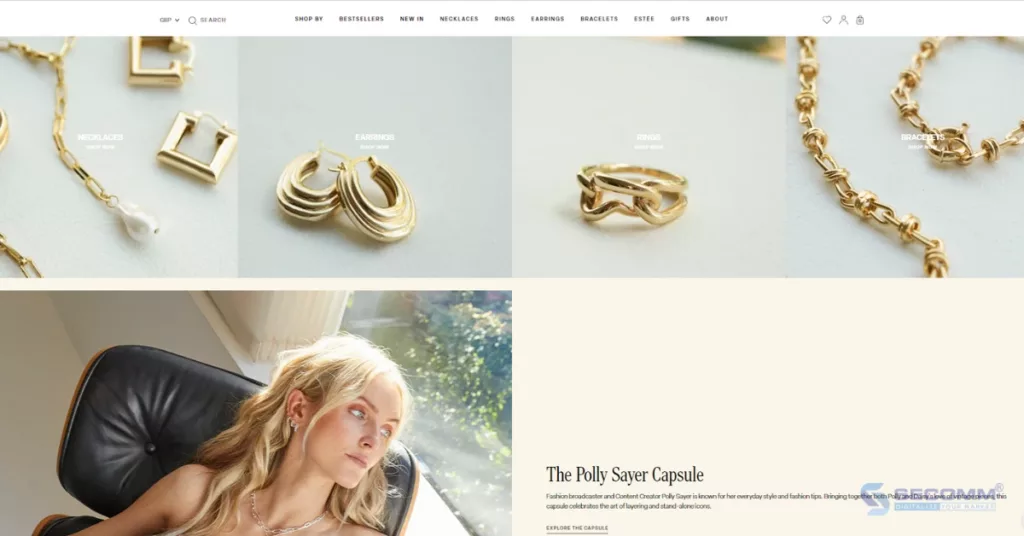
Daisy JewelleryThe brand has implemented Shopify to enhance its online presence. Daisy Jewellery’s eCommerce website provides users with a unique shopping experience, featuring outstanding features such as displaying product images and videos, size, and material options (Gold or Silver).
Or, showing product recommendations on the product and cart pages, displaying product reviews, payment options with Shop Pay, PayPal, Google Pay, Klarna, packaging options, gift order options, and automatic international shipping fees.
STONE AND STRAND is a jewelry brand established in 2013 in the United States. STONE AND STRAND offers a range of jewelry products, including rings, necklaces, earrings, and various other jewelry designs. All products are meticulously designed with exquisite details, reflecting the brand’s creative vision.

STONE AND STRAND Shopify websiteLike many jewelry brands worldwide, STONE AND STRAND has implemented Shopify for its eCommerce website. The website features an easy-to-navigate product catalog and search functionality, along with order tracking via email and integration of multiple payment methods, including Buy Now Pay Later with Affirm.
Shashi is a fashion jewelry brand founded in 2009 by founder Shashi Singapuri.
Based in New York, the brand is renowned for its unique, innovative, and stylish jewelry products. Shashi creates various types of jewelry, including necklaces, bracelets, earrings, and rings. Vibrant color palettes and distinctive details are highlights of Shashi’s products.

Shashi jewelry websiteThe interface of Shashi’s Shopify eCommerce website features a minimalist style, focusing on showcasing its best-selling and newly launched products. Additionally, the website provides prominent features to enrich the shopping experience for customers.
Some features of Shashi’s jewelry website include color and size options for products, a quick view of the shopping cart, automatic currency conversion based on the user’s IP, and payment options such as Shop Pay and Amazon Pay.
V by Laura Vann is a jewelry brand based in the United Kingdom. Founded by the talented jewelry designer Laura Vann, the brand showcases a creative vision and in-depth knowledge of the jewelry industry. With her innovative vision, Laura Vann has crafted a series of unique and beautiful jewelry designs.

V By Laura Vann’s websiteThe brand’s jewelry website has long been deployed on Shopify to provide customers with an optimal shopping experience, offering various outstanding features through integrations.
Among these features, notable ones include payment options such as Shop Pay (Shopify), Google Pay, credit cards, or BNPL with Klarna; packaging options; and custom designs for jewelry and wedding jewelry.
Above are the top 10 jewelry websites that have made a mark on jewelry enthusiasts worldwide through the implementation of Shopify.
It is evident that owning an optimized eCommerce website not only helps jewelry businesses stand out on the internet but also opens up endless business opportunities. Shopify proves to be a suitable platform for businesses to achieve this quickly.
Learn more: 5 eCommerce platforms for building Jewelry websites
With a dedicated and experienced team, SECOMM can accompany businesses in deploying an outstanding Shopify jewelry website.
Contact SECOMM or call directly at our hotline (028 7108 9908) to embark on the eCommerce journey for jewelry with Shopify today and seize the opportunity to bring your brand and products to millions of potential customers globally.
 3
3
 10,942
10,942
 0
0
 1
1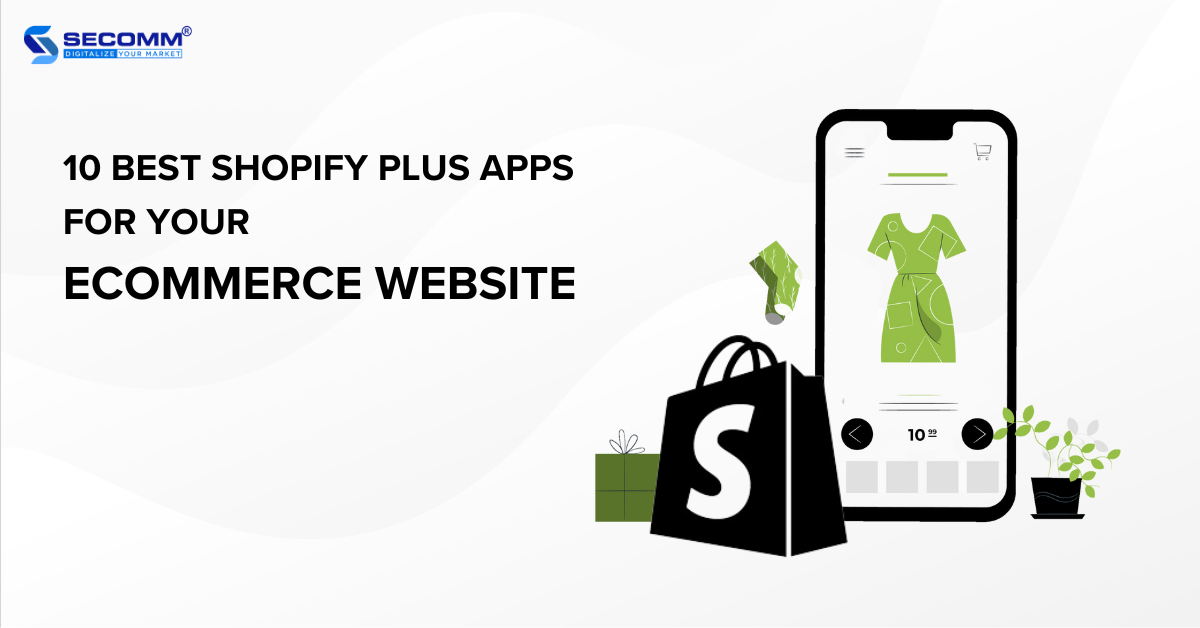
The Shopify Plus eCommerce platform is known not only for its flexibility and high customization but also for its ability to integrate with a variety of apps in the Shopify Plus Certified App, optimizing customer experiences, managing sales, shipping, etc.
The eCommerce world continues to evolve, and choosing the right integrated apps can be a crucial factor in the successful deployment of an eCommerce website.
This article introduces 10 Shopify Plus apps that businesses should consider integrating into their eCommerce websites. These apps not only help optimize operational processes but also ensure that businesses meet all customer needs, create effective campaigns, and increase conversion rates.
Shopify Plus is the premium version of Shopify, offering superior customization and scalability designed to meet the needs of large-scale businesses. Shopify Plus apps are third-party applications or services integrated with the Shopify Plus system to provide management capabilities for various aspects of eCommerce operations, such as marketing, sales, order and shipping management, analytics, and performance reporting.
Using Shopify Plus apps can bring various benefits to businesses, including:
Judge.me is an excellent app designed for businesses using the Shopify Plus platform. This app focuses on collecting, managing, and displaying product reviews and ratings from customers.
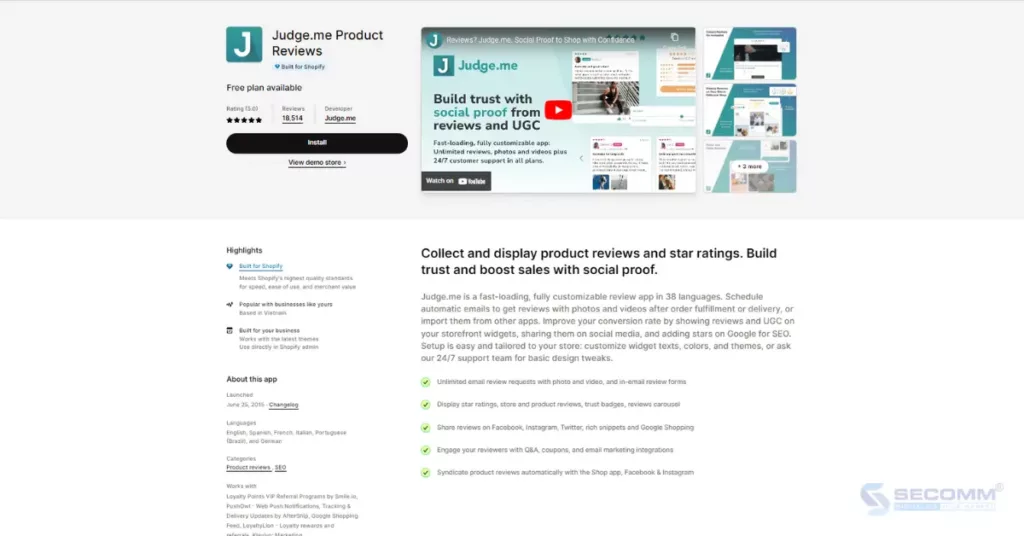
Rating: 5/5
Reviews: 18,391
Core features:
Price: The Judge.me app offers two available solution plans, including:
UpPromote is a Shopify Plus app tailored to meet the needs of affiliate-driven growth for Shopify merchants. This is the top-trusted affiliate marketing solution that supports merchants to build, manage, and succeed in their affiliate programs with ease. UpPromote is suitable for all business sizes, with prices ranging from FREE to $199.99/ month. Furthermore, UpPromote implements customization upon request for Enterprise customers.
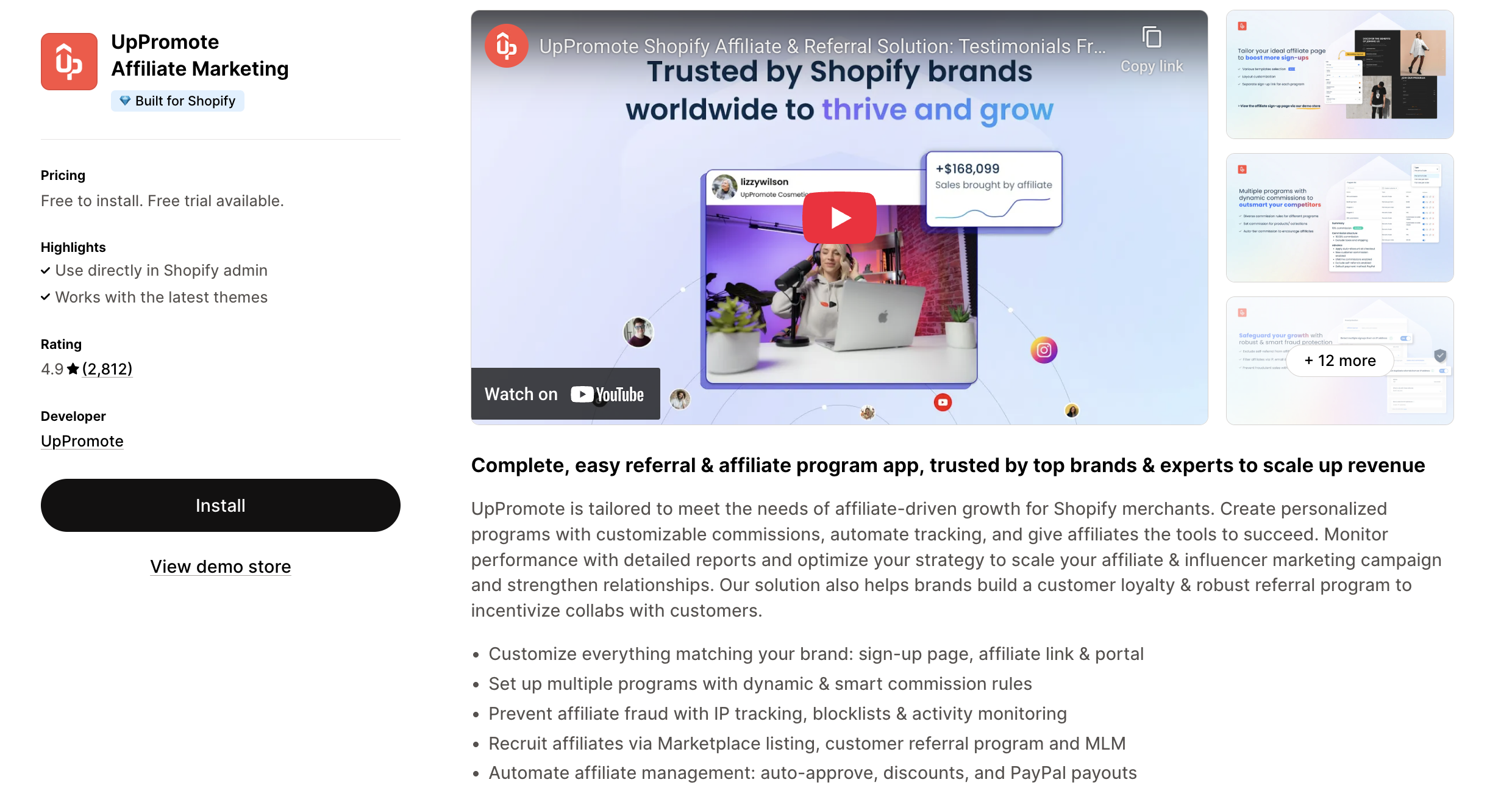
Rating: 4.9/5
Reviews: 2,812
Core features:
Price: UpPromote offers a Free plan and 3 paid plans with a 14-day free trial, including:
This is a Shopify Plus app that allows businesses to design personalized customer experiences. This app ensures that the business website provides suggestions and offers products that customers truly care about to satisfy them and thereby increase sales.
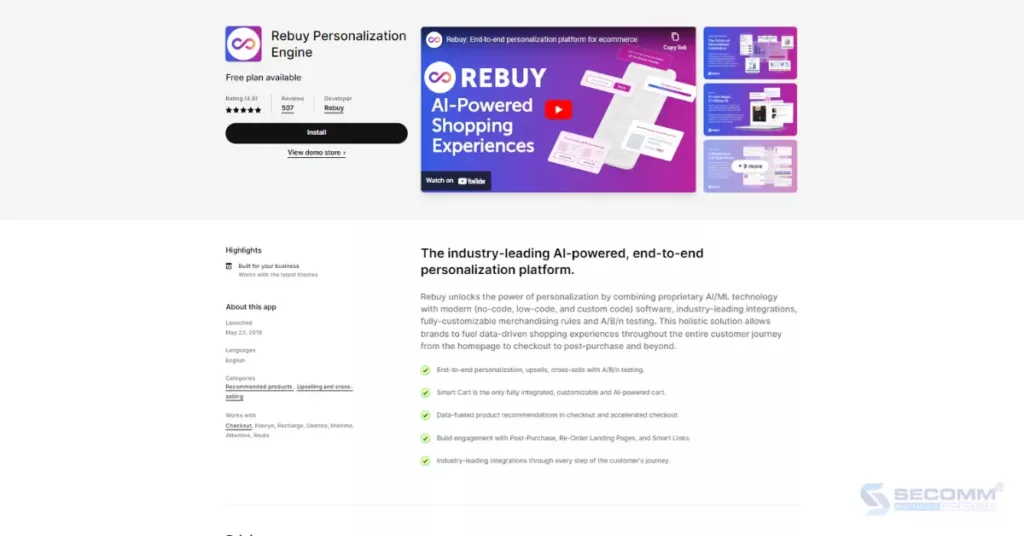
Rating: 4.9/5
Reviews: 508
Core features:
Price: Rebuy offers Shopify Plus users three solution plans, including:
Among the Shopify Plus apps recommended for eCommerce websites, Smile is frequently mentioned for its Loyalty program applications. This Shopify Plus app helps businesses build and manage customer loyalty programs on Shopify Plus stores to enhance customer interactions, increase conversion rates, and attract potential customers.
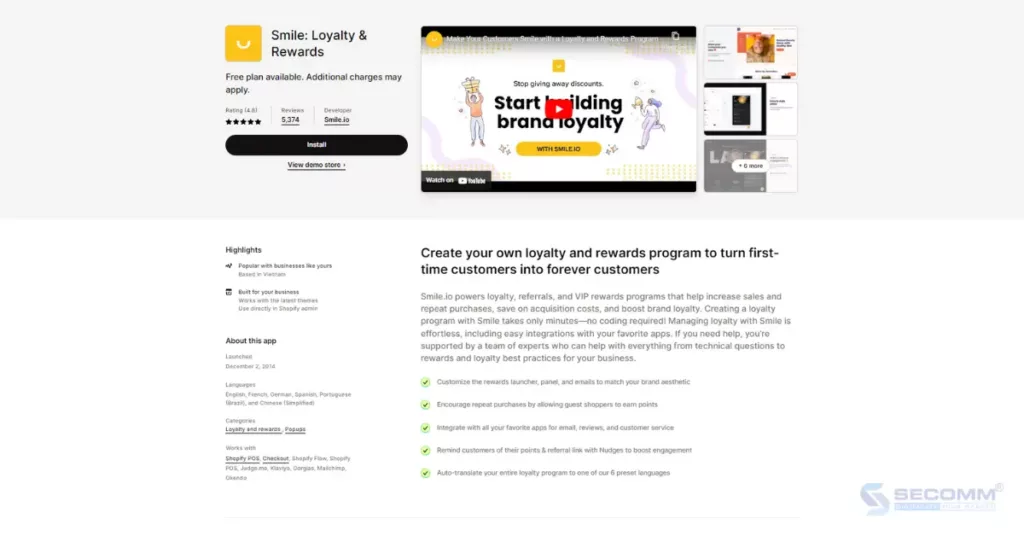
Rating: 4.8/5
Reviews: 5,354
Core features:
Price: Smile offers three solution plans:
Another popular Shopify Plus app is the Shogun Landing Page Builder. This app allows retailers to create beautiful and effective landing pages by providing a visual drag-and-drop editor, enabling Shopify Plus merchants to create custom landing pages without requiring any programming skills.
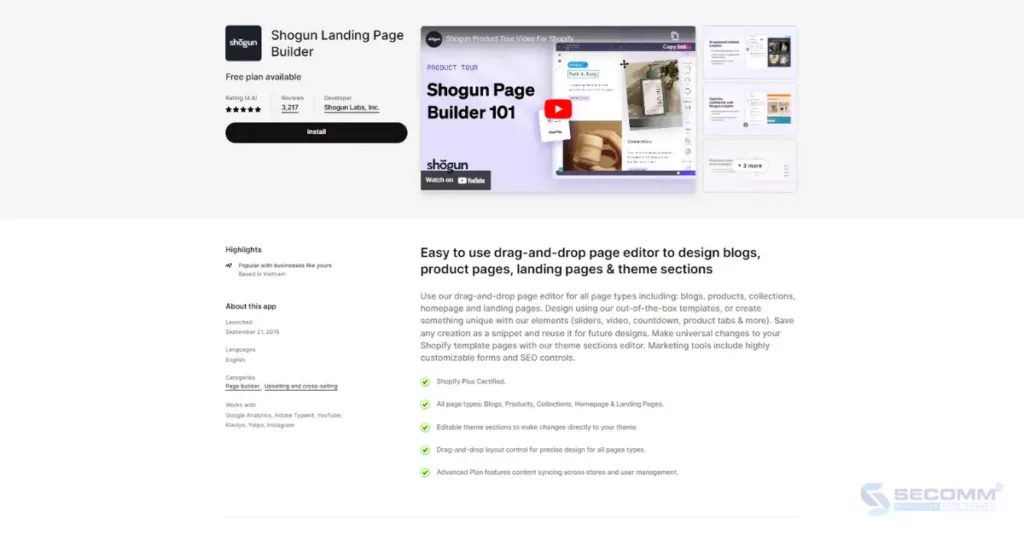
Rating: 4.8/5
Reviews: 3,216
Core features:
Price: Shogun offers four solution plans for Shopify Plus businesses:
Referral is a Shopify Plus app that allows merchants to create and manage referral and affiliate programs. This Shopify Plus app offers a range of features and options to help businesses encourage customers and influencers to refer to their products or services.
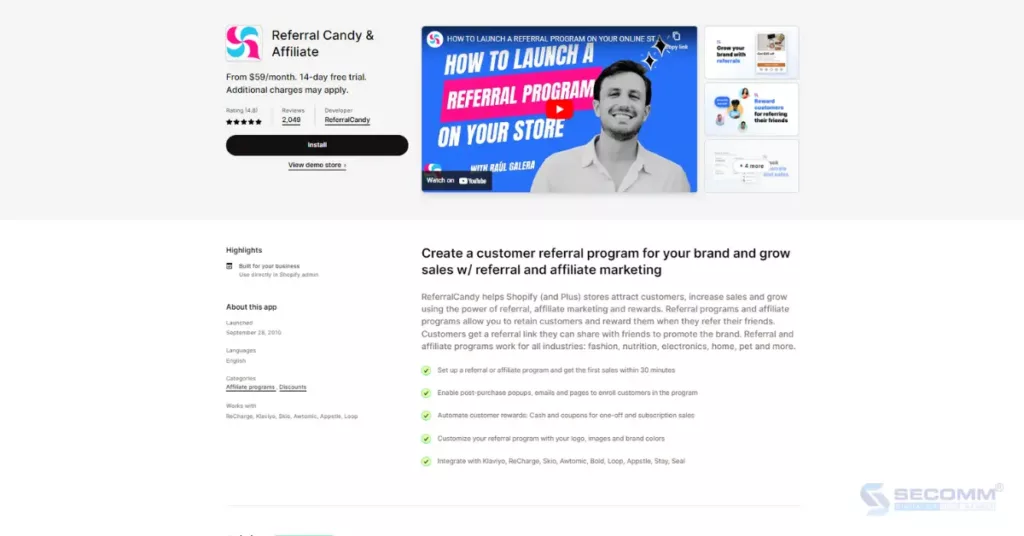
Rating: 4.8/5
Reviews: 2,049
Core features:
Price: Referral offers two solution plans with a 14-day free trial:
AfterShip Returns by Shopify Plus is an optimal solution for businesses seeking to improve the return experience and enhance customer loyalty. The app provides many user-friendly features and options, allowing businesses to automate the return and refund processes and optimize inventory costs.
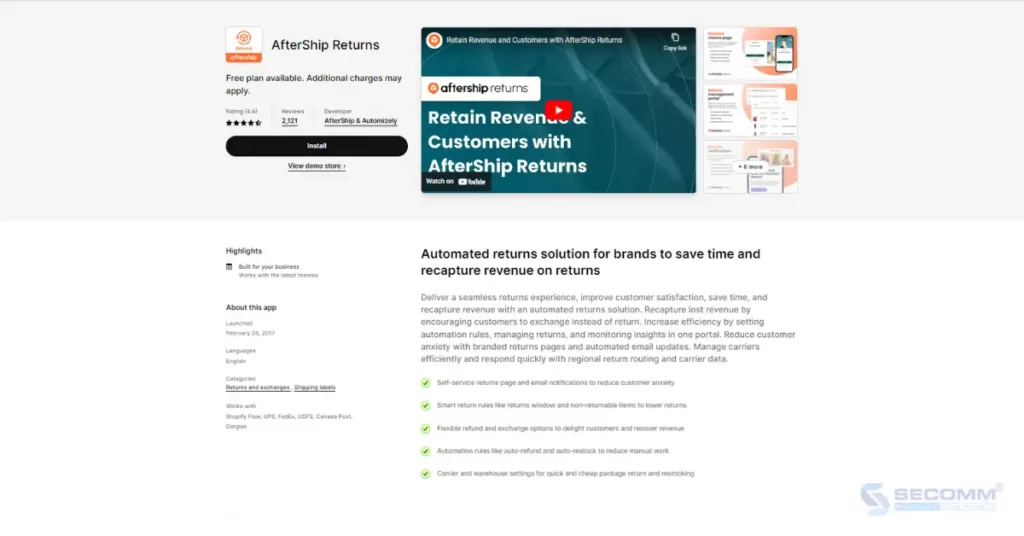
Rating: 4.6/5
Reviews: 2,118
Core features:
Price: AfterShip offers three solution plans for Shopify Plus businesses:
Recharge Subscription is a popular Shopify Plus app that enables businesses to build a seamless shopping journey to maximize revenue and create long-term loyal customers.
With Recharge’s outstanding features, businesses can easily, quickly, and effectively create subscription plans for products or services.
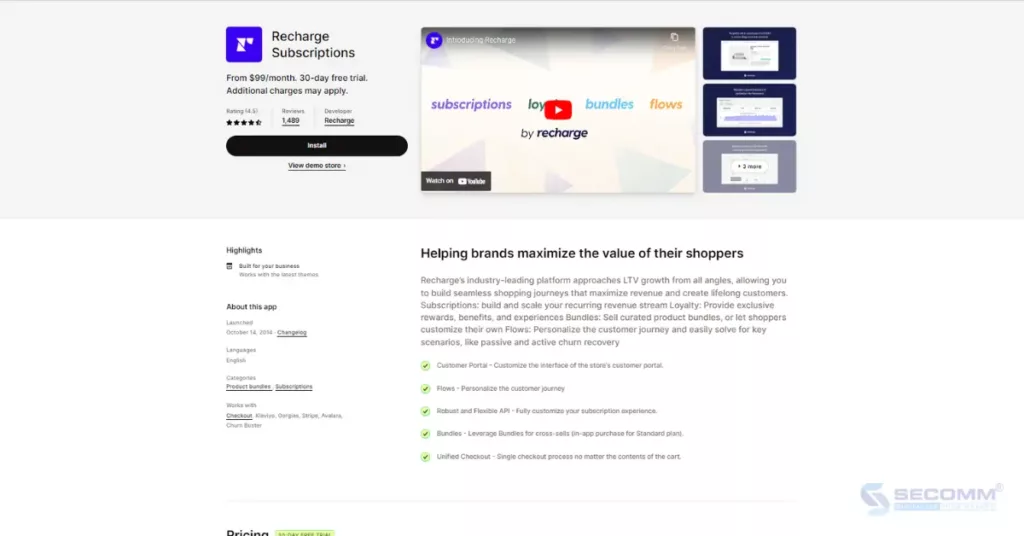
Rating: 4.5/5
Reviews: 1,488
Core features:
Price: Recharge offers a 30-day free trial for businesses.
Gorgias is an app designed for Shopify Plus businesses, focusing on customer service management and online support. Deeply integrated into the Shopify Plus store, Gorgias provides a range of features to help businesses optimize support processes and enhance the customer experience.
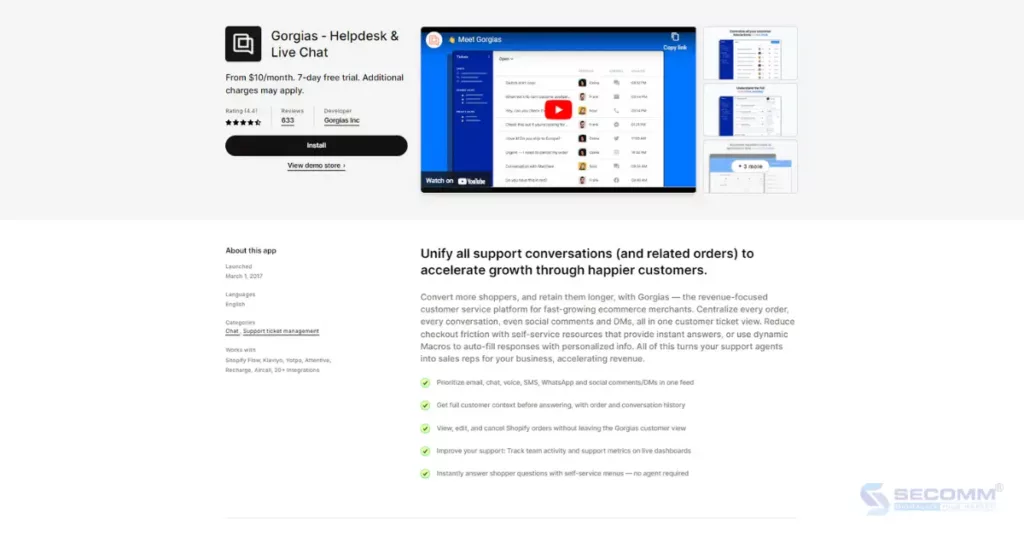
Rating: 4.4/5
Reviews: 632
Core features:
Price: Gorgias offers a 7-day free trial with four solution plans.
Among the Shopify Plus apps, Klaviyo stands out as an application specializing in automated email & SMS marketing. This app helps businesses build and manage automated email or SMS campaigns based on customer data to optimize interactions with customers.
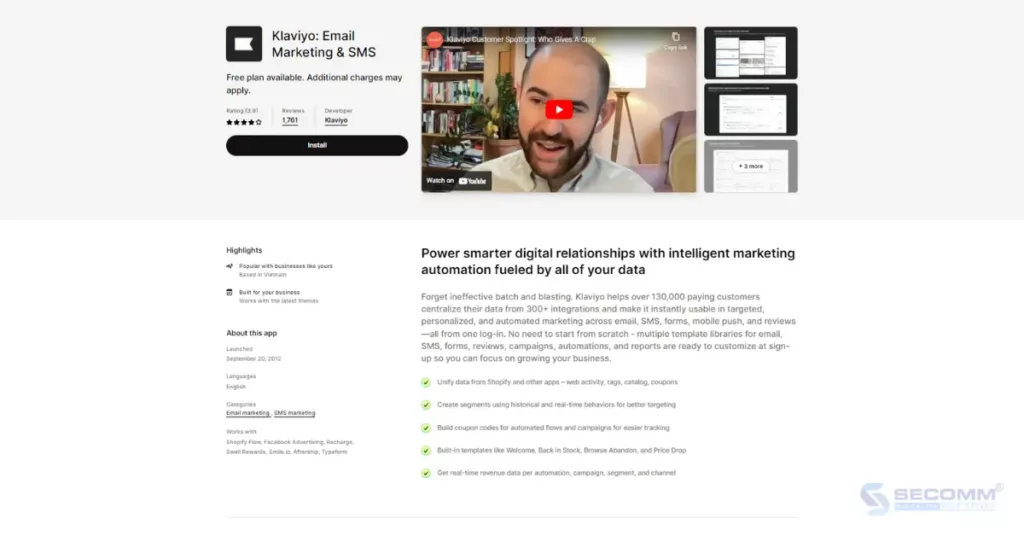
Rating: 3.9/5
Reviews: 1,758
Core features:
Price: Klaviyo offers three solution plans for businesses.
ShipStation is a popular application for managing shipping and delivery processes, integrated into the app store of Shopify Plus. This app helps businesses efficiently manage shipping and delivery processes, optimize label printing, and expedite delivery times.
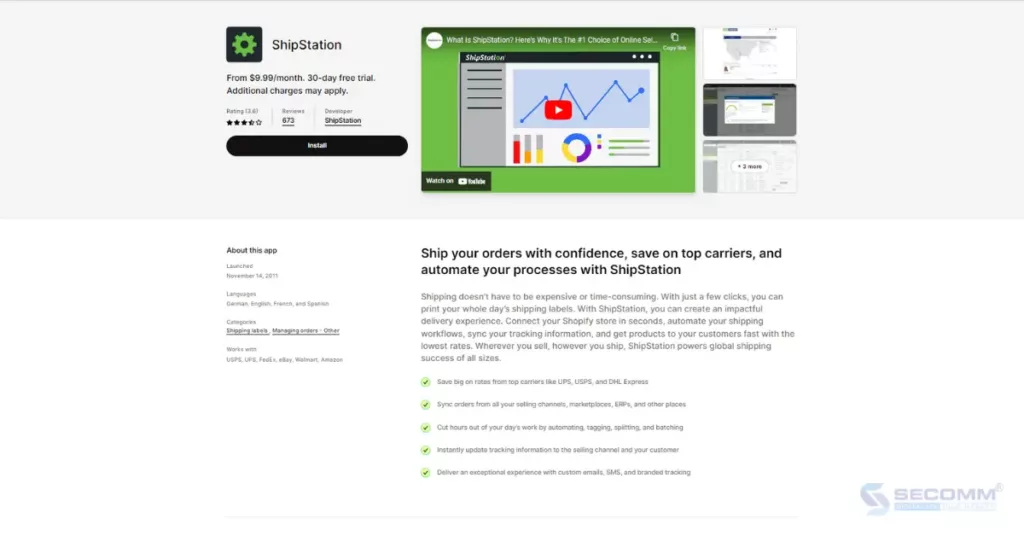
Rating: 3.6/5
Reviews: 674
Core features:
Price: ShipStation offers a 30-day free trial for businesses.
Above are the top 10 Shopify Plus apps in the Shopify Plus Certified App Store. The introduced apps in this article are designed to help businesses optimize the shopping experience, improve sales management, and create more effective marketing campaigns.
However, not all of them may be suitable for every business. Businesses must research and carefully consider before deciding to install and integrate these Shopify Plus apps.
Contact or call SECOMM directly at their hotline (028 7108 9908) for advice on selecting the most suitable apps for your Shopify Plus eCommerce website.
 2
2
 8,184
8,184
 0
0
 1
1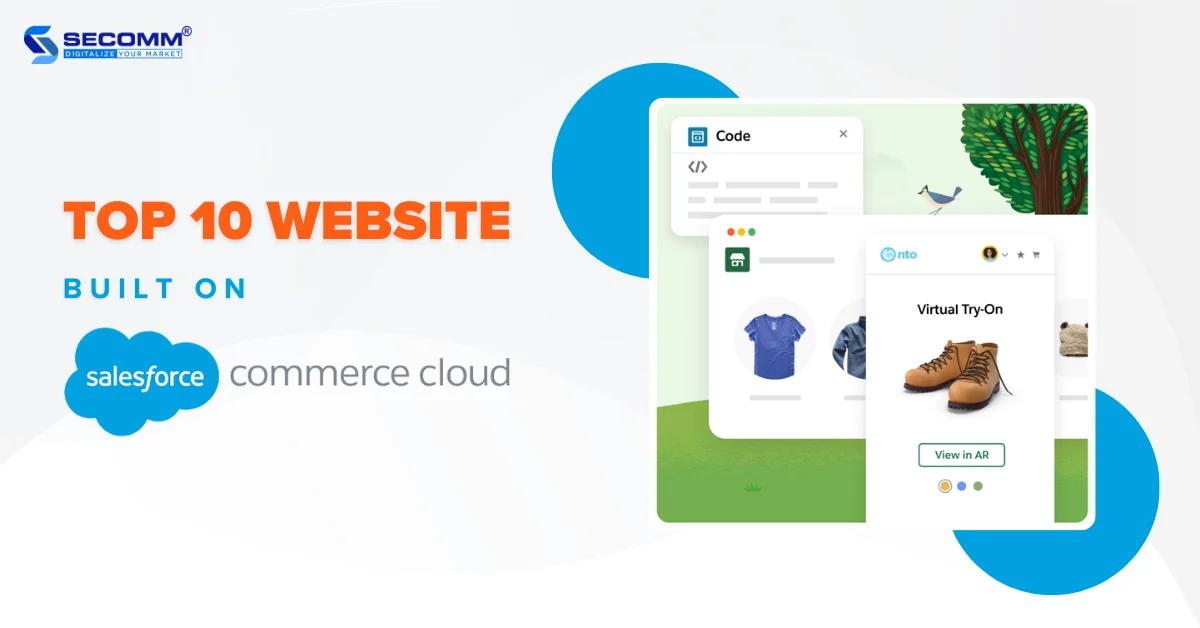
Salesforce Commerce Cloud is a scalable cloud-based eCommerce platform that enables brands to meet growing business demands.
Below is a list of the top 10 websites currently using Salesforce Commerce Cloud for reference by businesses.
Cotton:On is a well-known fashion brand from Australia, established in 1991. This brand specializes in youthful and dynamic fashion products suitable for the younger generation, including clothing for men, women, children, accessories, and travel items.
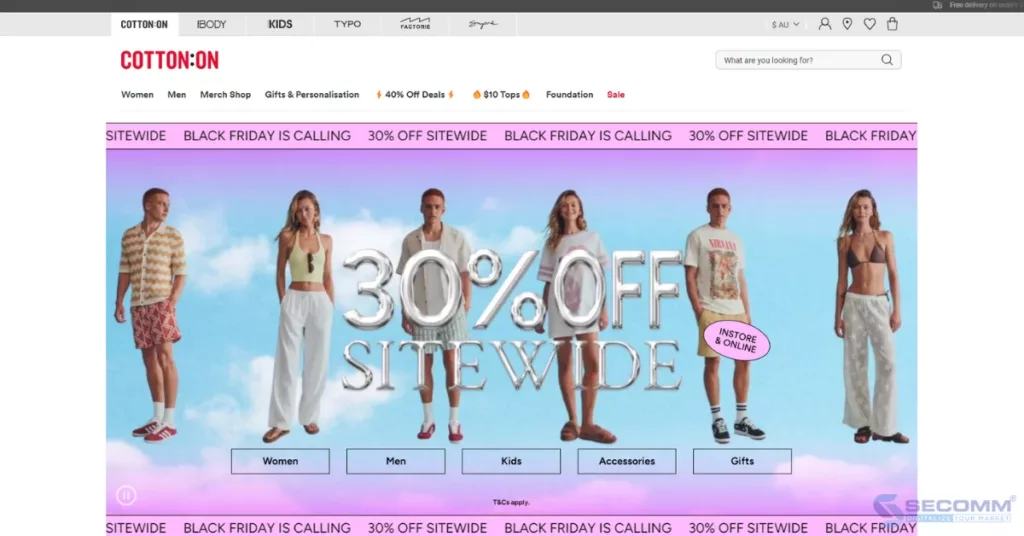
When using Salesforce Commerce Cloud, Cotton:On quickly built a multi-channel eCommerce website and activated 10 different websites globally within just 12 months.
“Salesforce has helped us scale our multi-channel capability and meet demand for more personal journeys” – Brendan Sweeney, General Manager, Cotton:On Group.
Versace is a luxury fashion brand from Italy, founded in 1978 by Gianni Versace. The brand specializes in high-end fashion products, including clothing, footwear, accessories, furniture, and fragrances.

Salesforce Commerce Cloud has helped Versace create an optimized user experience for its eCommerce website, making it easy for customers to search, shop, and make payments. The website is designed to be simple, user-friendly, and suitable for the brand’s upscale customer base.
Bvlgari is a luxury fashion brand from Italy that has used Salesforce Commerce Cloud to build its eCommerce website. This website is designed to provide an enhanced personalized shopping experience for Bvlgari’s customers.

Bvlgari has developed personalized product features that allow customers to create their own profiles and store information about their shopping preferences, purchase history, and delivery addresses. This feature helps Bvlgari better understand customer needs and provide them with personalized product recommendations and services.
Samsonite is a multinational manufacturer of luggage and travel accessories based in the United States. The company was founded in 1910 by Jesse Shwayder in Denver, Colorado, USA. Since then, Samsonite has become one of the world’s largest luggage manufacturers, with products sold in over 120 countries.
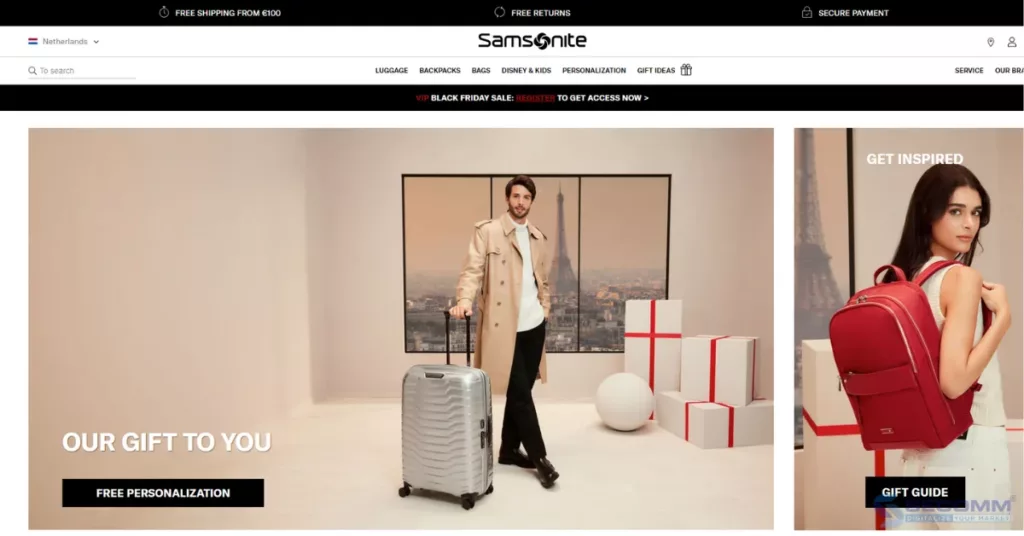
Samsonite has implemented Salesforce Commerce Cloud to enhance user experience, increase online sales, and analyze customer shopping behaviour.
Callaway Golf is an American golf equipment manufacturing company established in 1982 by Ely Callaway. The company specializes in designing, manufacturing, marketing, and selling golf equipment, specifically clubs and balls, as well as accessories like bags, gloves, and hats.
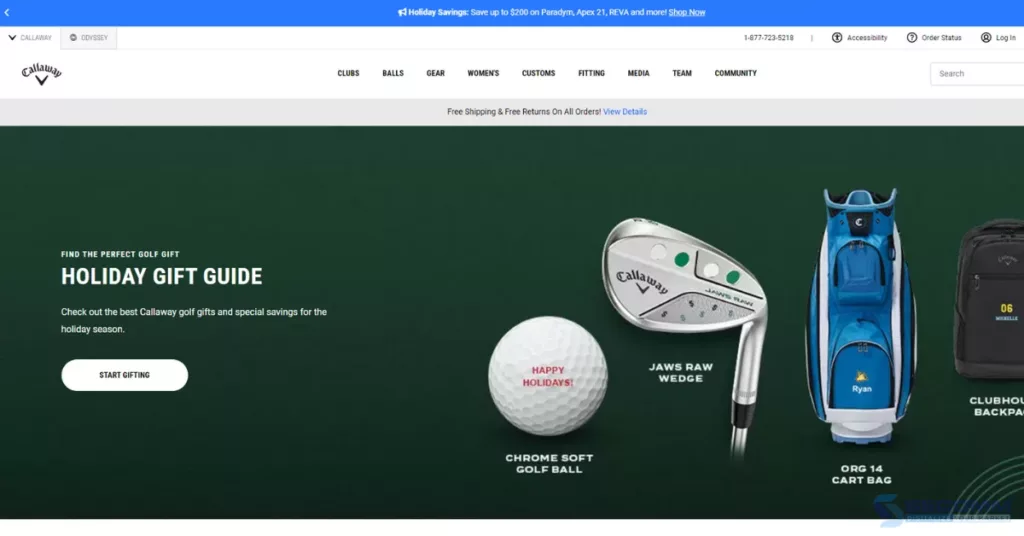
Callaway Golf has utilized the product filtering feature of Salesforce Commerce Cloud to help customers easily find products based on their needs. The brand has also employed the product recommendation feature to assist customers in discovering new products.
ECCO started as a multinational footwear business based in Denmark, founded in 1963 by Karl Toosbuy. The company specializes in designing, manufacturing, and selling shoes, bags, and other fashion accessories.
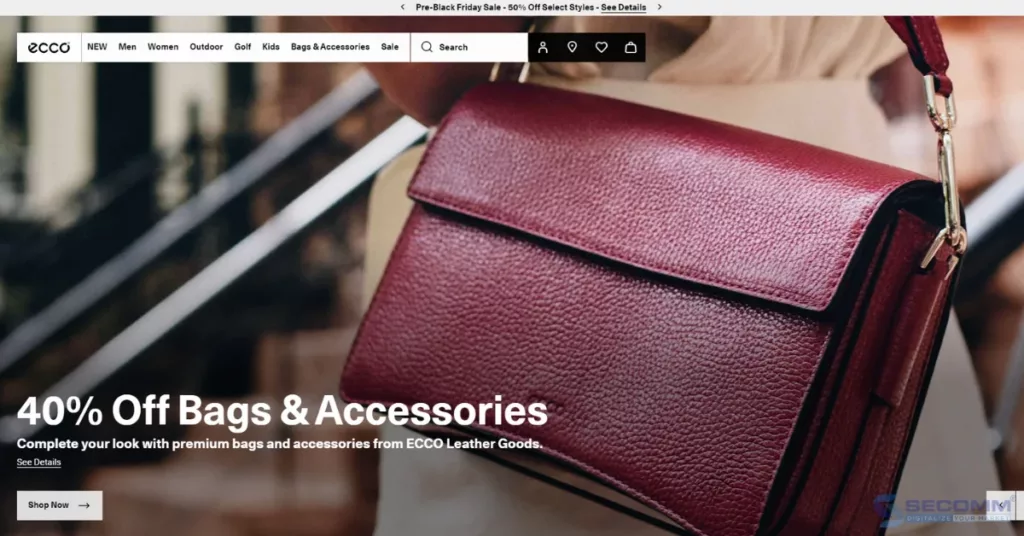
In early 2015, ECCO USA began testing the Endless Aisle, a supplementary feature of Salesforce B2C Commerce, along with other functionalities. This feature helps prevent lost sales by allowing collaborators to place orders based on online inventory.
Jimmy Choo is a luxury fashion brand from the United Kingdom specializing in shoes, handbags, accessories, and fragrances. The company was founded in 1996 by Malaysian-born haute couture shoe designer Jimmy Choo and British Vogue accessories editor Tamara Mellon.

Salesforce Commerce Cloud has helped Jimmy Choo enhance user experience, increase online sales, and analyze customer shopping behaviour. The brand has successfully leveraged Salesforce Commerce Cloud to drive the brand’s growth.
Brunello Cucinelli is a luxury fashion brand from Italy founded in 1978 by Brunello Cucinelli. The company is known for its cashmere sweaters, tailored suits, and other high-end fashion items.
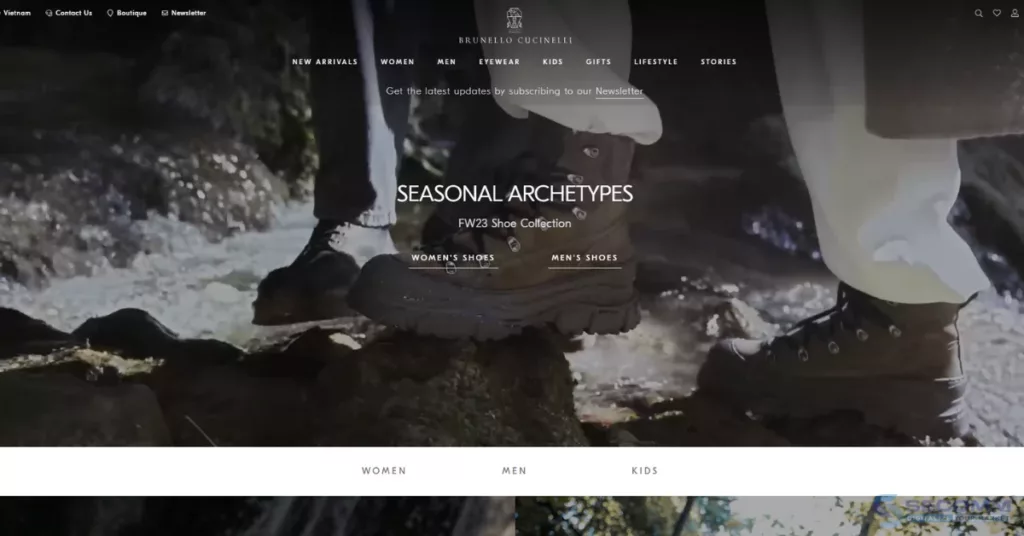
Brunello Cucinelli has utilized Salesforce Commerce Cloud to build an eCommerce website with features supporting user experience and boosting online sales.
GODIVA is a premium chocolate brand from Belgium, established in 1926 by Pierre Draps. The company specializes in high-quality chocolate made from the finest ingredients and crafted using traditional methods.

Salesforce Commerce Cloud has helped GODIVA analyze customer shopping behaviour. This data is utilized to enhance the customer shopping experience, develop new products and services, and optimize marketing strategies.
Toys”R”Us is a leading retailer of toys, games, entertainment, and educational products in Asia. Headquartered in Hong Kong, the company operates over 470 stores with more than 10,000 members across Asia, including Brunei, China, Hong Kong, Macau, Taiwan, Japan, Malaysia, Singapore, the Philippines, and Thailand.
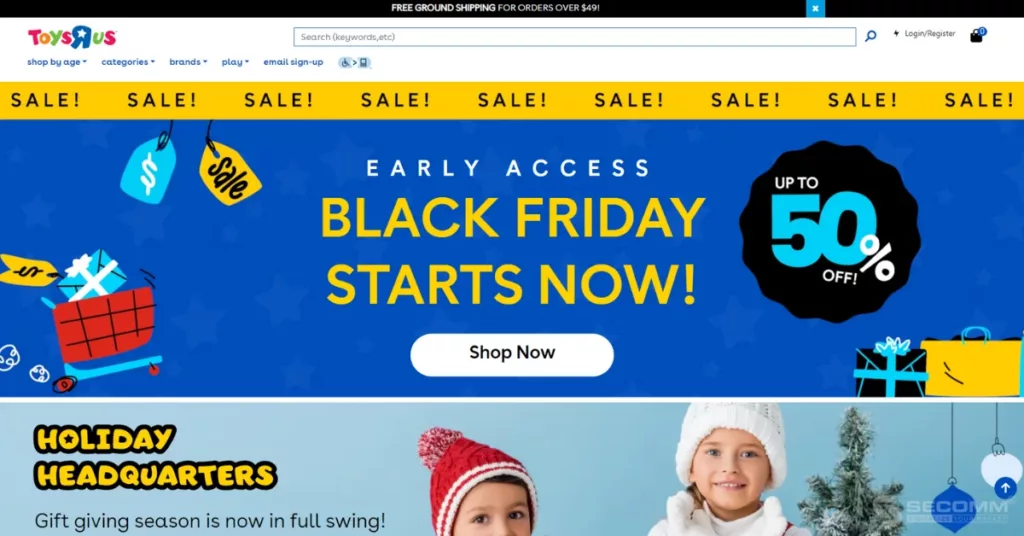
Tim Halaska, Regional Manager for Digital Strategy at Toys”R”Us Asia, acknowledges that traditional stores will always have a certain place in the company. However, COVID-19 and changes in consumer preferences have led to a more significant focus on eCommerce.
The Salesforce Commerce Cloud solution has helped Toys”R”Us streamline online sales and provide a unified experience that caters to consumer needs across Asia.
“Our challenge now is to capture the magic of that in-store experience and bring it online.” – Tim Halaska, Regional General Manager Of Digital Strategy, Toy”R”Us Asia.
Above are the top 10 websites built by Salesforce Commerce Cloud that have achieved success in both brand recognition and revenue. This success serves as inspiration for other businesses seeking the most suitable solutions to compete in the market.
With deep expertise and the development of complex eCommerce systems for clients such as Changi Airport Group (Singapore), Trentham Estate (Australia), and The Warehouse (Vietnam), SECOMM understands the challenges in choosing a platform and deploying eCommerce that businesses are facing.
Contact SECOMM now or call directly at the hotline number (028 7108 9908) for free advice on the eCommerce website building roadmap!
 2
2
 8,739
8,739
 0
0
 1
1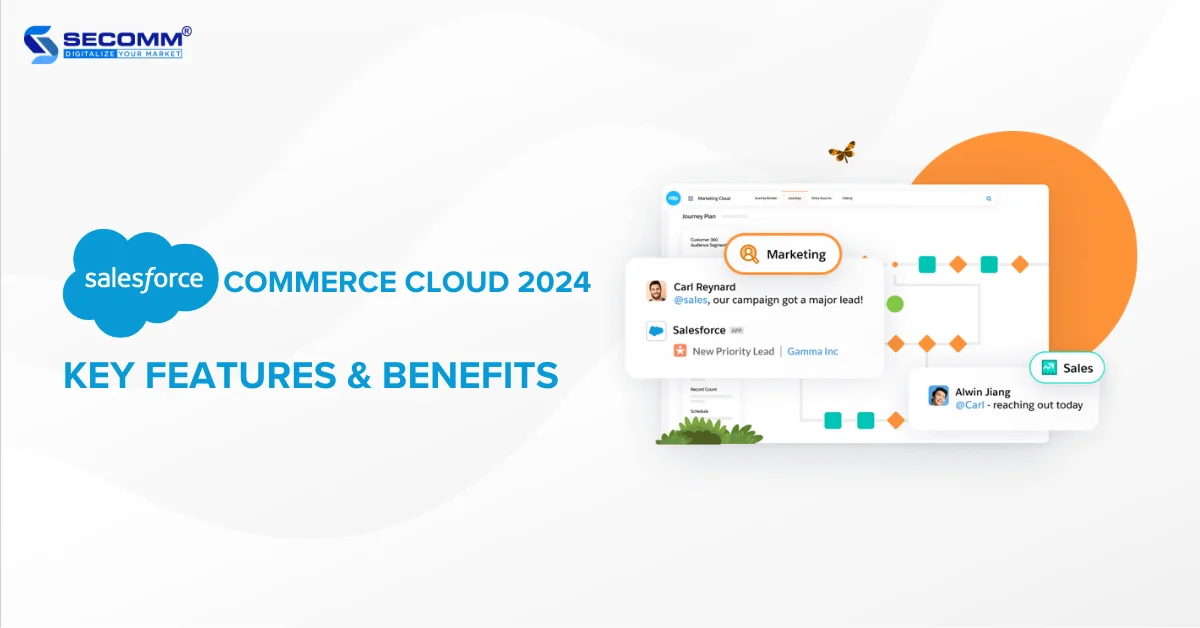
According to Builtwith, Salesforce Commerce Cloud is a platform used by over 12,000 eCommerce websites worldwide. This number has consistently increased over the years, reflecting the platform’s growing popularity.
Here is an analysis of the number of websites using Salesforce Commerce Cloud in different regions:
The United States is the largest country, with over 2,106 websites utilizing this platform.
Salesforce Commerce Cloud is a cloud-based eCommerce platform that helps businesses drive online sales and large enterprises.
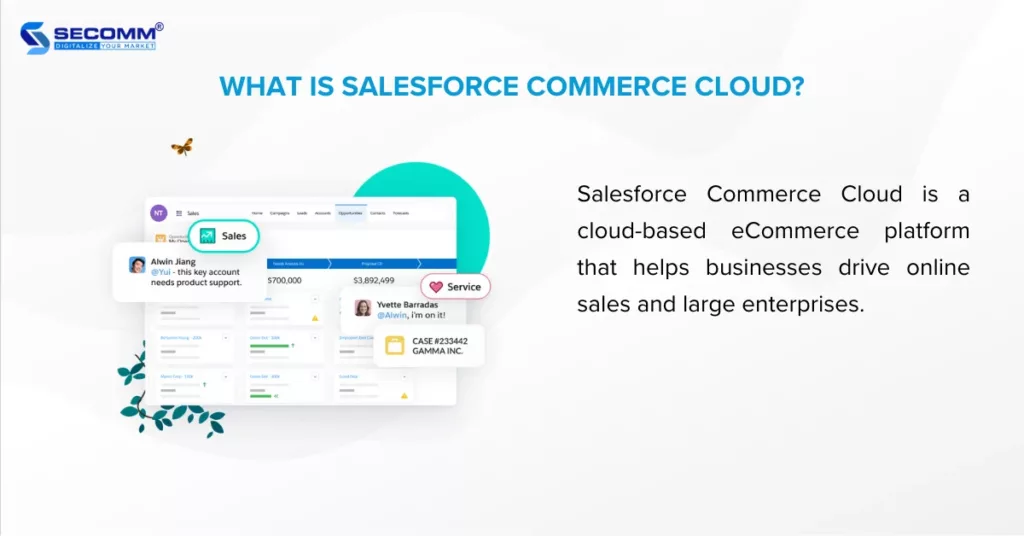
This platform provides a comprehensive set of tools to manage every aspect of eCommerce business, from product catalogue management and order fulfilment to marketing and customer service.
All static content (JS, CSS, and images) is distributed through CDN and eCDN (Embedded Content Delivery Network). Additionally, the platform can be configured to use external CDNs through the capabilities of the native platform. This ensures that platform resources are not consumed for static content. The remaining information and data will be handled by Salesforce servers. Data centres are distributed globally, placing them physically closer to end users.
In terms of structure, in such data centres, Salesforce can maintain multiple PODs (Point of Delivery). PODs allow for sharing and providing additional resources to stakeholders if there is a sudden surge in demand for those resources. PODs include firewalls, switches, load balancers, computing power, and file systems.
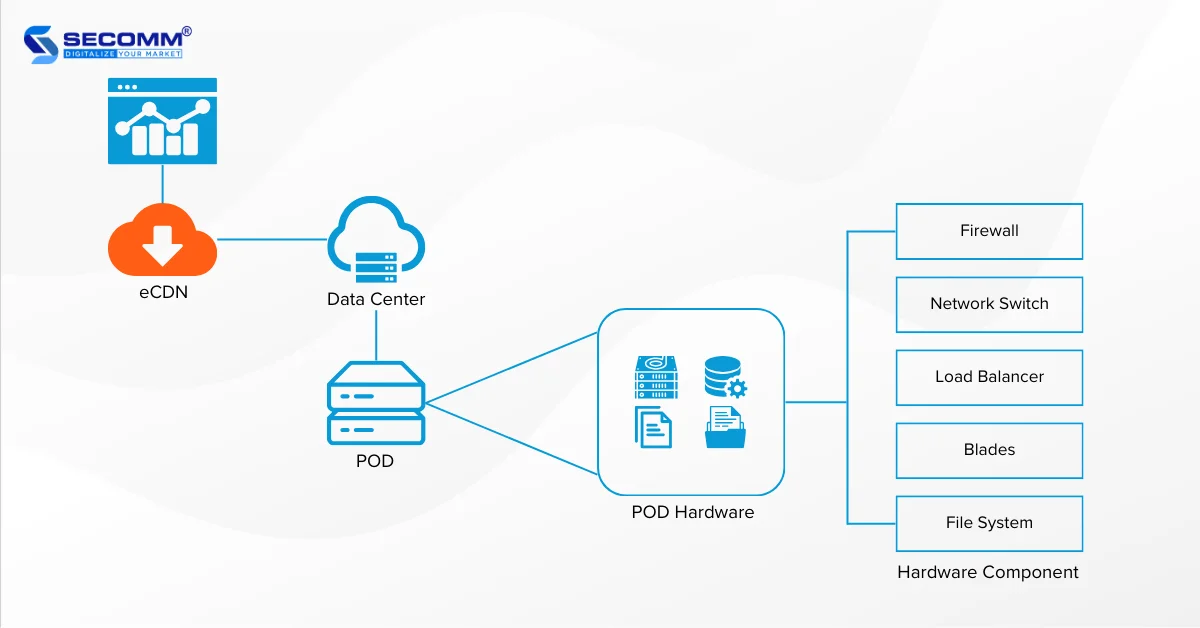
Salesforce Commerce Cloud has two main versions for building eCommerce websites: Salesforce B2C Commerce and Salesforce B2B Commerce, and more recently, B2B2C.
For the B2C model, it is further divided into three solution packages, including:

Similarly, the B2B model is divided into two solution packages, including:

For the B2B2C model, it will be calculated based on 1% Gross Merchandise Value.
Salesforce Commerce Cloud provides a range of powerful features to help businesses grow their eCommerce ventures, including:
Salesforce Commerce Cloud is one of the rare platforms that supports Headless Commerce by integrating with popular technologies and frameworks such as React, Angular, and Vue.js. This enables businesses to develop custom user interfaces tailored to the specific needs of the brand.
Related article:
In mid-2023, Salesforce introduced two new-generation AI products, including Marketing GPT and Commerce GPT, at the company’s Connections conference.
Marketing GPT and Commerce GPT empowers Salesforce’s Marketing Cloud and Commerce Cloud, allowing businesses to eliminate repetitive tasks, save time in their workflows, and deliver personalized campaigns and shopping experiences on a large scale.
With Marketing GPT, businesses can automatically generate more personalized emails and create smarter audience segments. With Commerce GPT, brands can provide personalized shopping experiences and customized promotions tailored to customer needs, utilizing the dynamic shopping journey provided by GPT.
Salesforce Commerce Cloud supports Omnichannel, meaning you can provide a seamless shopping experience across all channels, including websites, mobile apps, social media platforms (Facebook, Instagram, Zalo, etc), and eCommerce marketplaces (TikTok Shop, Shopee, Lazada, Sendo, etc).
This allows businesses to easily sell on multiple channels without the need to build and maintain separate solutions for each channel.
Salesforce Commerce Cloud is built on a cloud platform, making it easy for businesses to scale their eCommerce operations without worrying about investing in hardware and software. Salesforce Commerce Cloud also provides features and tools to help businesses efficiently manage traffic and performance, ensuring a seamless shopping experience for customers.
Salesforce Commerce Cloud is utilized by numerous large retailers and B2B enterprises worldwide to create and manage eCommerce websites, reaching a wider customer base.
Hugo Boss is one of the world’s leading premium fashion brands from Germany, established in 1924, with a widespread retail network including stores, distributors, and an eCommerce website. Hugo Boss employed Salesforce Commerce Cloud to build its eCommerce website in 2021.
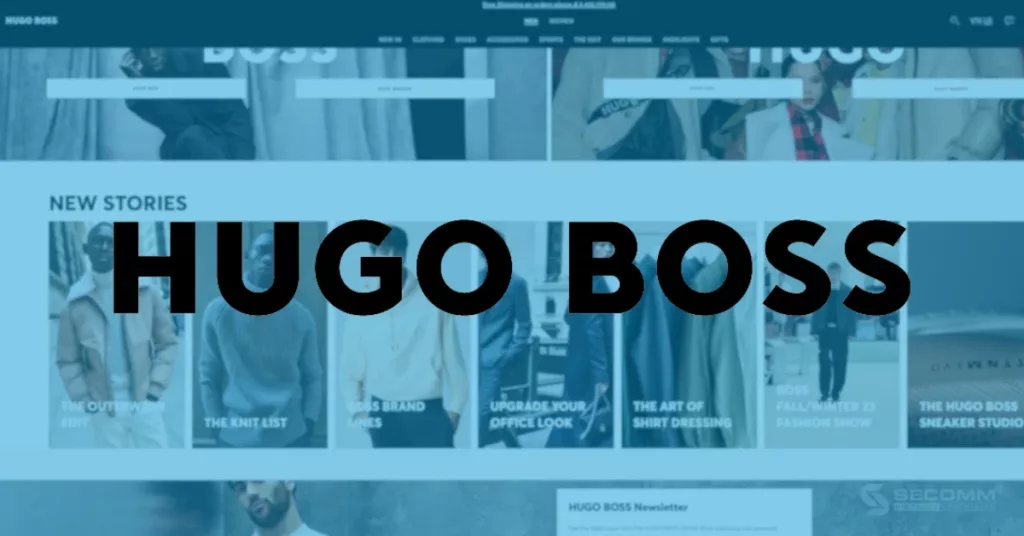
The platform provides features that help Hugo Boss create a seamless shopping experience, including synchronized product catalogues, cross-channel payments, and shipping and returns. Additionally, Hugo Boss’s website offers personalized features, such as product recommendations based on customer shopping history.
Bvlgari, a luxury fashion brand from Italy, has utilized Salesforce Commerce Cloud to develop its eCommerce website. The website is designed to enhance a personalized shopping experience for Bvlgari’s customers.

A notable personalized feature on Bvlgari’s new eCommerce website is the “My Bvlgari” feature, which allows customers to create their own profiles and store information about shopping preferences, purchase history, and delivery addresses. This feature helps Bvlgari better understand customer needs and provides them with tailored product suggestions and services.
Ralph Lauren is a premium American fashion brand founded in 1967, specializing in luxury fashion products for men, women, and children, including clothing, footwear, accessories, and fragrances.

Salesforce Commerce Cloud assists Ralph Lauren in synchronizing its product catalogue across all channels, including the website, mobile app, and physical stores. This ensures that customers can easily find the products they want to purchase, regardless of the channel they are using.
Salesforce Commerce Cloud is a powerful and flexible eCommerce platform, particularly well-suited for large enterprises to conduct online business more efficiently.
Related article: Top 10 websites built on Salesforce Commerce Cloud
With deep expertise and the development of complex eCommerce systems for clients such as Changi Airport Group (Singapore), Trentham Estate (Australia), and The Warehouse (Vietnam), SECOMM understands the challenges in choosing a platform and deploying eCommerce that businesses are facing.
Contact SECOMM now or call directly at the hotline number (028 7108 9908) for free advice on the eCommerce website building roadmap!
 2
2
 7,427
7,427
 0
0
 1
1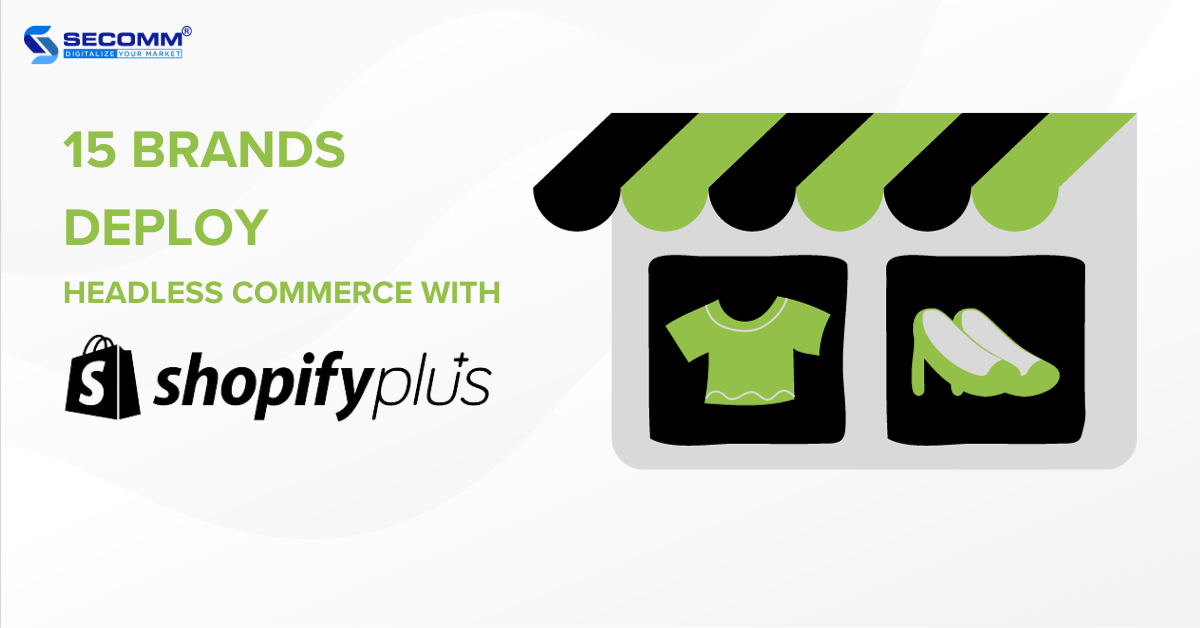
Headless Commerce is one of the fastest-growing trends that contributes to changing how businesses approach eCommerce. Interestingly, Shopify Plus is known as a leading platform in providing superior solutions and tools for businesses to implement Headless Commerce.
The article below lists 15 top brands from various industries that have deployed headless eCommerce websites on the Shopify Plus platform to deliver a more memorable online shopping experience to customers.
Learn more: 15 reasons to switch to Shopify Plus
Babylist was founded in 2011 by Natalie Gordon when she was pregnant and faced difficulty selecting gifts for her baby shower. Babylist is a platform that allows parents to create a list of products they need for their child. This helps party attendees or gift buyers know what items are essential.
It’s crucial for Babylist to optimize for two distinct customer journeys:
This illustrates that shopping involves more than just selecting items from a product catalog; it also extends to registries created by parents, housing product URLs from various sources on the internet. The complexity increases as Babylist enables users to make online purchases and collect items in-store.
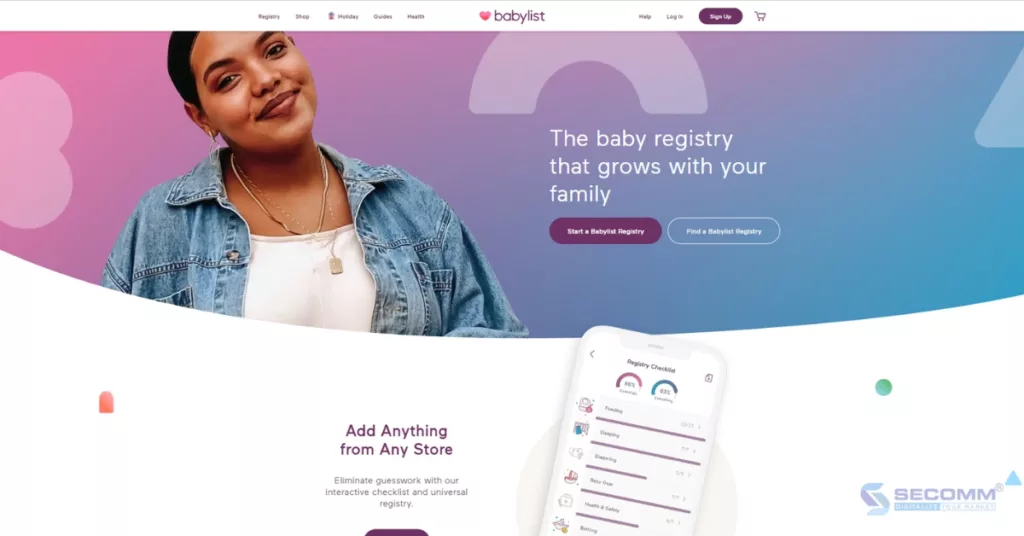
Therefore, Babylist has adopted Headless Commerce with Shopify Plus to customize the customer journey more easily and optimize the management processes of product listings, orders, payments, and inventory. In addition, Babylist also uses a Headless CMS – Contentful to distribute content to the website and mobile app interfaces.
Figs is a high-end medical apparel brand with a focus on minimalist design.
The brand specializes in manufacturing and distributing medical clothing and accessories for healthcare professionals, including households, doctors, dentists, and individuals working in the healthcare industry. Figs’ product range includes medical clothing, jackets, hats, socks, gloves, and shoes.
Prioritizing online sales, Figs has implemented a Headless Commerce strategy using Shopify Plus for backend functions such as product management, order processing, payments, shipping, and more. However, on the frontend, Figs has taken an independent approach to crafting a distinctive and personalized user experience.
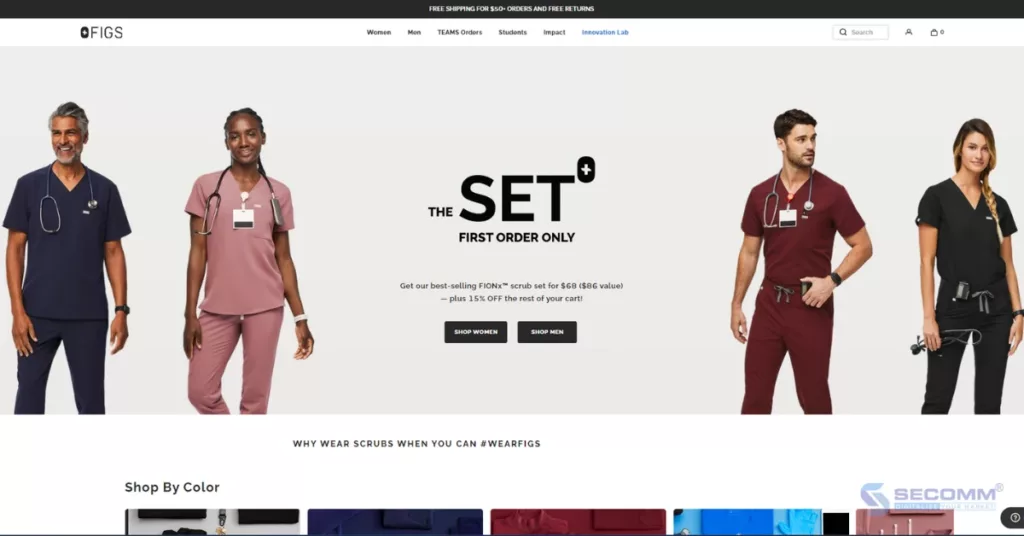
In particular, Figs has utilized Unbounce to create unique and tailored landing pages for products or promotional campaigns. Furthermore, they’ve integrated Next.js to link these customized landing pages seamlessly with the product pages on Shopify.
This approach ensures that when customers visit a specific custom landing page, they can easily locate and purchase products. Therefore, Figs has enhanced the shopping experience for customers, providing a seamless and user-friendly journey to quickly find the products of their interest.
Allbirds is an athletic and footwear brand founded in 2014 by Tim Brown and Joey Zwillinger. The brand is well-known for crafting shoes from sustainable sources and featuring simple, aesthetically pleasing designs. With the slogan “We make shoes to thank the earth,” Allbirds has experienced rapid growth, becoming a prominent name in the fashion industry as a whole and specifically in the footwear sector.
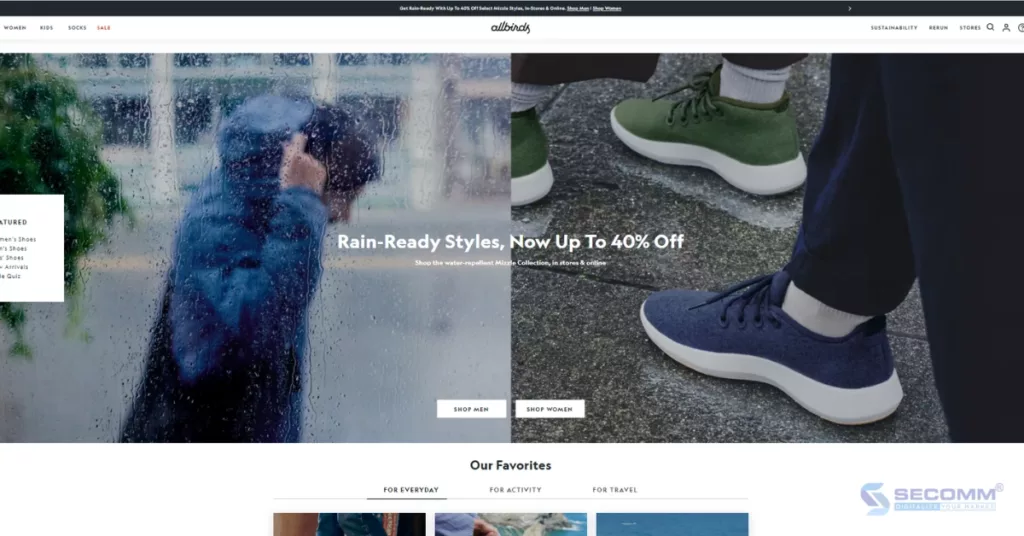
To provide an optimal online shopping experience for customers, Allbirds has deployed Headless Shopify Plus. The Headless architecture allows the brand to customize and control the user interface (frontend) flexibly and efficiently, while Shopify Plus is utilized for managing data and eCommerce operations on the backend.
The deployment of Headless Commerce has enabled Allbirds to create a user-friendly and distinctive interface, providing a unique shopping experience with advanced features.
Headquartered in San Francisco, California, Rothy’s is a well-known fashion brand that specializes in producing footwear from recycled materials, primarily utilizing post-consumer plastic fibers, especially PET. Rothy’s has become an icon capturing consumer interest by combining fashion elements with an environmentally-friendly mindset.
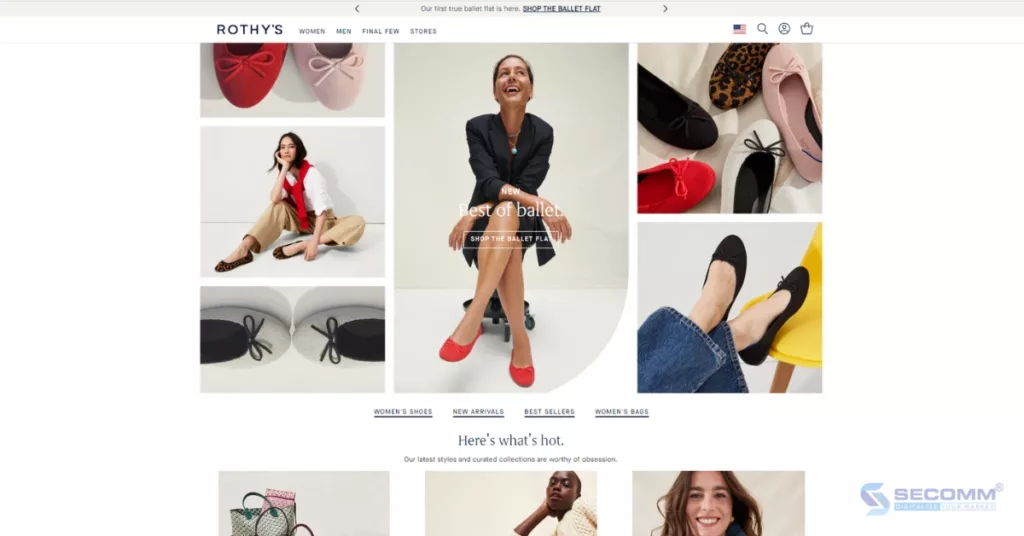
With a desire to “do things differently,” Rothy’s has embraced a Headless architecture to easily expand its presence to various international markets. The Headless architecture allows the brand the freedom to seamlessly integrate preferred technologies into the Shopify Plus eCommerce system.
Meanwhile, Rothy’s can develop independent frontends for each market, enabling adjustments in elements such as pricing and language to suit the specific consumers of each market. This approach helps Rothy’s create a unique and tailored shopping experience for the target customers in each market they serve.
Inkbox is a brand specializing in temporary tattoos that can be easily applied to the skin and nails. It allows users to have the temporary tattoos they desire without the commitment of a permanent one. Inkbox’s ink is made from natural ingredients, ensuring it is skin-friendly with the “Freehand Ink” technology. The brand is an example of leveraging creativity and technology to offer a temporary change for self-expression and image creation on the skin and nails uniquely and excitingly.
Inkbox has implemented Headless Commerce with Shopify Plus to provide an optimal shopping experience for customers, featuring prominent functionalities such as:
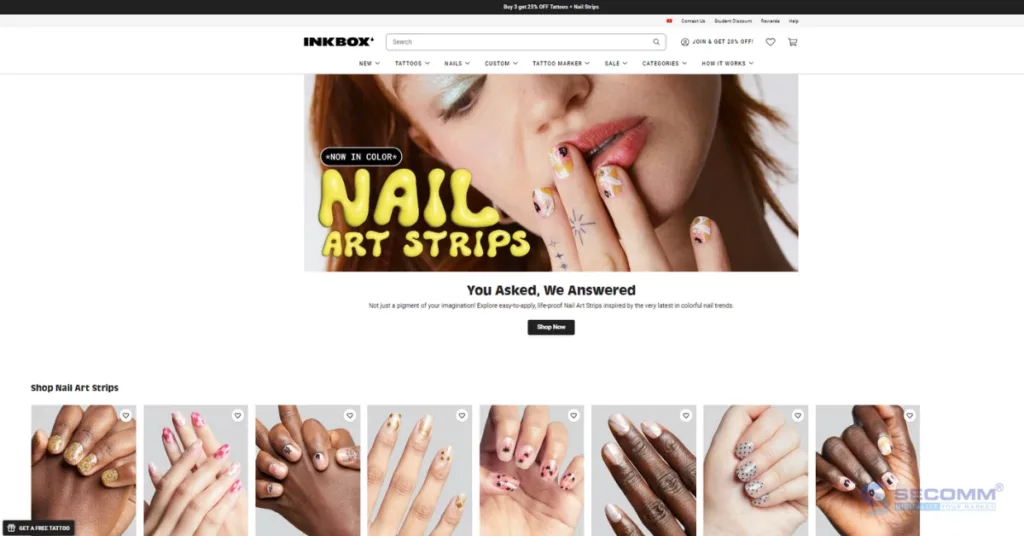
Since its establishment in 2014, Kylie Cosmetics has been widely embraced by consumers throughout North America, and Kylie Jenner was notably honored as a business genius by Forbes. Following the success of Kylie-branded cosmetics, in 2019 Kylie Jenner marked a new milestone by introducing the skincare line named Kylie Skin.

Quick to embrace the Headless Commerce trend, Kylie Cosmetics has implemented Shopify Plus for core functionalities on the backend, such as payment and delivery.
In addition, this platform provides the brand with exceptional flexibility to integrate third-party services for a more diverse range of custom operations on the frontend.
This enables Kylie Cosmetics to offer a unique and appealing online shopping experience for customers while benefiting from the robust and stable infrastructure of Shopify Plus.
Vinamilk is the national brand of Vietnam, offering a wide range of trusted dairy products such as fresh milk, yogurt, condensed milk, ice cream, and more. In 2023, Vinamilk implemented a repositioning strategy to strengthen its position in the domestic market and expand its business activities internationally.
As part of this strategy, Vinamilk integrated its eCommerce website and corporate website to provide a more consistent and seamless customer experience, as well as to manage data more efficiently.

Vinamilk collaborated with SECOMM to make a decisive move towards implementing the Headless Commerce + Headless CMS model based on the Shopify Plus eCommerce platform and a Headless CMS system.
The revamped appearance of Vinamilk’s website signifies a transformation from traditional to modern, from segregation to integration, and from focusing solely on sales to enhancing the overall customer experience.
ILIA is a beloved clean beauty brand that has won numerous consumer awards. The brand was created to help users protect and restore their skin through safe and highly effective formulas.
Initially running on Shopify Advanced, ILIA’s eCommerce website quickly grew and upgraded to Shopify Plus for more flexible customization capabilities.
ILIA implemented Headless to provide diverse and impressive visuals, helping customers find the exact type of cosmetics suitable for their skin without creating a cluttered web experience that could impact performance and page loading speed.

By deploying Headless Commerce on Shopify Plus, ILIA’s developers have the freedom to experiment with various types and formats of content. This approach has significantly improved the frontend capabilities, such as faster page loading speed, and has provided customers with an enhanced shopping experience, including the “Find My Shade” feature.
Established in 1575, Bols is a brand specializing in cocktails that has been present in bars, restaurants, and airplanes worldwide for many years. After years of operation, the brand aimed to sell its products to consumers on a global scale. Therefore, Bols built an eCommerce website for both B2B and B2C models, placing a strong emphasis on customer experience.
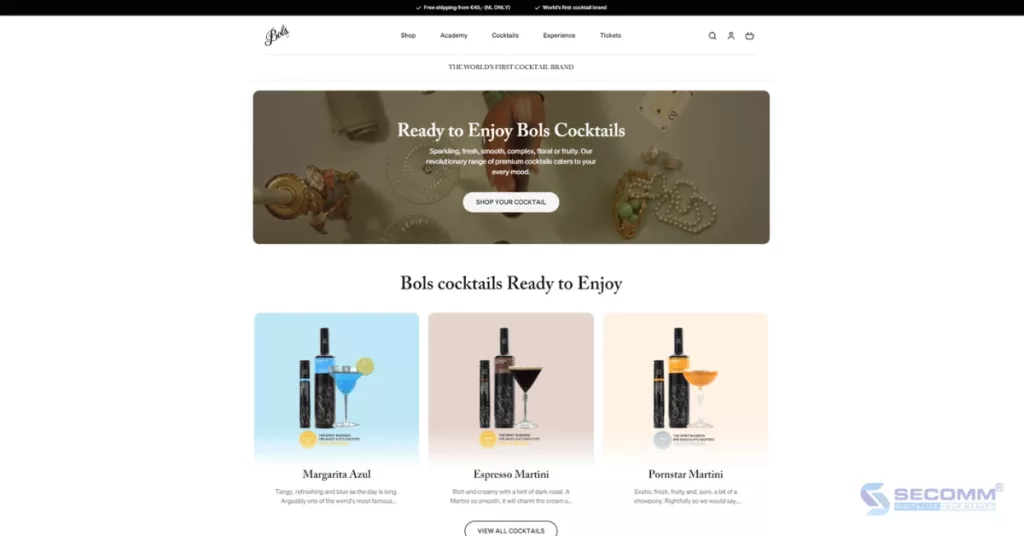
By deploying Headless Commerce on the Shopify Plus platform, Bols can flexibly customize the layout and design of the frontend interface, allowing customers to purchase cocktails, book events, buy event tickets, and register for mixology courses.
To date, Bols has built a community of over 20 thousand followers on Instagram and has integrated this social network into the website to share the latest cocktail recipes.
Victoria Beckham is known as an icon in the global fashion industry, and her talent and dedication are recognized by professionals and fans alike.
Victoria’s passion extends beyond fashion to the realm of beauty. Thus, in 2019, she co-founded the beauty brand Victoria Beckham Beauty.
The brand launched an eCommerce website with a focus on high performance, fast page loading speed, and smooth operation with a multilingual, multicurrency interface.
Therefore, Victoria Beckham Beauty decided to implement a Headless architecture, leveraging Shopify Plus Storefront API, Netlify hosting, combined with the Contentful Content Management System (CMS).
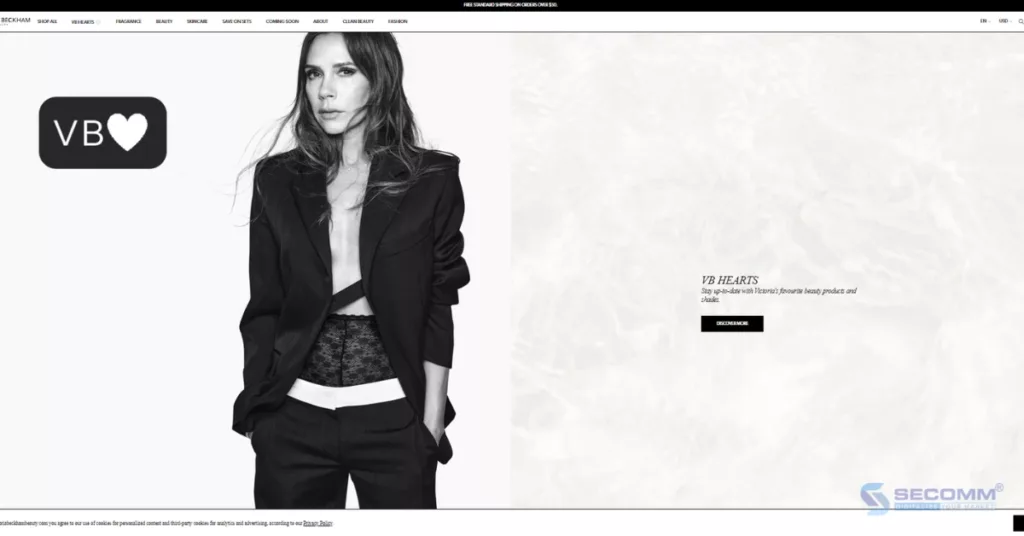
Shopify Plus assists this business in managing customers, orders, and inventory, and integrating multiple payment methods to provide a multi-currency experience. Meanwhile, Contentful provides outstanding CMS features to manage the rich data of Victoria Beckham Beauty.
Kotn was founded with a mission to set standards for creativity and conscious consumerism, designing clothing based on principles that ensure quality, honest value, and a positive impact on society.
After launching a Headless eCommerce website with Shopify Plus in 2014, the brand continued to expand its product portfolio to meet customer demands. To provide customers with an exceptional experience, Kotn adjusted its approach for future development.
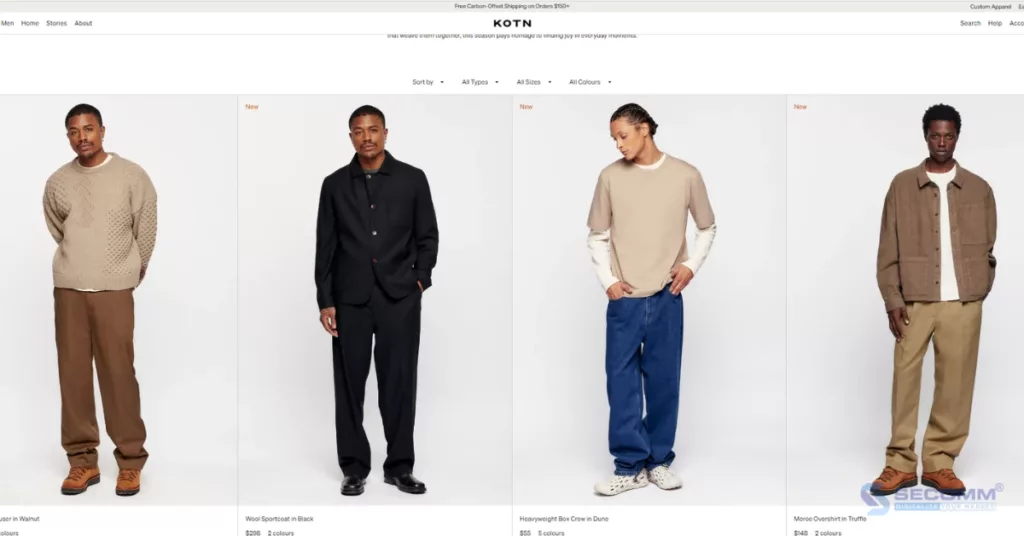
Kotn utilized the Shopify Storefront API to consolidate two stores into one, integrating with a new CMS system and customizing product pages and payment processes. This reduced the need for custom apps and related solutions, empowering staff to manage inventory, sales, and customer experiences more efficiently.
Paul Valentine is a brand specializing in crafting and offering timeless and elegant jewelry. In just 8 years since its establishment in 2015, Paul Valentine has officially become a reputable jewelry brand, serving hundreds of customers worldwide.
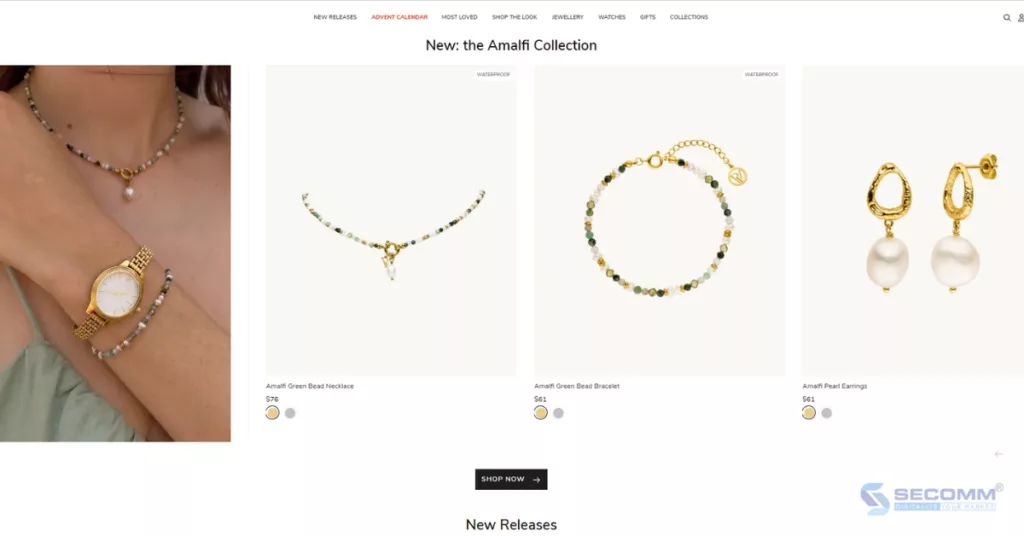
While the Paul Valentine website had previously been operated on Shopify Plus, a reset in its setup made content management across 12 local stores complex and less efficient.
Therefore, implementing the Headless architecture was deemed the most suitable approach to address this issue. Accordingly, Paul Valentine built a custom frontend interface using the Shopify Storefront API and the Vue.js framework.
Additionally, they integrated the Contentful system into the backend to unify content management and distribution across all stores.
This streamlined the management and operation of Paul Valentine’s eCommerce website, accelerated page loading speed, and ensured a smooth and consistent user experience.
Veloretti is a well-known bicycle brand from the Netherlands, specializing in the production and supply of high-quality bicycles and accessories. The introduction of their first modern electric bicycle prompted Veloretti to completely rebuild its eCommerce website.
While competitors focus on technology, Veloretti chooses to design its website with a strong emphasis on fashion and lifestyle, utilizing unique layouts and video content.
For non-electric bicycle product pages, Veloretti uses a bright theme, while a dark theme is employed for electric bicycle product pages, ensuring the provision of sufficient technical information without sacrificing the brand’s fashion and core values.
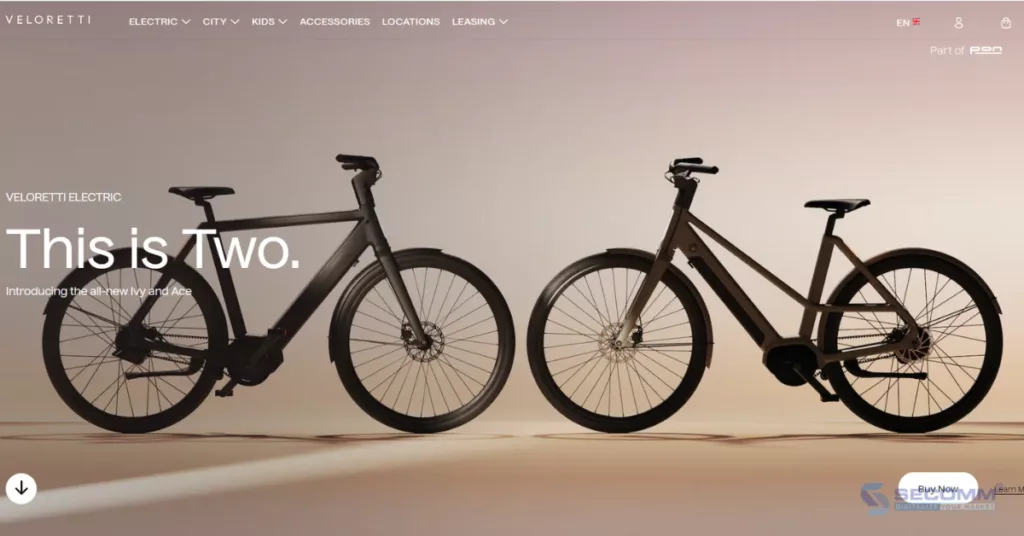
To achieve this, Veloretti has implemented the Headless architecture, with Shopify Plus serving as the backend platform. In addition, they use the Shopify Storefront API to connect the frontend and backend, facilitating easy and flexible access to data and functionality from Shopify.
Furthermore, Veloretti utilizes the React framework to build a custom frontend interface, providing customers with a unique and fashion-forward shopping experience.
BonLook is a renowned eyewear brand based in Montreal, with 37 branch stores across Canada. In addition to selling ready-made glasses, BonLook offers prescription lens-cutting services. Customers can upload their prescriptions, and choose lens materials, anti-blue light and anti-fatigue capabilities, frame sizes, and styles.

BonLook has developed a Headless omnichannel solution with Shopify Plus to provide a seamless shopping experience across various channels, from online to offline, incorporating unique features such as AR technology with “Virtual Try-On.” The brand also leverages applications within Shopify Plus Certified Apps to enhance conversion rates and foster loyalty through promotional programs and seasonal offers, attracting customers to return for more shopping.
Grass Roots is a cooperative of small-scale family farmers in the United States specializing in the production and sale of clean products such as pork, beef, chicken, lamb, and bone broth.
To provide users with the optimal online shopping experience, Grass Roots decided to implement a Headless Commerce solution on the Shopify Plus platform.
This allows Grass Roots to access the latest web technologies to create its unique customer experience with features such as
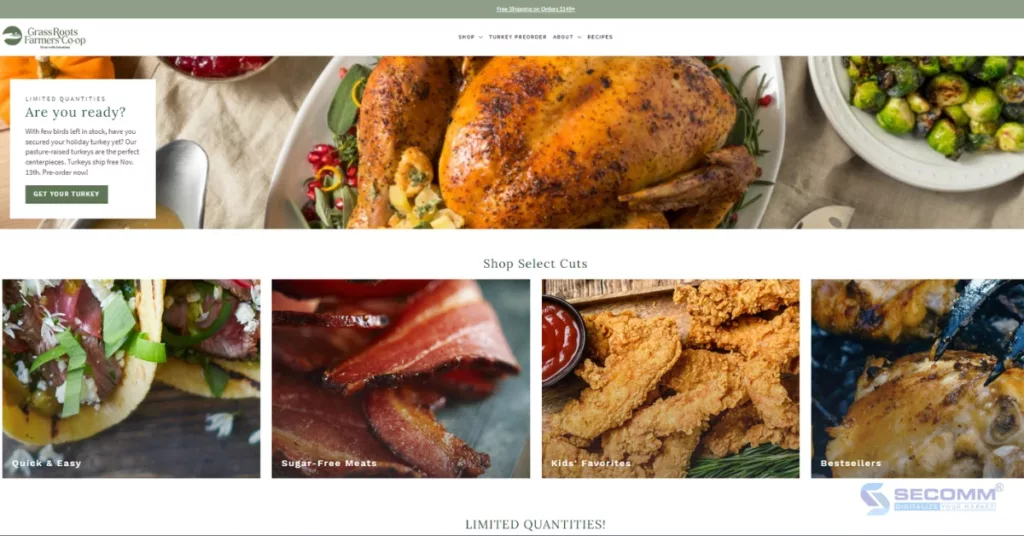
Go Headless with Shopify Plus today!
Here are specific examples showcasing the unique and engaging customer experiences of 15 brands across various industries when implementing Headless on the Shopify Plus platform.
With its outstanding customization and scalability capabilities, Shopify Plus is one of the preferred SaaS platforms for large enterprises considering the adoption of Headless Commerce models, thanks to optimal solutions like Storefront API, Hydrogen + Oxygen, and Commerce Components.
Over the years, SECOMM has become a reliable partner for many large enterprises such as Vinamilk and Suzuverse in establishing Headless architectures for eCommerce websites. We take on the roles of consulting, planning, and accompanying businesses in building Headless Shopify Plus websites through each stage.
Contact SECOMM or call directly on the hotline (028 7108 9908) to start your Headless deployment project with Shopify Plus today!
 2
2
 6,666
6,666
 0
0
 1
1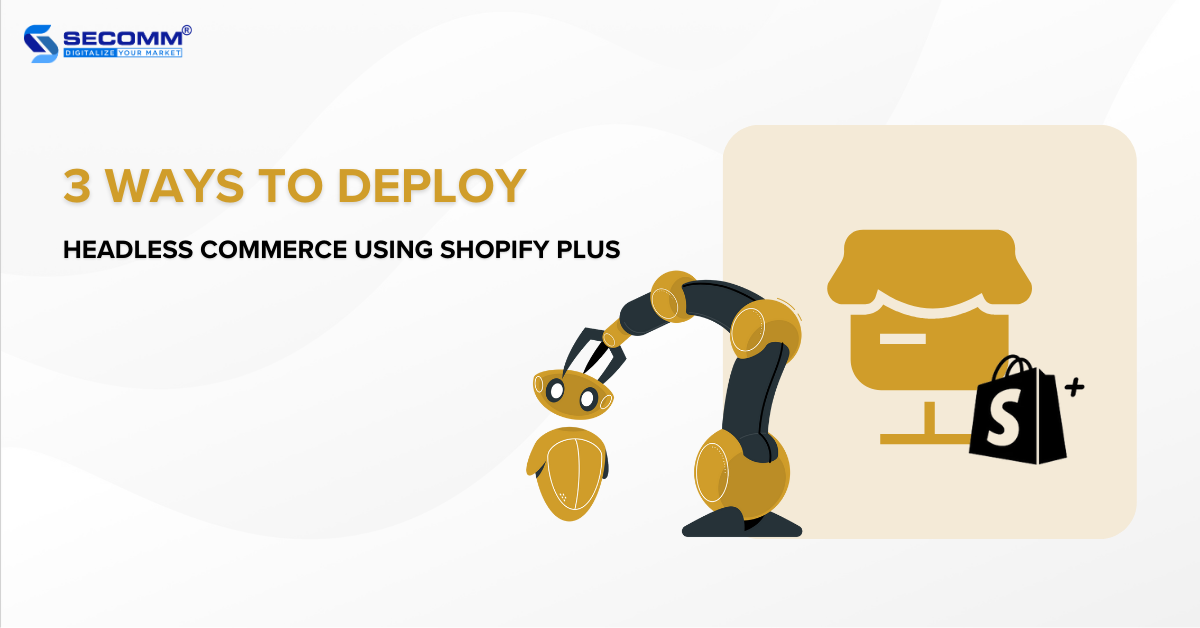
Freedom in creativity and technical flexibility have ushered eCommerce into a new era with the Headless Commerce trend. In this scenario, Shopify Plus shines with its exceptional solutions that have positioned numerous businesses at the forefront of this trend.
Learn more: Brands go Headless with Shopify Plus
The combination of Shopify Plus infrastructure and the Headless architecture opens up various ways for businesses to create unique and customizable shopping experiences for their customers. Below are three common methods for implementing Headless Commerce with Shopify Plus.
The Shopify Storefront API is a GraphQL-based API – a query language for APIs. It enables businesses to connect the frontend of their website to the backend of Shopify, facilitating easy access to data and eCommerce functionalities. Therefore, businesses can use the Storefront API to create unique and personalized customer experiences across various digital channels.
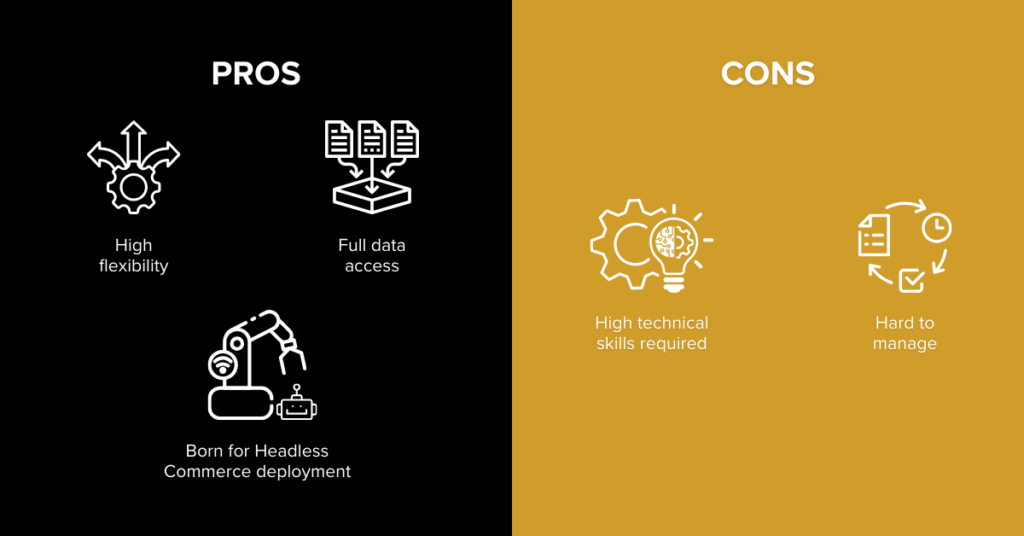
High flexibility: The Storefront API allows you to create independent websites. Instead of adhering to the constraints of pre-built themes, you can flexibly design product pages, homepages, and shopping carts in a style that accurately reflects your brand. The Storefront API also ensures flexibility in integrating with third-party systems while easily adapting the website to embrace new design trends.
Full data access: Through the Storefront API, you can access every aspect of the Shopify Plus database, including detailed information about products, orders, and customer data. This helps manage, monitor, assess trends, and optimize eCommerce data accurately.
Born for Headless Commerce deployment: Embracing the Headless Commerce model, which decouples the frontend and backend, allows for significant flexibility in eCommerce development and operations. The Storefront API is strategically optimized to seamlessly connect Shopify Plus’ backend with diverse frontends, ensuring a cohesive user experience across various channels and devices.
High technical skills required: Deploying Headless Shopify Plus using the Storefront API is a complex process that demands in-depth knowledge of the Shopify Plus platform, programming languages, and frameworks, as well as problem-solving skills to quickly address technical requirements. Particularly, you need to understand the data structure of Shopify, including how customer data, product information, and transactions are organized and stored within the system.
Hard to manage: The flexibility of the Storefront API complicates the process of managing and maintaining the system. While the flexibility of the Storefront API allows to customize every aspect of the eCommerce website, from the homepage to the checkout process, these custom configurations need to be well-managed. When there are too many custom configurations, updates may lead to compatibility issues within the overall system.
The Shopify Hydrogen + Oxygen solution was introduced in 2021, and designed for large enterprises implementing Headless Commerce with Shopify Plus. Specifically, Hydrogen is a React-based framework – a popular framework for building user interfaces, enabling businesses to construct unique and visually appealing storefronts.
On the other hand, Oxygen is a global hosting solution capable of storing custom content. Shopify Oxygen is backed by Shopify’s infrastructure with over 100 server locations positioned worldwide. You don’t need to worry about finding third-party hosting providers or managing technical issues.
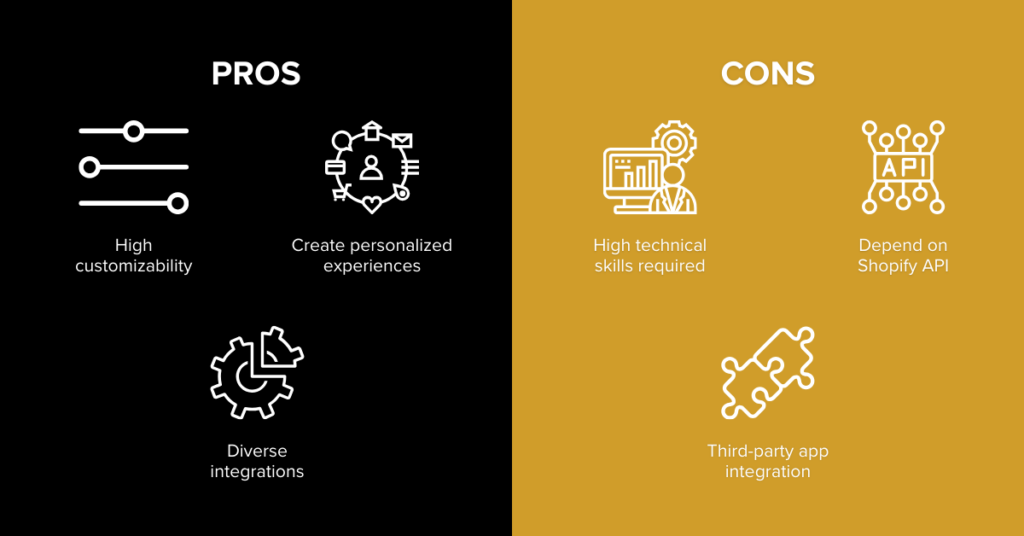
High customizability: Shopify Hydrogen allows you to customize the Headless website interface and implement necessary extensions. This means that merchants can use the latest technologies to build a Headless eCommerce website without worrying about impacting the system’s functionality.
Create personalized experiences: The Shopify Hydrogen solution offers high flexibility and customization, enabling you to implement Headless Commerce with this solution to easily create and deliver personalized shopping experiences for customers.
Diverse integrations: To help you create a seamless omnichannel experience, Shopify provides the capability to integrate the Headless Hydrogen website with various third-party applications such as Klaviyo, Gorgias, etc., as well as Headless CMS systems like Contentful, Sanity, Builder.io, etc.
High technical skills required: Shopify Hydrogen is a technically intensive solution and doesn’t have a drag-and-drop builder. Therefore, the process of implementing Headless Commerce with Shopify Hydrogen will demand a high level of technical expertise from the business.
Depend on Shopify API: This solution is developed exclusively for Shopify’s API. This means that the Hydrogen framework can only be used to build the Shopify website interface.
Third-party app integration: While Shopify allows you to easily integrate with 3rd-party apps and CMS, if you want to use a CMS or app for your online store that isn’t compatible with the Hydrogen framework, you’ll need to integrate it through a middleware app.
The third method to adopt Headless Commerce with Shopify Plus is by using Shopify’s latest solution – Commerce Components. This is a modular component tech stack developed by Shopify specifically for large enterprises aiming to build Headless eCommerce websites. Shopify Commerce Components offer 30 components, encompassing core features across various business aspects such as Cart, Checkout, Data, Shipping, and more.
You can integrate these components based on deployment needs to create a customized solution for your Headless Shopify website. Since its launch, many world-leading businesses, including Mattel, JB Hifi, Glossier, Coty, Steve Madden, Spanx, and Staples, have utilized this new tech stack from Shopify.
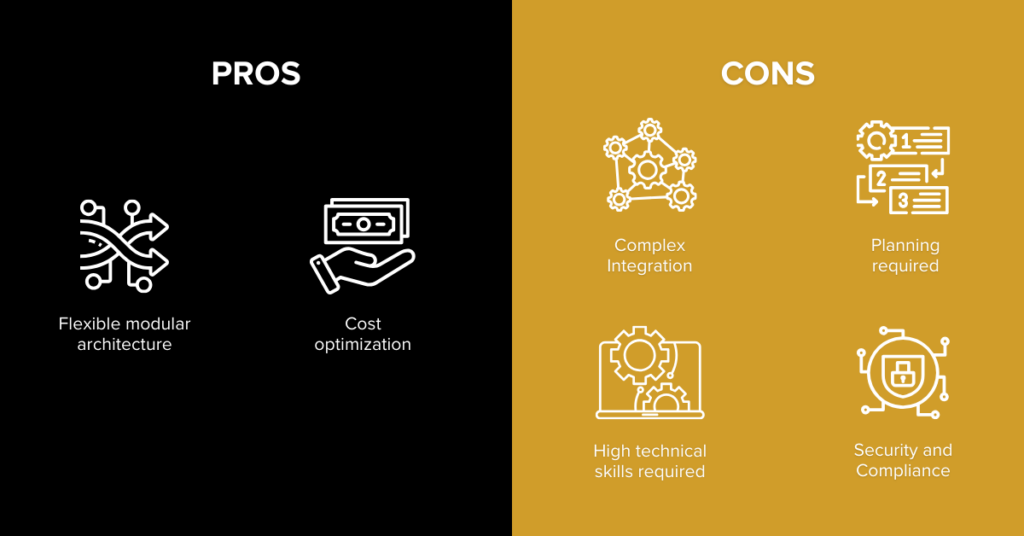
Flexible modular architecture: Commerce Components with a modular architecture provide unlimited API connections. This means you can integrate and use an unlimited number of components, while also easily adding, removing, and customizing these components without fear of affecting the system.
Cost optimization: Commerce Components have a pricing model based on the number of components used, meaning businesses pay for exactly what they use. Additionally, the cost of Commerce Components is billed annually, making it easier for businesses to accurately predict the fees they will incur.
Complex Integration: The process of integrating multiple components can be complex and time-consuming. Businesses need to ensure that the components operate independently and seamlessly within the same system efficiently.
Planning required: To ensure the effective operation of the components on the system, you need to meticulously plan which eCommerce components will be integrated, choose suppliers, deployment solutions, and deployment stages.
High technical skills required: Building and maintaining a Headless website system using the Commerce Components solution will demand a certain level of technical expertise and knowledge of integration and technology. You can invest in developing an in-house technical team or collaborate with highly specialized agencies.
Security and Compliance: Each provider for each eCommerce component will have its security protocols and compliance rules. You must ensure compliance with these rules when integrating their components, while also ensuring that this compliance doesn’t impact the operation of the remaining components and the entire system.
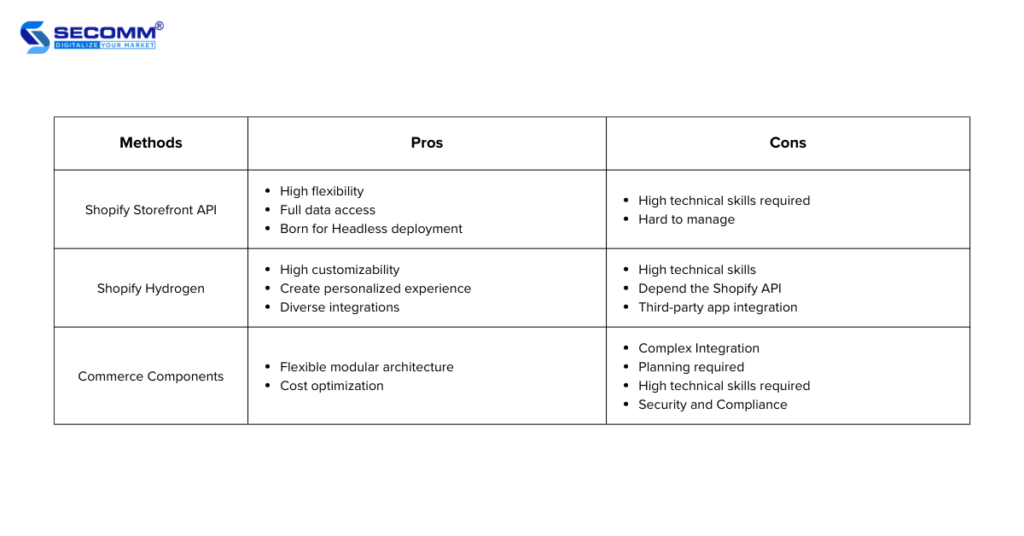
Choose your best-fit Headless Commerce deployment!
On the journey of building a Headless eCommerce website with Shopify Plus, choosing the deployment method is a crucial decision to ensure system flexibility and performance while providing the optimal customer experience.
If you need detailed guidance or want to explore how Shopify Plus can support your Headless deployment strategy, please contact SECOMM or call directly at (+84)28 7108 9908 to receive advice and assistance from our experts in choosing the right Headless Shopify Plus deployment method for the business model and goals.
 2
2
 3,531
3,531
 0
0
 1
1Subscribe to get the latest eBook!
Hotline